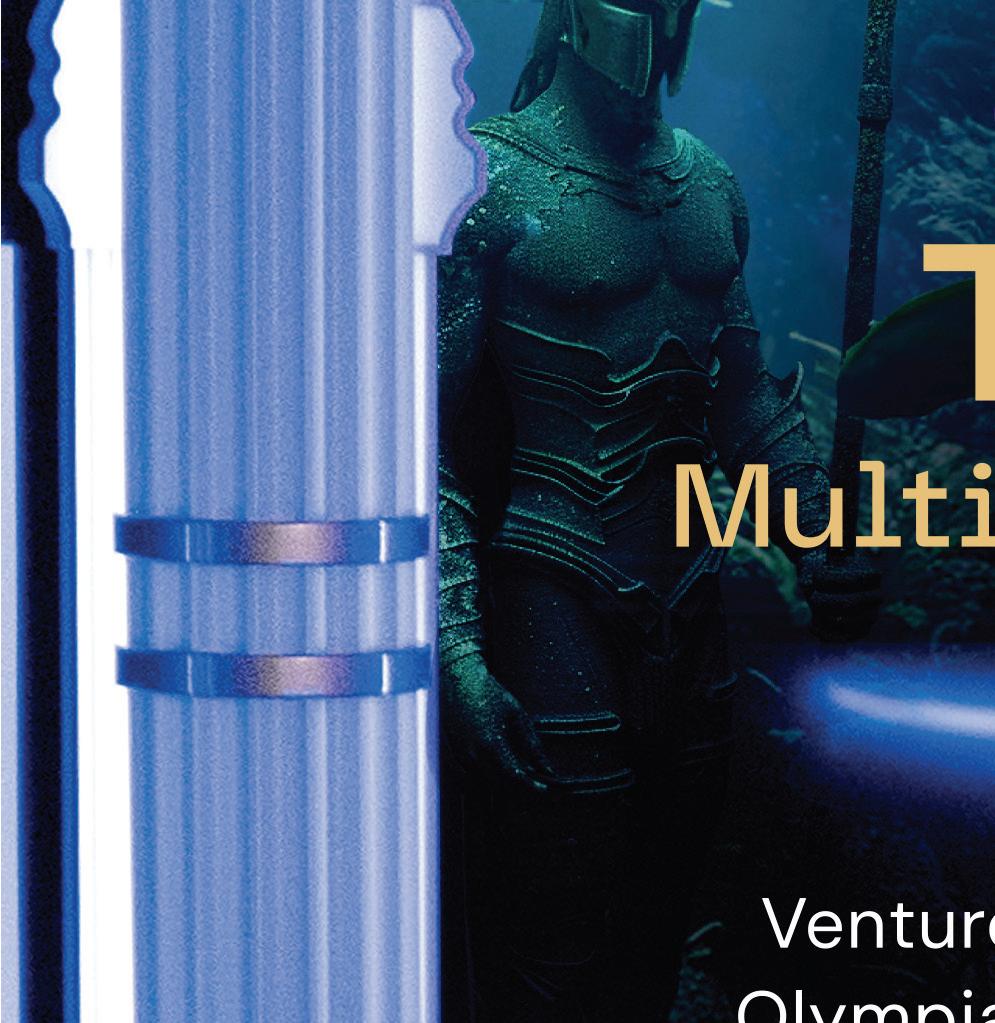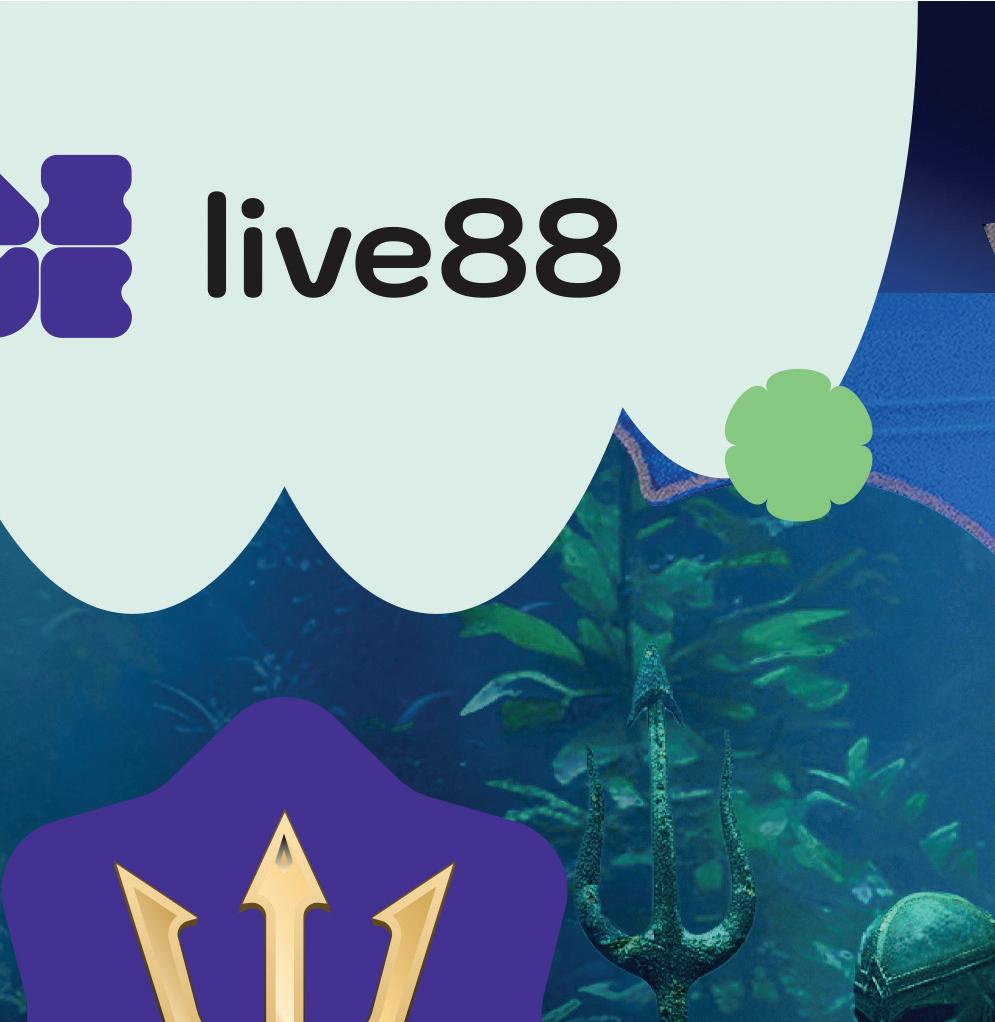



































Within the ethical complexities of gambling, where does the onus fall for ensuring responsibility? Gambling Insider explores the moral, practical and legal aspects



WINNERS REVEALED: A full rundown of the Global Gaming Awards EMEA
CONTRIBUTORS:
Gustaf Hoffstedt, Paul Sculpher and ICE panellists
What’s the latest from live casino gaming suppliers?












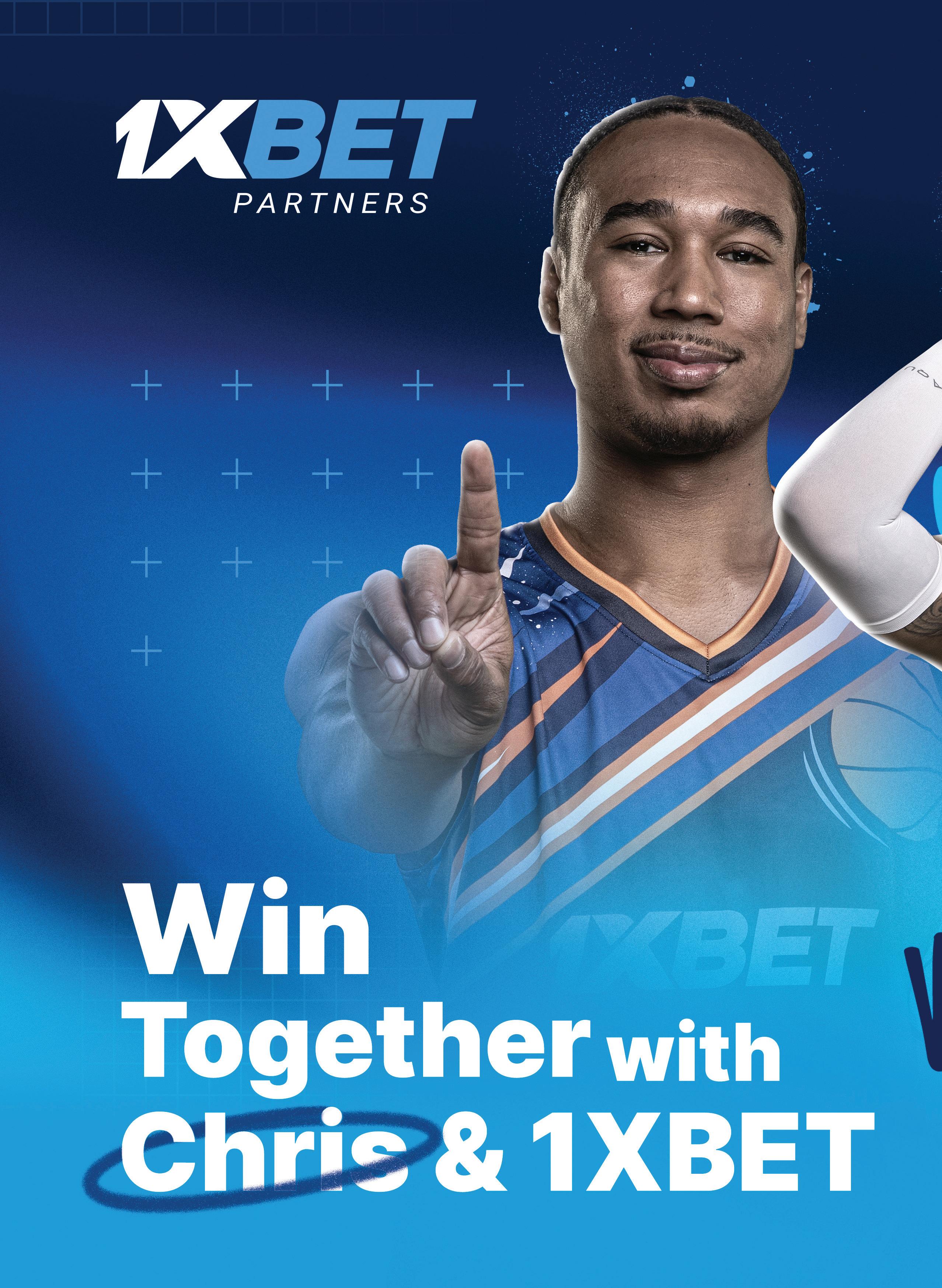


Julian Perry, COO, Editor-in-Chief
ambling.























COO, EDITOR IN CHIEF
Julian Perry
EDITOR
Tim Poole
Tim.Poole@gamblinginsider.com
SENIOR STAFF WRITER
Beth Turner
STAFF WRITERS
Will Underwood, Ciaran McLoughlin
CONTENT WRITER
Megan Elswyth
LEAD DESIGNER
Claudia Astorino
DESIGNERS


Olesya Adamska, Callum Flett, Gabriela Baleva
JUNIOR DESIGNER
Tim Poole, Editor
It's a word that has so many different perceptions and connotations, depending on who you ask.
Within our industry, gambling is the lifeblood and livelihood. Customer lifetime value and portion of entertainment budget spend quickly turn into monthly gross gaming revenue reports, and quarterly financial presentations for multi-billion-dollar public companies.
For a CEO, Product Owner or Sales Manager, gambling is business, gambling is numbers, gambling is what they travel to trade shows around the world for.
But, unlike so many other perceived 'safe' sectors – finance, insurance or IT, the word 'gambling' can elicit so many negative reactions around the world.
For some, it is a sin, for others an 'evil' industry. Even in my personal experience, taxi drivers have proceeded to spend a whole journey explaining why the sector is the devil's work, not necessarily registering that I would know infinitely more than them about this very sector. People close to me, meanwhile, may still say 'be careful placing that bet, you'll be addicted in no time.'
And, of course, I know none of that is true. I know placing a £10 ($12.65) bet on Liverpool to a win a match will not lose me my mortgage, even though some claim that's where every bettor will automatically end up one day.
The product, though, and the nature of gambling, is intrinsically linked with addiction issues and can end in tragic circumstances for problem gamblers that are not looked after.
We who work in the industry know both of the above ends of the spectrum to be true: that casual betting can be carried out on a huge scale and enjoyed by millions across the globe (hence such growth for the industry), but that gambling issues can have destructive consequences for individuals. So, in this issue of Gambling Insider magazine, we ask in our cover feature: how do we find the line? If a gambler deposits £1,000 and loses it overnight, whose responsibility, ultimately, is this?
There is no one single answer but there are so many factors to consider: how much is down to the player and personal choice? How much is down to the operator to intervene? And how much is down to the regulator or legislator to ensure both of the former enter into a more protected environment?
As those who have truly thought about the conundrum of gambling will know, you cannot simply 'ban' the activity – one conducted by humans for millennia. Banning anything, as the Prohibition era showed so aptly around a century ago, will not discourage the activity; it will simply send it underground, where protections are weaker and the stakes, literally, so much higher. In today's society, regulated gambling markets are the only forward – but, morally, practically and in legal terms, where does the responsibility for safer gambling truly lie within these environments?
Elsewhere in our March/April edition, we review the winners of the Global Gaming Awards EMEA – during the first-ever ceremony to have taken place in Barcelona. Soft2Bet was a three-time winner, while, on theme with the topic of safer gambling, Betsson claimed victory in the Social Responsibility of the Year category once again.
We also review panels from ICE Barcelona, explore updates from Brazil, Sweden, the UK, US sweepstakes and more.
Another jam-packed issue, then, with plenty of food for thought as ever in gambling. A word that has so many different perceptions and connotations, depending on who you ask...
TP, Editor
Medina Mammadkhanova
ILLUSTRATOR
Judith Chan
MARKETING & EVENTS MANAGER
Mariya Savova
FINANCE & ADMINISTRATION ASSISTANT
Dhruvika Patel
PUBLISHING ASSISTANT
Abi Ockenden
IT MANAGER
Tom Powling
COMMERCIAL DIRECTOR
Deepak Malkani
Deepak.Malkani@gamblinginsider.com
Tel: +44 (0)20 7729 6279
ACCOUNT DIRECTOR
Michael Juqula
Michael.Juqula@gamblinginsider.com
Tel: +44 (0)20 3487 0498
SENIOR ACCOUNT MANAGER
William Aderele
William.Aderele@gamblinginsider.com
Tel: +44 (0)20 7739 2062
BUSINESS DEVELOPMENT MANAGER - U.S. Casey Halloran
Casey.Halloran@playerspublishing.com
Tel: +1 702 850 8503
ACCOUNT MANAGERS Irina Litvinova
Irina.Litvinova@gamblinginsider.com
Tel: +44 (0)207 613 5863
Serena Kwong
Serena.Kwong@gamblinginsider.com
Tel: +44 (0)203 435 5628
Tracey Frost
Tracey.Frost@gamblinginsider.com
Tel: +44 (0) 203 882 9693
AWARDS SPONSORSHIP MANAGER
Michelle Pugh
Michelle.Pugh@globalgamingawards.com
Tel: +44 (0)207 360 7590
CREDIT MANAGER
Rachel Voit
WITH THANKS TO:
Šimon Vincze, Tracy Parker, Daniela Johansson, Duncan Garvie, Sally Gainsbury, Paul Sculpher, Gavin Isaacs, Ismail Vali, Laura McAllister Cox, Rhea Loney, Jason Clairmont, David Rebuck, Vicente Fox Quesada, Gustaf Ho stedt, Kirsi Lagus, Chris Shaban, John Hagan, David Crawford, Florian Diederichsen, Kirsty Caldwell, Leon Sucharov, Sam Douglas, Kevin Kilminster, Emily Asava, Hakob Manukyan, Edvardas Sadovskis, Edgar Davtyan, Ashley Lang, Anton Chumel, David Natroshvili, Vigen Safaryan and Edmond Ghulyan.





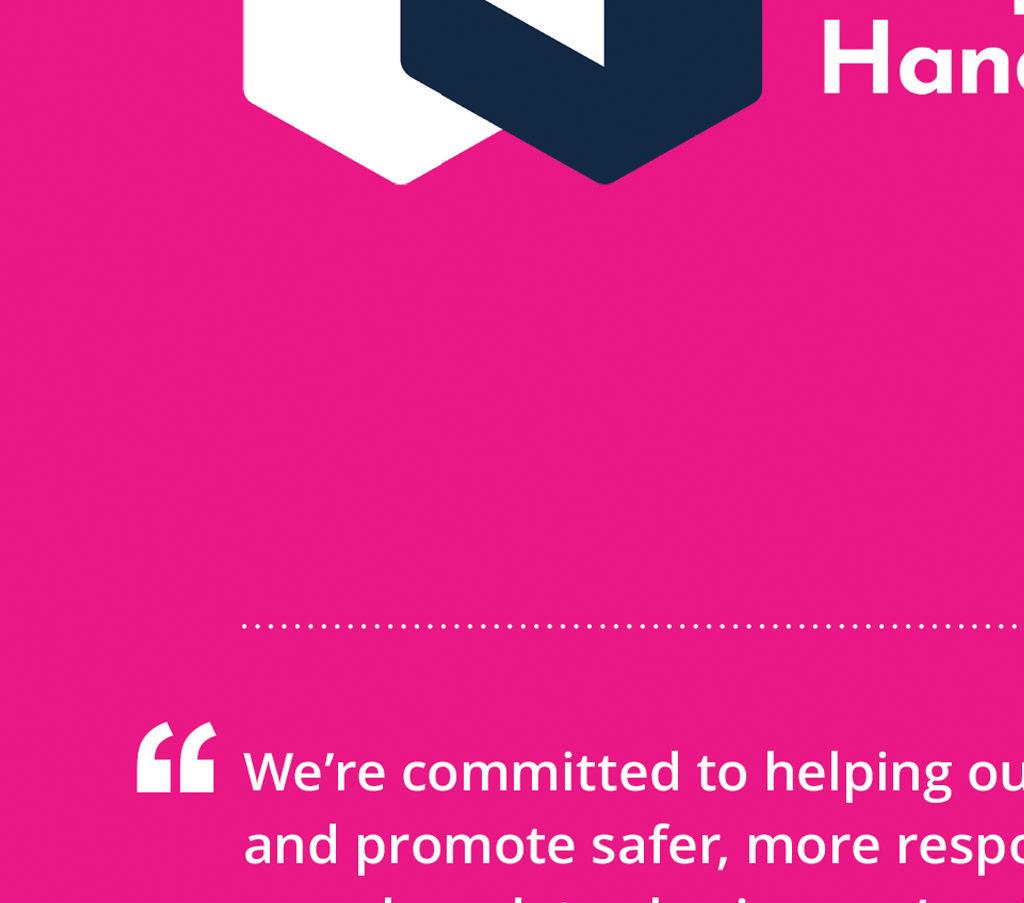
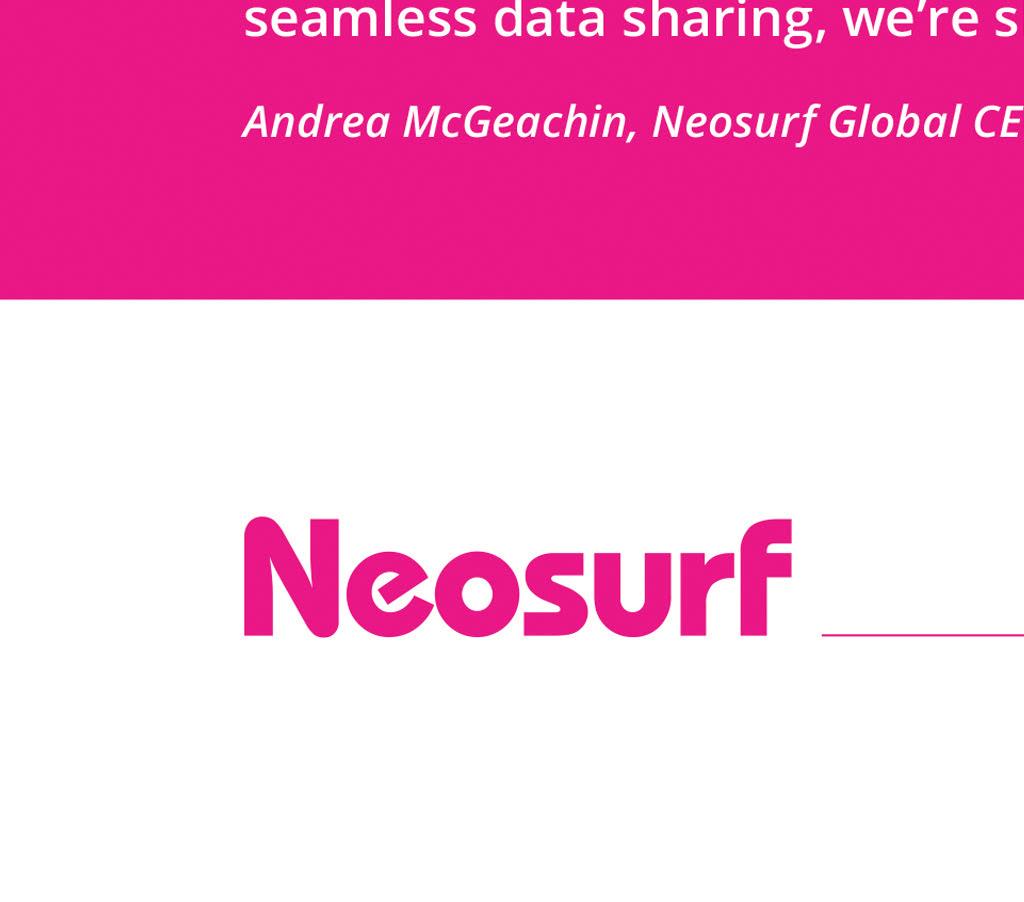

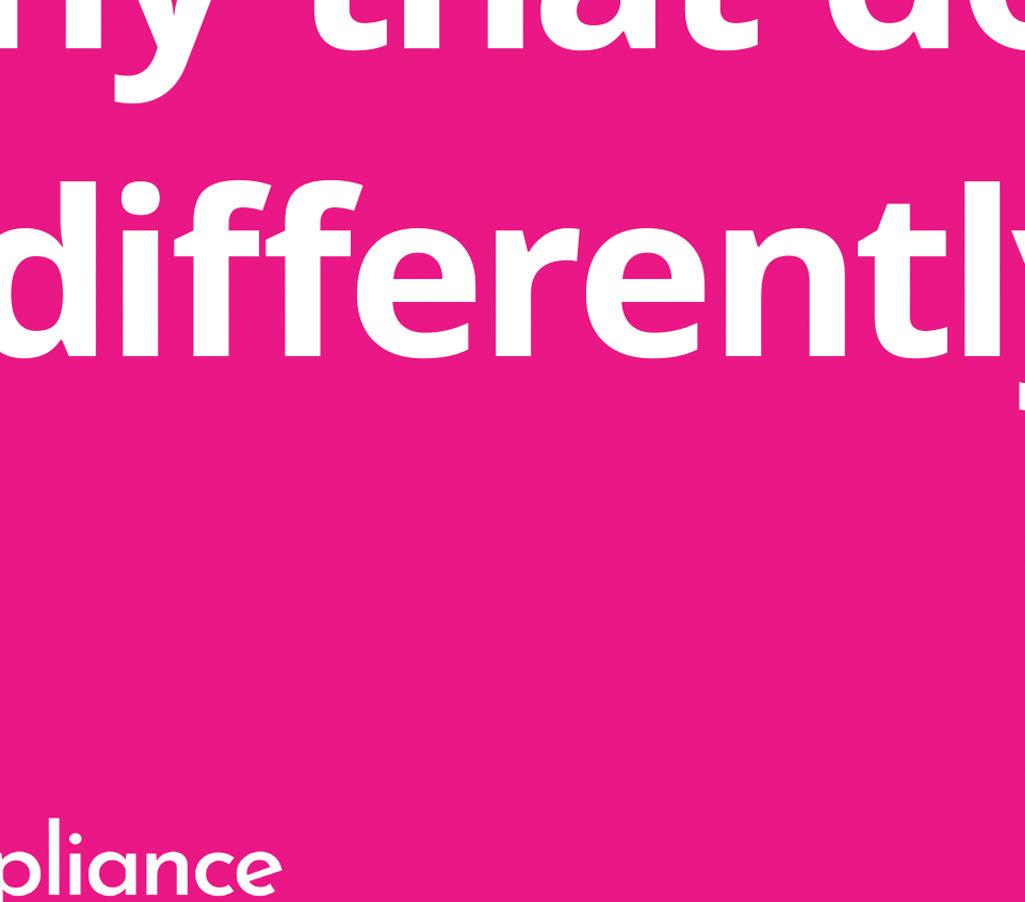

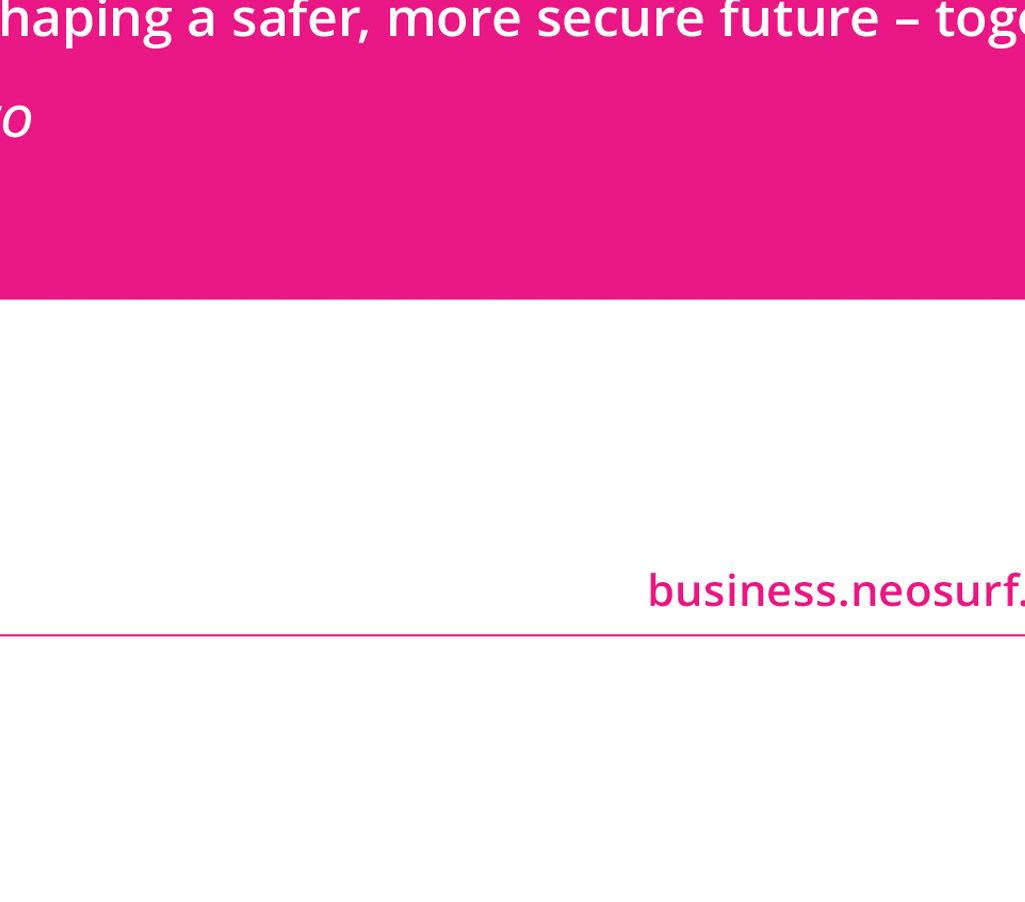





Facing facts



URI POLIAVICH RHEA LONEY
How are gaming trends in Nevada differing to Macau? Gambling Insider investigates...
Taking stock
Gambling Insider tracks operator and supplier share prices
18 Winners revealed!
Congratulations to the winners of the first Global Gaming Awards EMEA to be held in Barcelona. We review who won what and how they reacted
36 Where is the line?
Who is responsible for responsible gambling – operators, regulators or players? With insights from across the industry, Gambling Insider explores
44 Where’s the limit?
Regular contributor Paul Sculpher discusses the law and prevalence of limiting sports bettors in the modern market
46 Breaking the ICE
Gambling Insider highlights some of the biggest panels from ICE Barcelona 2025, from speakers including former Entain CEO Gavin Isaacs
52 Teamwork makes the dream work
Gambling Insider regular contributor Gustaf Hoffstedt breaks down how regulators and suppliers can work together to combat illegal operators
54 An eInstant success
Why have eInstant games gained such popularity in recent years?
Gambling Insider spoke with Fennica Gaming and Aristocrat Interactive to find out more
56 David vs Goliath
Sweepstakes casinos in the US have not only surged in popularity but they have polarised opinion. This is best summed up by the AGA's recent verbal sparring with the SPGA




58 Legislation in the UK
Gambling Insider speaks with John Hagan about the latest developments within UK gambling legislation, including the statutory levy, advertising and more 60 Regulating to innovate? Technology leaders from The Hippodrome Casino, Playtech and more came together in February for a session titled ‘Responsibility in gaming and gambling technology’ 62 Roundtable: Live dealer
Industry experts answer Gambling Insider ’s burning questions on all things live casino
70 Edgar Davtyan Lynon
Ashley Lang Pragmatic Solutions
Anton Chumel Champion
David Natroshvili Spribe
Vigen Safaryan Galaxsys
76 What's new?
Gambling Insider delves into the latest products on offer
82 Edmond Ghulyan Relum
How is the Nevada gaming market faring against Macau? Gambling Insider investigates trends across both, plus online data from additional US states
Source: Gaming Inspection and Coordination Bureau of Macau (DICJ)
In both 2023 and 2024, October was the highest earning month in Macau, making MOP 19.5bn ($2.41bn) in 2023 and MOP 20.8bn ($2.57bn) in 2024 – the latter being the only time in two years that revenue exceeded MOP 20bn. This spike has been put down to local festivities that annually increase tourism levels to Macau.
December 2024 marks the first time in two years that monthly gross gaming revenue (GGR) in Macau declined year-on-year, down 2% to MOP 18.2bn.
Indeed, the second half of the year saw yearon-year growth slow down compared to early in the year. From June onwards, growth did not exceed 20%, while in January and February, GGR was up over 60%. This suggests a market that may now be settling following explosive post-Covid recovery – but not reaching postCovid levels.
Macau vs Nevada monthly revenue change (%), 2023 v 2024
Source: DICJ & Nevada Gaming Control Board (NGCB)
Aside from an instance in October, Macau’s year-on-year revenue growth in the second half of the year remained around the 15% mark. Nevada, meanwhile, experienced both increases and decreases in year-on-year revenue, peaking at growth of 3.3% and declining as much as 6.9% in July.
Interestingly, in October, Macau made $2.57bn, on account of the month hosting the Mid-Autumn Festival, making it popular among tourists. Yet this month saw minimal growth compared to others in the sample, suggesting consistency in earnings unlike other months.
July was the second-highest earning month for Nevada in the sample, just behind September. However, it faced the sharpest decline of the months in the sample. This suggests a Nevada that is struggling in peak months – a potential concern for the US gambling capital.
December marks not only the first time in two years that Macau's gaming revenue has declined, but the first time during the six-month period that Vegas has outperformed Macau in terms of growth.
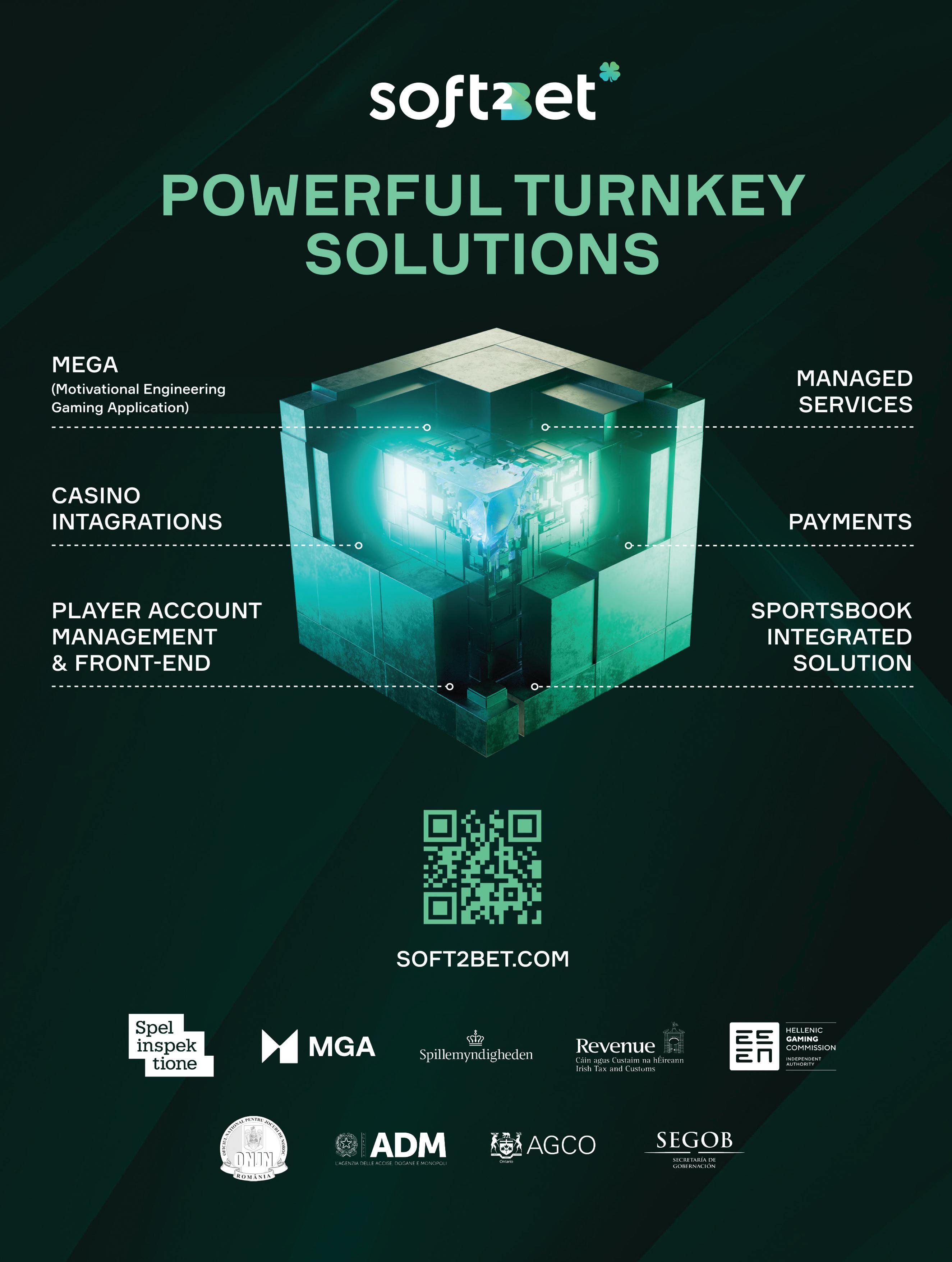
Source: NGCB
Using June and November as a sample, we can see a general trend in the revenue generated by gaming in Nevada month-on-month. Pre-Covid, revenue was just shy of $1bn, reaching $967.2m in November 2019. However, some pre-Covid months saw revenue exceed $1bn, including October 2018 and December 2019, when both hit revenue of $1.06bn. Post-Covid recovery was immediate in Nevada –unlike Macau, which is still yet to see revenue levels reach those recorded pre-Covid – with both June and November recording revenue of over $1bn. November 2024’s revenue was $4.6m lower than 2021, making $1.32bn. However, June revenue from the same period was up 7.8%, totalling $1.29bn. As this graph shows, the last four years have shown continuous inconsistency, with year-on-year growth on a monthly basis hard to predict.
Source: NGCB
Trends across the past four years show interesting statistics about growth and declines in monthly revenue. While some months show linear growth, such as September, and others show slight increases and decreases monthly, such as June and October, other months have seen more drastic jumps in revenue year-on-year, including July and November. November 2023 saw the introduction of the Las Vegas Grand Prix, which coincides with the highest November revenue in the four-year sample and, indeed, the highest November revenue on record, at $1.37bn. Despite this, December 2023 revenue outperformed November, reaching $1.43bn. Despite fluctuations year-on-year, there are clear trends month-on-month. Revenue seems to peak in July and November – the peak of summer and just before Christmas – while August, directly after a peak month like July, faces on average the lowest revenue of the sample.
Macau vs Nevada monthly gaming revenue ($bn)
Source: DICJ & NGCB
*Conversions from MOP may vary from time of writing
On average, between June – November 2024, Macau earned $1.04bn more per month than Nevada.
In October, Macau revenue almost doubled that of Nevada, making $2.57bn to Nevada’s $1.29bn. This is on account of the month being a particularly lucrative one for the territory, while being an average earning month for the Silver State.
Between September and October 2024, Macau’s monthly GGR rose 20.1%. Meanwhile, the largest month-on-month increase in the six-month period in Nevada was between August and September, with revenue up 12.9%.

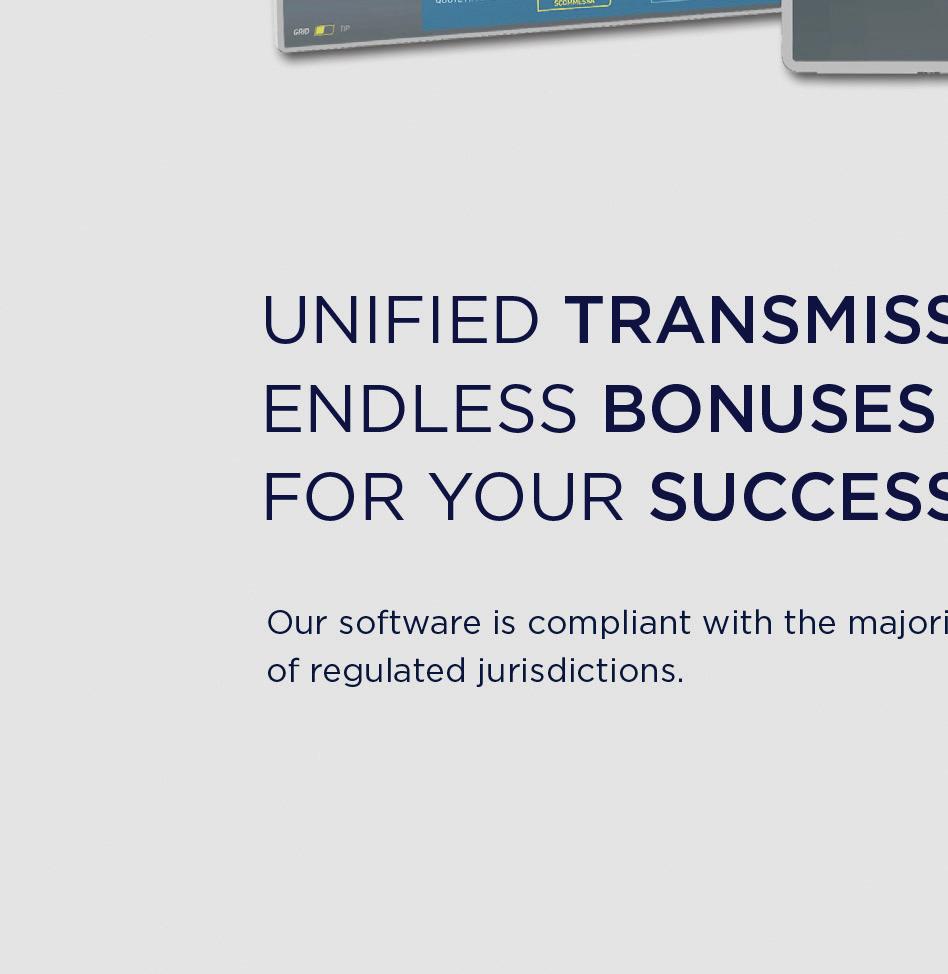







Source: Regulator sites
New York proves itself to be the leading state in terms of online sports betting, outperforming both Pennsylvania and Michigan in terms of handle. Indeed, even when combined, these two states’ sports betting handle would not reach that reported by New York.
Interestingly, New York also shows less volatility in month-on-month revenue on a percentile level, despite the higher value difference between months. There is a 45.6% decrease between the highest-earning (October) and lowest-earning (July) months, while for Pennsylvania and Michigan, this difference is 55.8% and 61.5% respectively.
However, all three show the same trend, with a lull in wagers during the summer months and a spike between August and September. Interestingly, while New York’s peak sports wagering month is October, it is November for Pennsylvania and Michigan.
Source: Regulator sites
While New York outperformed both New Jersey and Ohio month-on-month, all three show similar inclines and declines in monthly revenue. These results include both online revenue and retail revenue where applicable.
November is the month of the NBA, Breeders’ Cup and Las Vegas Grand Prix, making it a particularly high wagering month. September also shows a spike in revenue across the board, likely due to the NFL, Italian Grand Prix and other popular sporting events.
October shows an instance of Ohio outperforming New Jersey, making $81.1m to New Jersey’s $77.5m. The two seem to be performing at relatively close levels across the sample, particularly in the fourth quarter of the year.
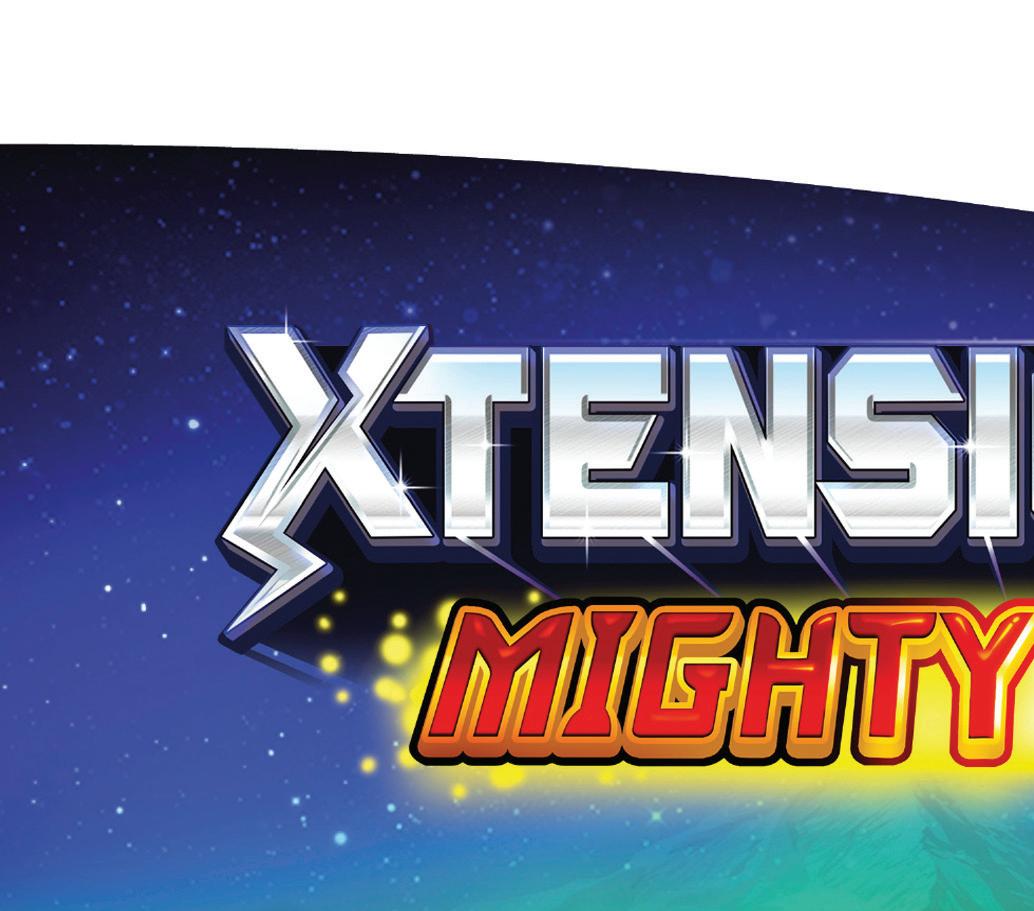










Gambling Insider tracks online casino operator and supplier prices. Stock prices are taken across a six-month period (September 2024 to February 2025) – and from the close of the first available date of the month
• Six-month high – February (18.22 USD)
• Six-month low – September (17.13 USD)
• Market capitalisation – US$739.32m (as of February 3 2025)
• Six-month high – February (8.35 USD)
• Six-month low – September (3.41 USD)
• Market capitalisation – US$4.06bn (as of February 3 2025)
• Six-month high – February (69.70 GBp)
• Six-month low – January (60.45 GBp)
• Market capitalisation – US$378.32m (as of February 3 2025)
• Six-month high – February (150.96 SEK)
• Six-month low – October (125.00 SEK)
• Market capitalisation – US$1.83bn (as of February 3 2025)






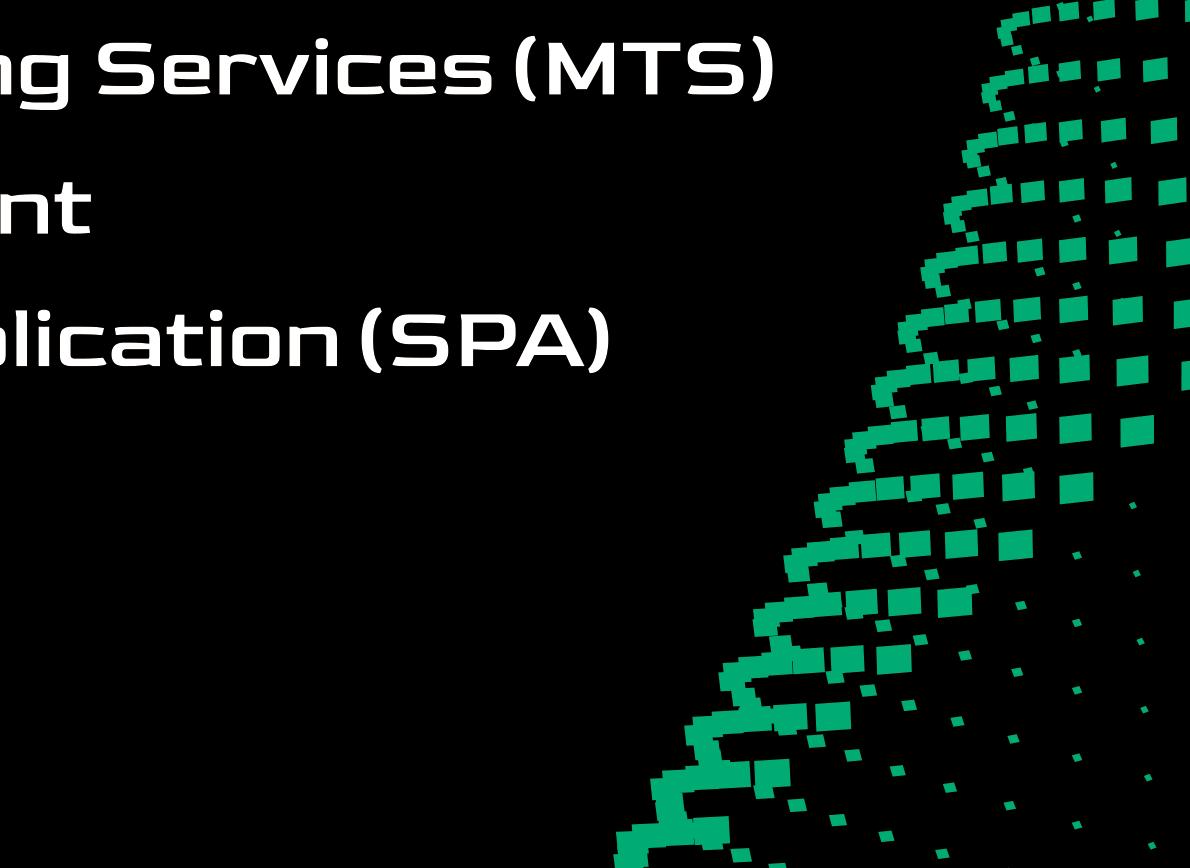

• Six-month high – February (5.20 USD)
• Six-month low – December (3.20 USD)
• Market capitalisation – US$125.08m (as of February 3 2025)
• Six-month
–
• Six-month high – September (108.70 USD)
• Six-month low – February (85.34 USD)
• Market capitalisation – US$7.76bn (as of February 3 2025)
• Six-month high – October (745.00 GBp)
• Six-month low – September (640.00 GBp)
–
(as of February 3 2025)




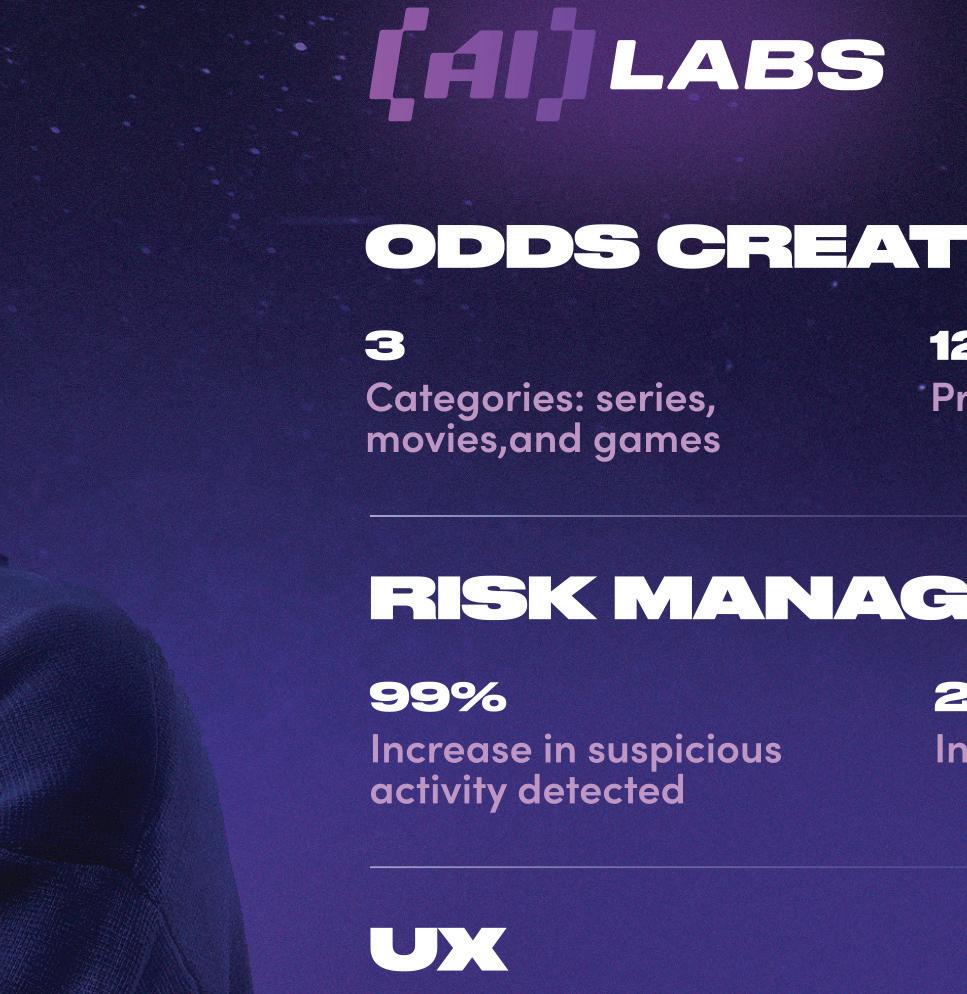



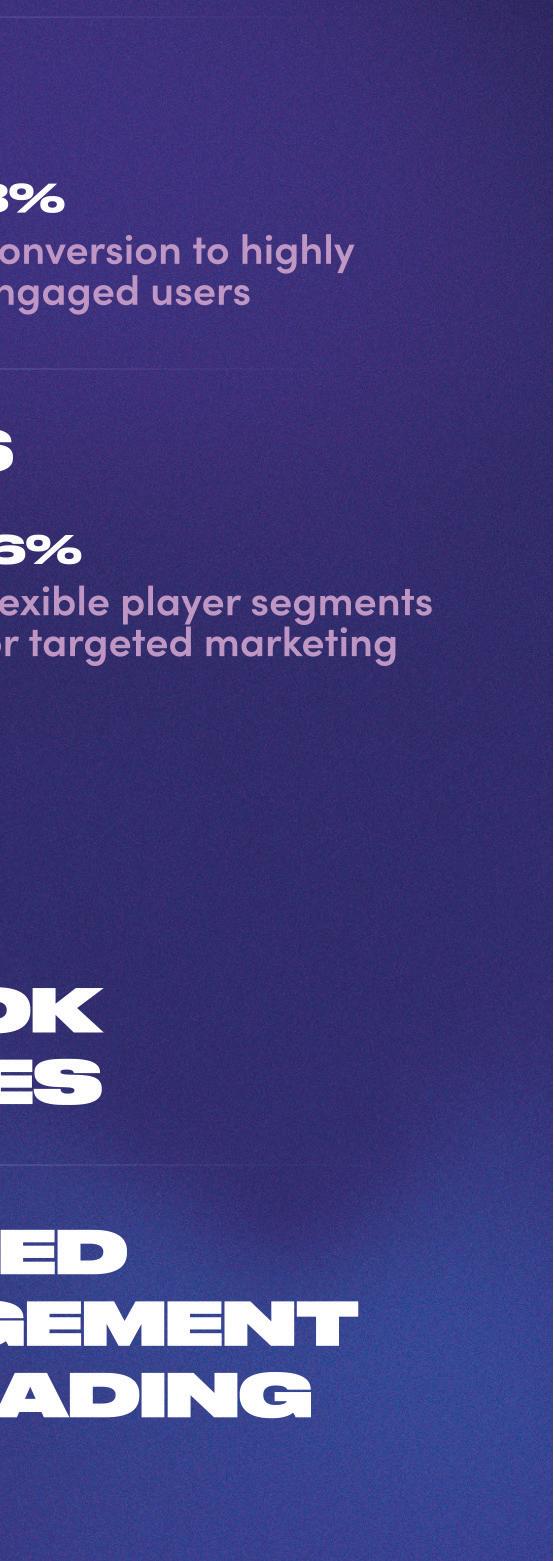
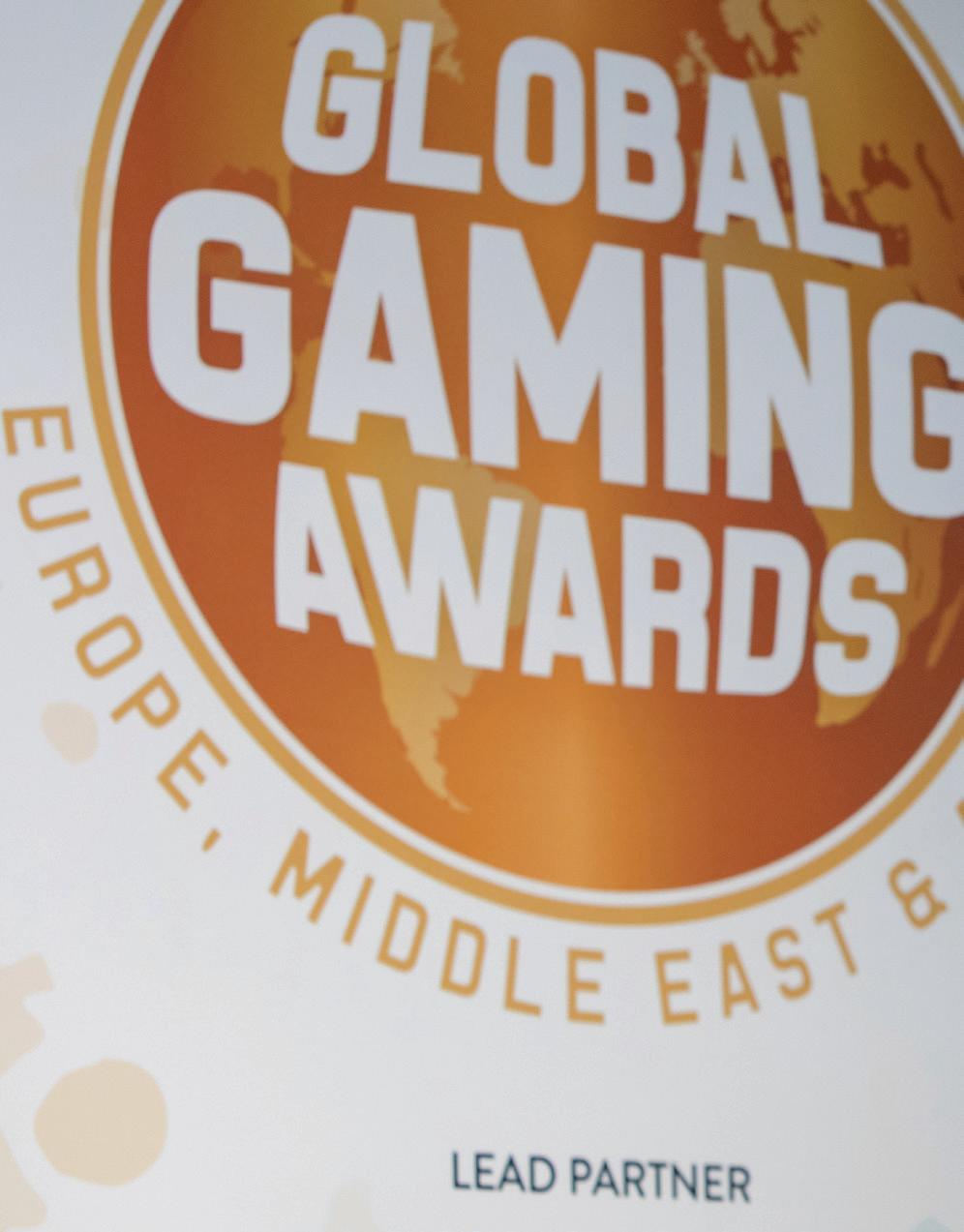










Gambling Insider reviews the big winners at the Global Gaming Awards EMEA 2025, as the industry gathered for the first-ever ceremony in Barcelona


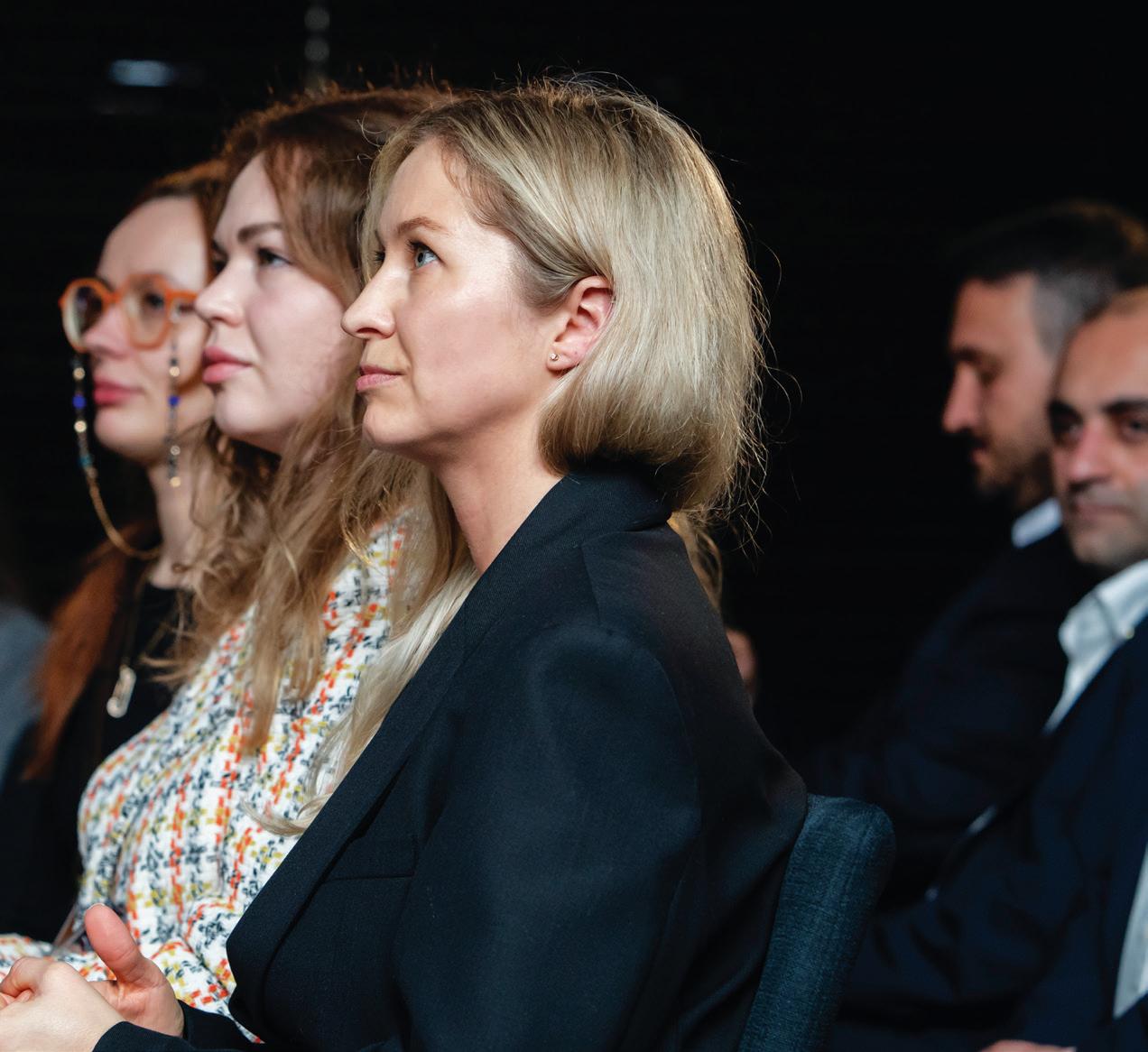
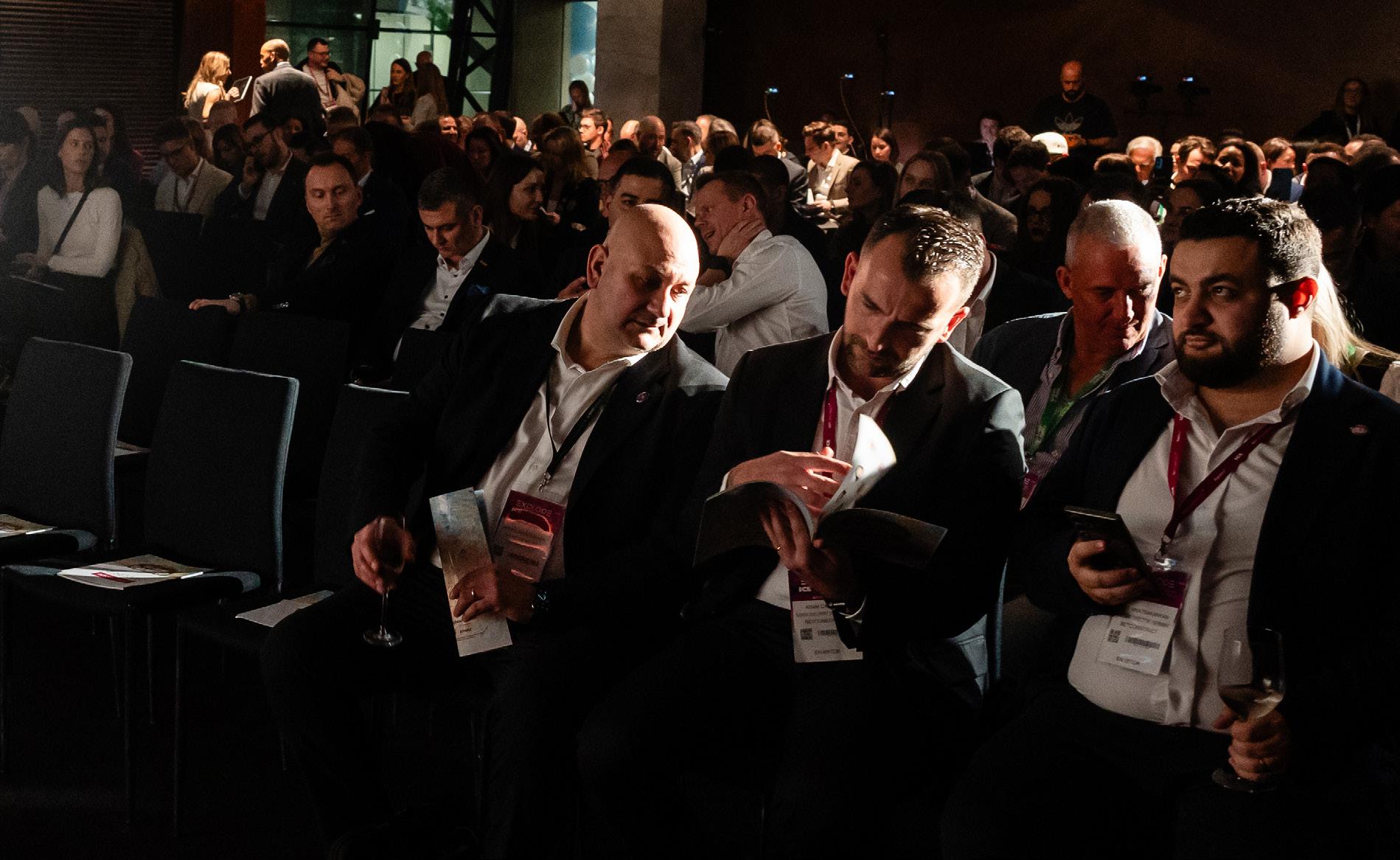










































































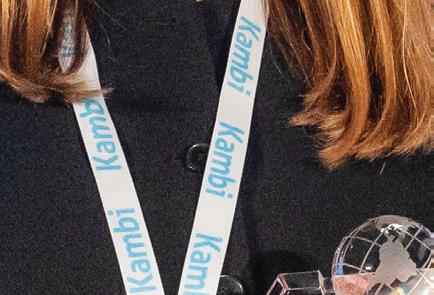











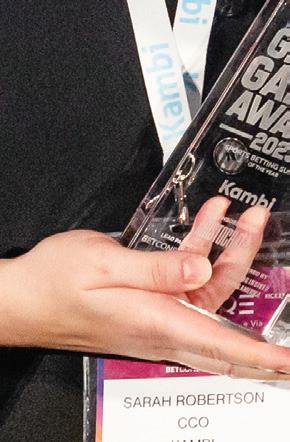












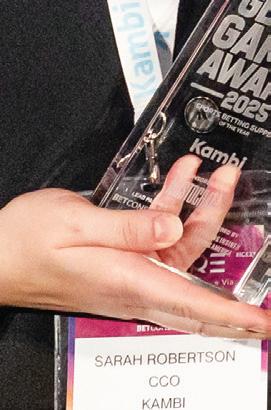






























































































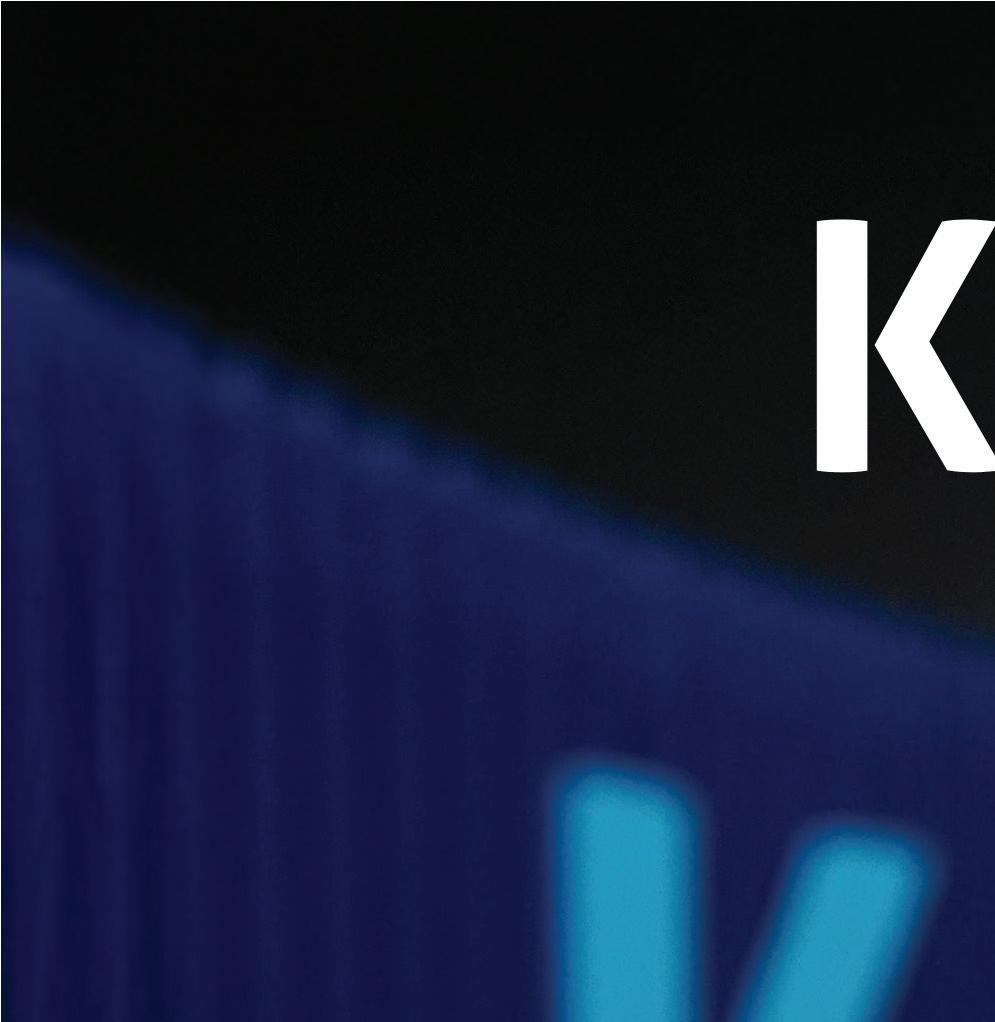
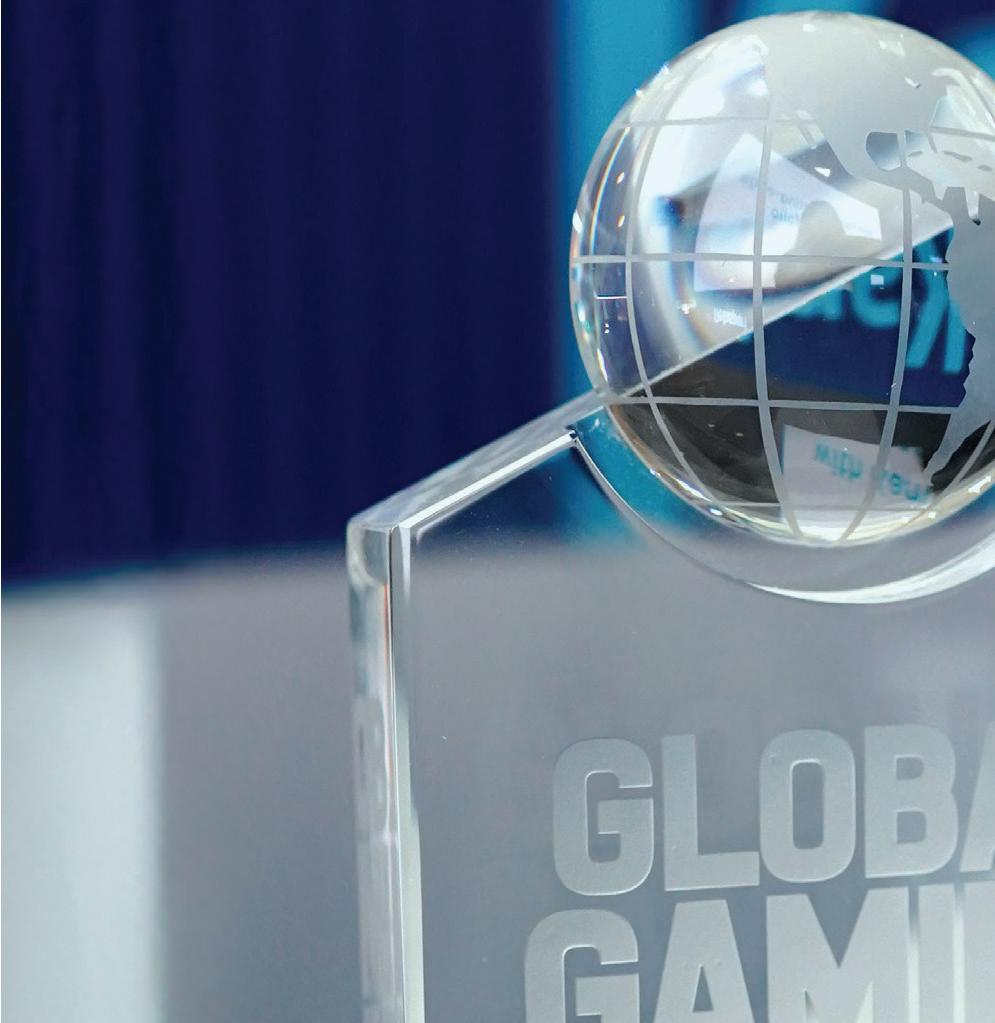






























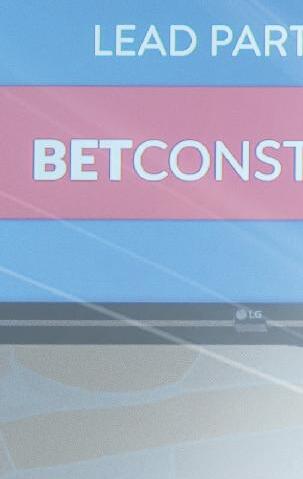




































































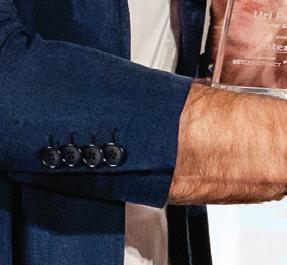
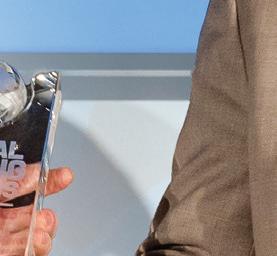






























































































Sponsored by

































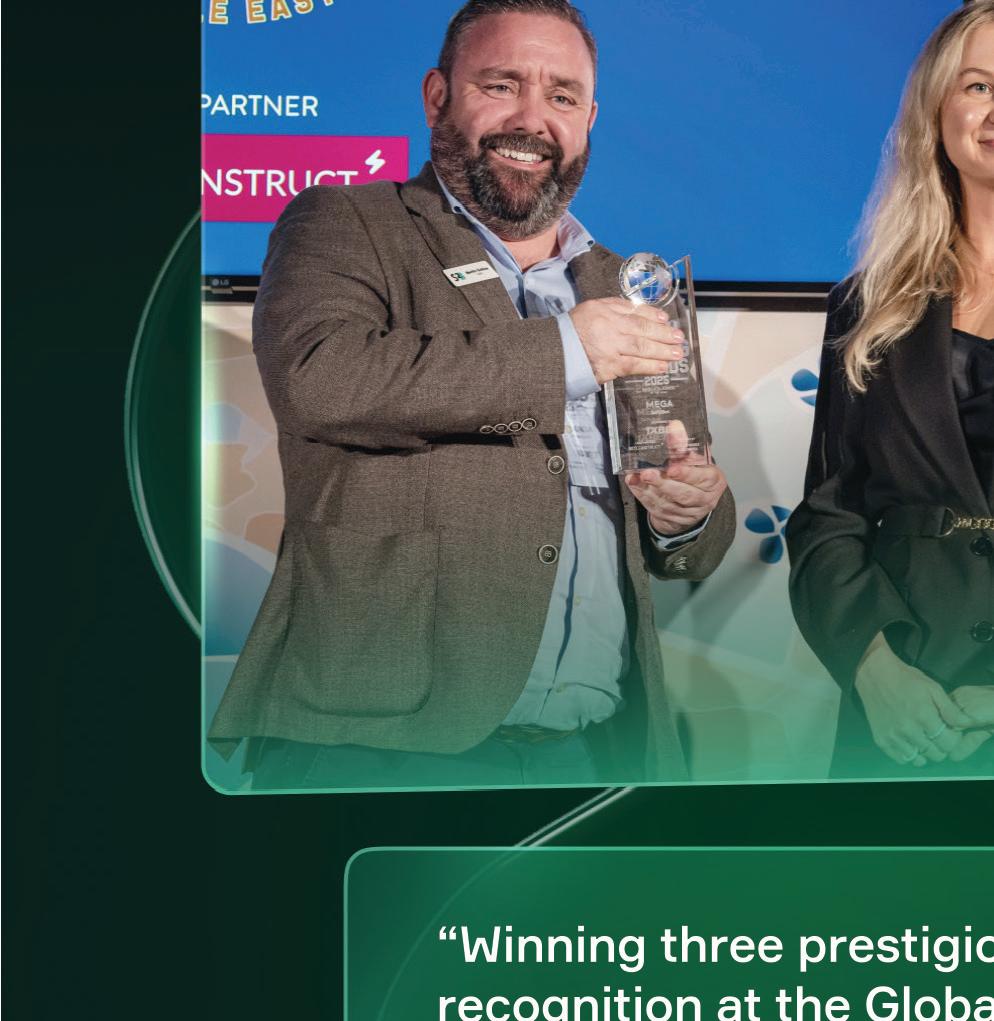





















































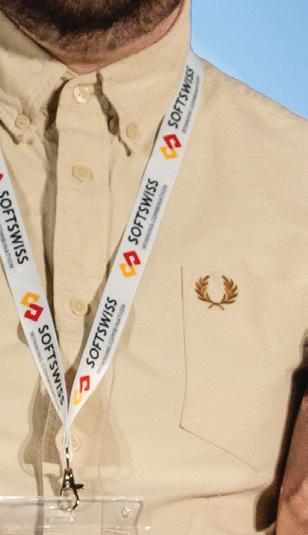





















































































































































































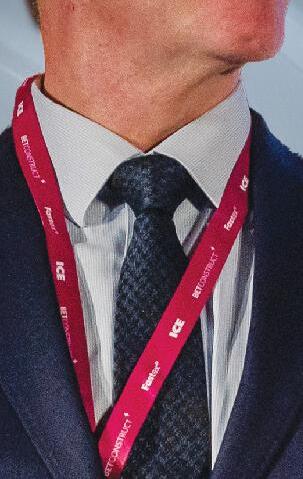




































































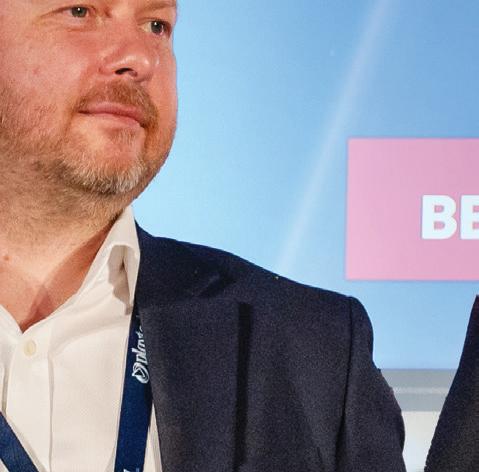




























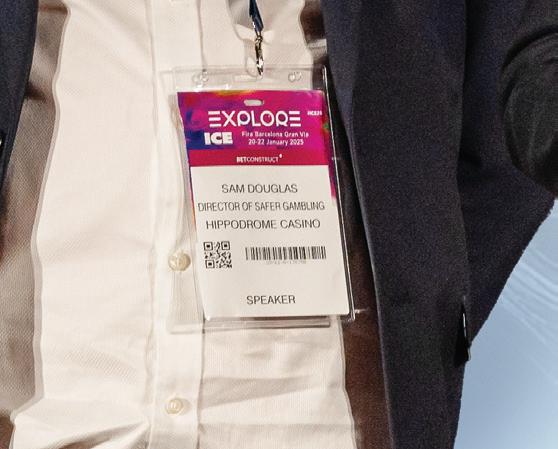




























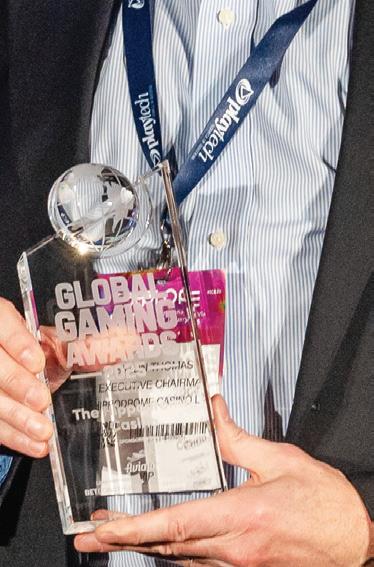






























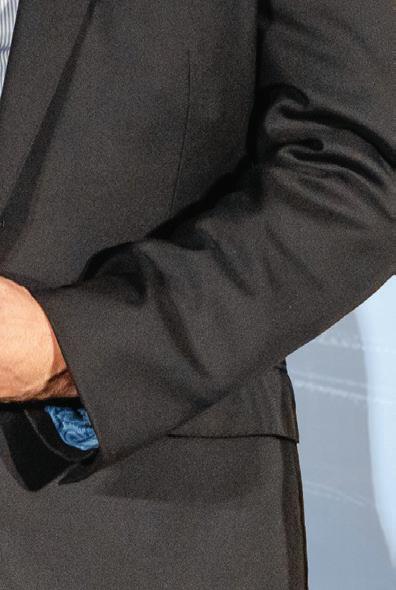


























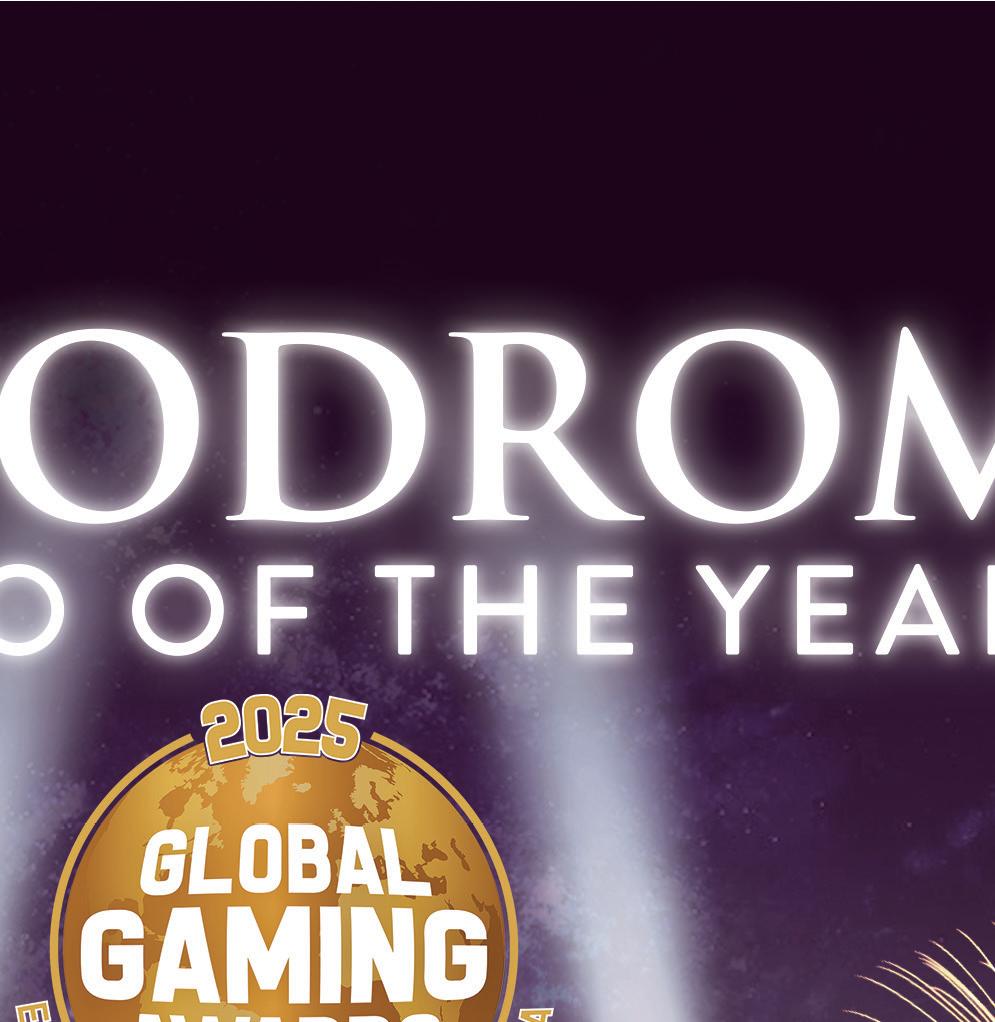







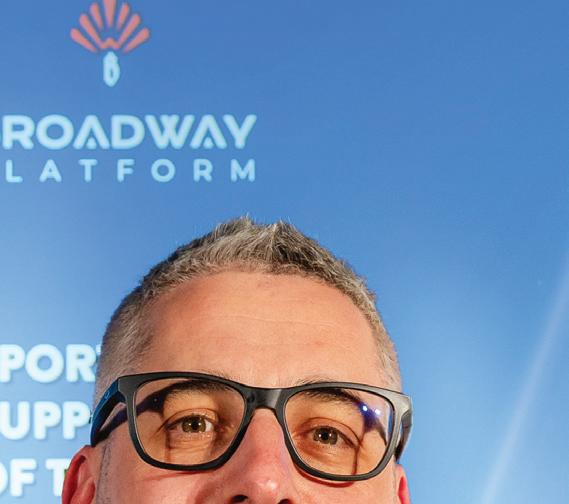
















































































































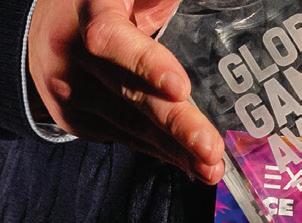






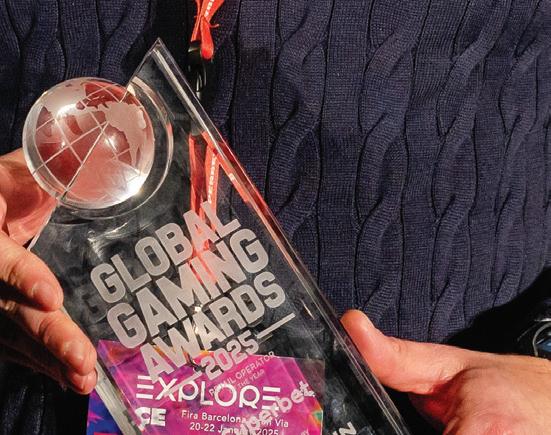





























































Sponsored





























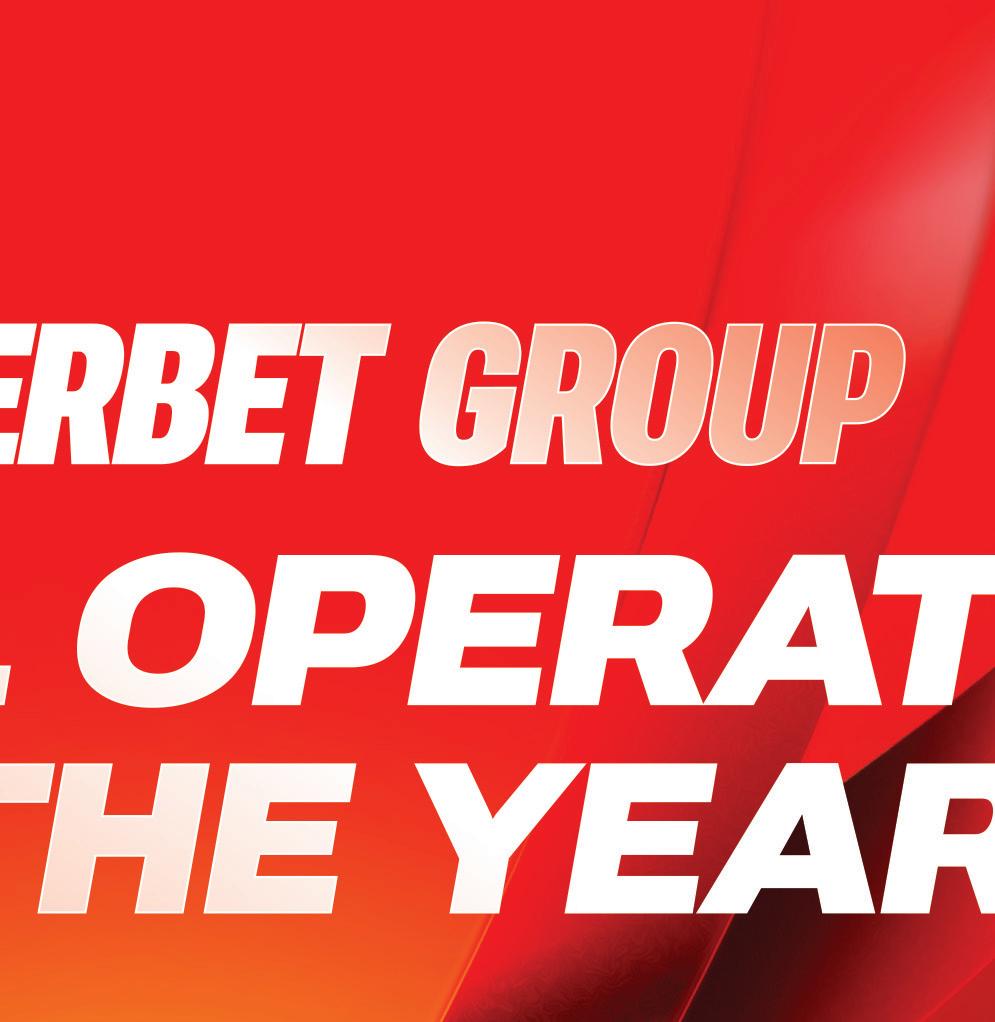

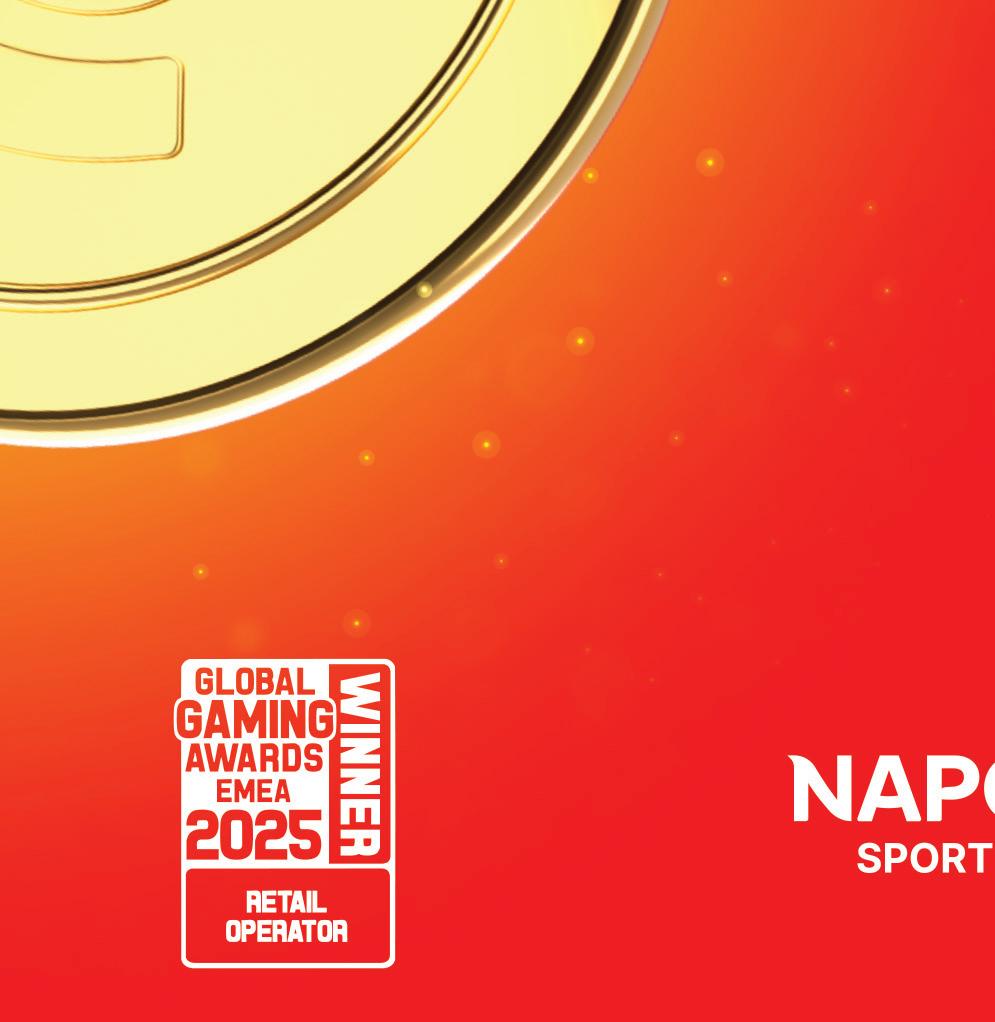


























































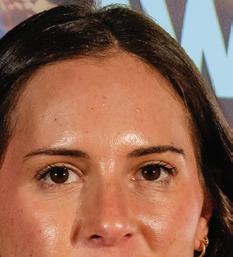





































































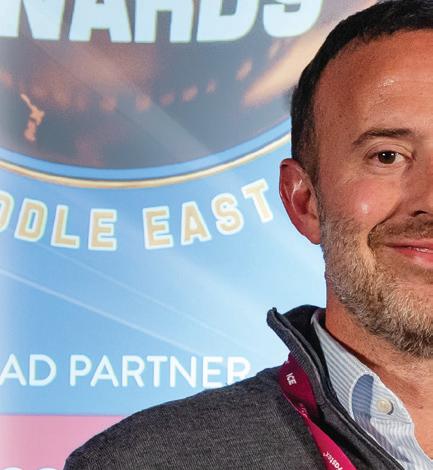

























































































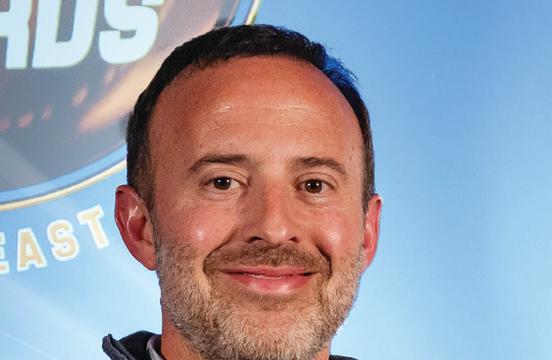




























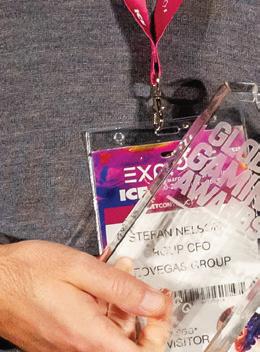





































































































































































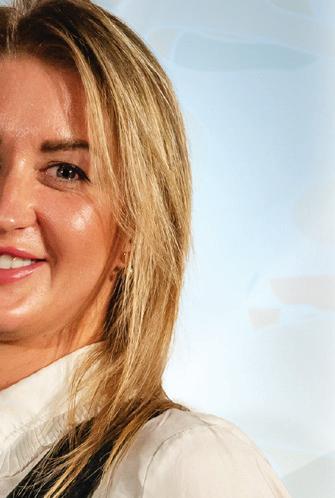













































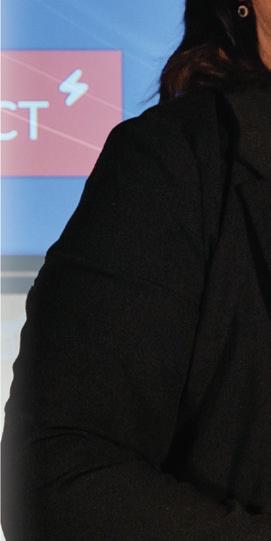


























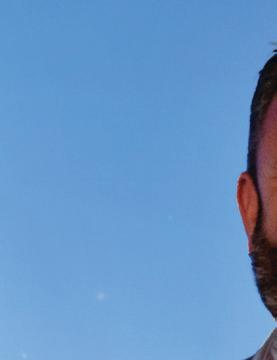






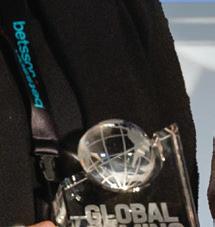

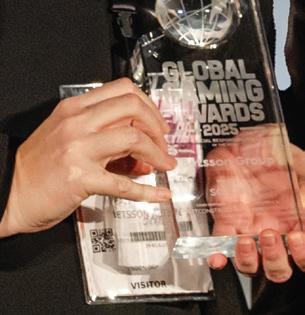

















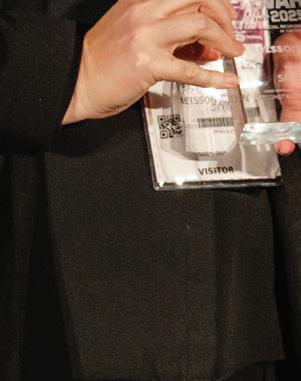









































































































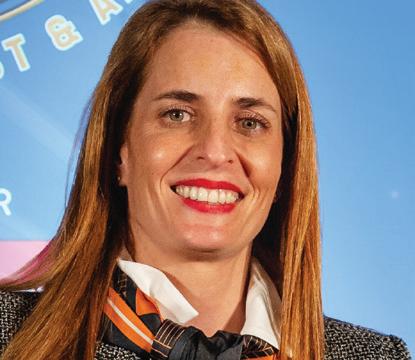


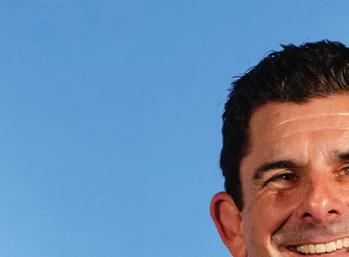

















































































































































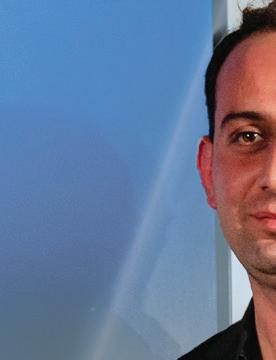

















































































































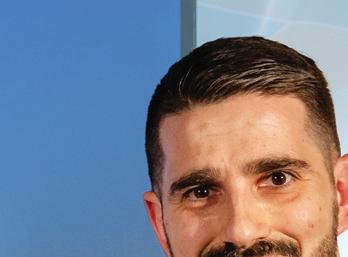

















































































































































































































































































































































































































































































































































































LEAD PARTNER


CATEGORY SPONSORS



































































































Within the ethical complexities of gambling, how much onus falls on the operator, the regulator and the player to ensure a responsible environment?
Gambling Insider explores the moral, practical and legal aspects involved
In an industry as vast as gaming, it is rare that you will find a common, unanimously agreedupon theme across all verticals and sectors. Rare and unlikely, indeed, but not impossible. Player protection isn’t the hottest phrase in the industry right now. Compliance, AI, Brazil, microbetting, sweepstakes, personalisation all yield a weightier respective presence among the discourse. Yet something we can all agree on is that, without the players, there is no industry.


– such as deposit and loss limits – which are particularly effective and highly enforced across the European market for this younger demographic, often ranging from 18-24 years of age. However, on the side of the players not included in this bracket, they remain responsible for exercising their own cautious gambling practices to protect themselves from any harmful outcomes.


It is common to hear professionals in gambling eulogise about the many wonderful people that work within the industry. Indeed, this is certainly not untrue and, if any one of those individuals were posed a question on the importance of player protection, they would all but unanimously agree it is paramount. Despite this, it can be argued that many of the players that fund our industry, quite simply, aren’t protected.
But where does the responsibility for that protection lie? Well, at the root of things, gambling products filter through a lifecycle that contains three major groups of stakeholders; those who consume the products – the players – those who provide the products – which can be referred to as the operators – and those who regulate the products –governments, regulatory bodies and such.
All three of these parties are responsible for – and benefit from – ensuring safe gambling practices. In the same vein, all three parties bare their own unique conflict of responsibility.
Taking responsibility for one’s own actions is a key life-lesson that transcends geographical boundaries – and one reinforced from an early age. Consumers that engage with gambling products will, by the time they’re in their mid-twenties, most likely be fully aware of the potential risks affiliated with the practice of gambling. Of course, this does not account for younger players that can in many countries engage with gambling from the age of 18.
There are enhanced protection measures
Sustainable & Safer Gambling Lead at Casino Guru, Šimon Vincze, touches on the unique conflict of responsible gambling from the player’s side. He tells Gambling Insider: “Players cannot meaningfully manage their play without understanding fundamental gambling principles. This can be referred to as gambling literacy, and it is vital for having fun with gambling in the long run. For example, understanding that a big win is just chance that cannot be easily repeated can have a profound impact. That said,” he continues, “industry stakeholders must actively support players in embracing it as their responsibility rather than passively informing them about the addictive nature of gambling.”
This point is further backed up by Tracy Parker – Vice President, Policy, Standards and Accreditation, Responsible Gambling Council. She tells us: “Players have a responsibility to be aware of their own, personal limits regarding the frequency and amount of time and money spent gambling. It is also important for players to be mindful of their gambling and the impact it’s having on their lives. It is not always easy to do this, so being aware and using the available resources, such as self-assessments and play history, is important for players to gain valuable insights into gambling patterns. Educating themselves about gambling – such as understanding that winning is largely based on randomness, not luck or skill – can help players view gambling more as a form of entertainment and less as a way to earn.”
As evidenced here, players must therefore utilise their knowledge to exercise selfcontrol via limiting spending to what they can afford, alongside setting time limits, not chasing losses, remaining aware of their

feelings/reactions, taking regular breaks and – crucially – being honest about the nature of the habit with those closest to them. They are likely to see something as a problem long before an individual sees a problem themself.
Daniela Johansson, Paf Deputy CEO & Chief Regulatory Officer, clarifies the importance of recognising the signs and taking the first steps towards addressing compulsive behaviour to Gambling Insider: “We know from experience that it is difficult to encourage players to seek help for problem gambling. The first step is to help them recognise that they have a problem; for example, through interventions and easy-to-use reality checks. Once a player acknowledges their problem, there is often a critical window where they are more likely to follow advice and seek help, especially if the process is simple and not too complicated.”
Examining one’s own ethical position before stepping onto the casino floor is paramount for players looking to ensure their own safety. Even within a nation such as the US, which yields extremely relaxed gambling advertising restrictions – almost every single gambling product or advertisement will come complete with a warning message that seeks



to encourage safer play. Therefore, a player that is fully cognizant of the risks cannot expect to be protected by any external source, as they have been alerted to the potential dangers of their engagement.
However, none of these aspects account for the vicious hereditary, psychological and physiological nature of addictive compulsion. Unfortunately, addiction –despite being accepted in all medical, psychological, physiological and public health fields, alongside having widespread cultural acceptance – cannot be used as a legal defence.
Herein lies the player’s key conflict of responsibility. Some players can be trusted to protect themselves and others, through no fault of their own, simply cannot. Vincze explains: “Problem gambling is a spectrum, and the worst-case scenario is a person who gets to the addiction end of that spectrum with zero understanding of how gambling works, the kind of reactions it causes in the brain, or how to manage gambling behaviour. Such players would subsequently be seeking help after there is considerable damage already having been done.”
Duncan Garvie, Founder & Trustee of self-exclusion RG service BetBlocker, explains to Gambling Insider why protection from the player’s side needs to be enforced as a ‘second nature’ response: “I would suggest that our biggest challenge is with language. When you climb into your car, do you consider buckling your seatbelt a ‘responsibility?’ Or is it just something you do without ever really thinking about it?
a healthy pastime, frequent habit and debilitating addiction can, at times, make for a difficult ethical conundrum around player responsibility.
Laws pertaining to responsible gambling and player protection vary across global jurisdictions. This makes it more difficult to determine what the law stipulates with regard to the responsibility of responsible play – and whose shoulders it rests on. A region that is recognised across the gambling industry for being at the front of the battle for responsible practices is the UK. Taking a look at the law here, then, provides a valuable insight into how the legal land may lie on a more global scale as responsible initiatives continue to progress in the future.


“The problem here is that the language we’re using is creating an undesirable response before we even start. ‘Responsibility’ implies a burden we take on. We don’t want players to see the tools and support that are available to them this way. There will always be players who are not capable of managing their own engagement. Operators need to step in to help these players. But for everyone else, we need to embed in the public consciousness a view that this is just something you do when gambling. Without thinking about it. Without it feeling like a responsibility.”
Evidently, the blurred lines between
Of course, unpicking the full UK Gambling Act 2005 would be a little – shall we say, dry? Cherry picking a handful of key stipulations, though, presents an interesting picture of the framework that, bear in mind, is one of the strictest in the world when it comes to ensuring player protection.
Vulnerability: Caution when preparing campaigns must be exercised by operators. The protection of children, which are defined clearly into age groups, is specified alongside ‘vulnerable persons.’ However, the latter remains undefined, presenting a grey area for protection initiatives. The law also advises that men aged 18-34 are more likely to experience problems with compulsive gambling, but does not specify any requirements not to target this demographic.


Misrepresentations: Advertising must not glorify or misrepresent gambling as an activity without risk, as an activity based on skill, as a way to be part of a community, or any other means of creating an unrealistic perception as to the outcomes of the practice.
Encouragement via trivialisation: In the UK, advertising must not encourage repetitive or frequent participation, play down the potential risks through the use of humour, encourage people to spend more than they can afford, or present unrealistic portrayals of winning.
As previously mentioned, a deep dive

Duncan Garvie
into responsible gambling law is perhaps for another day. The legislation included above, though, acts as a demonstrative tool for where the bar has been raised to for player protection, particularly within the EU market – and particularly regarding advertising restrictions. It is evident, then, that federal and local governments do yield a power in authorising responsible practices when it comes to gambling. Further, they also yield their own responsibility to motivate change via legislation. While it is true that many operators will pursue change without regulatory impetus, it is equally true that many simply will not. This, therefore, places both the successes and failures of governmental enforcement when it comes to player protection under the microscope.

“Speak to anyone who’s held a decision-maker level role around player protection in the industry and you’ll quickly become familiar with the dichotomy that exists within businesses between profitability and protection” – Duncan Garvie

In an industry often dressed up in glitz and glamour, the player protection sector could almost be referred to as an area where the ‘dirty work’ gets done. Essential? Yes. Glamorous? Not so much.
This is where a government steps in to do the heavy lifting. However, its own conflict of responsibility is one that is akin to that of an operator, as gambling is an industry that generates billions for economies across the globe every year. This money then gets pumped back into economical and infrastructural development, education, welfare and industry. It could be going towards protecting the most vulnerable sectors of a given society.


On the other side of the coin, much of this tax revenue generated by the industry will, indisputably, be generated by compulsive problem gamblers. Some may shy away from this fact and, while it almost certainly doesn’t even come close to making up a majority of





another 4-10% experience severe harms, which again varies between products.

gambling profits, it is a reasonable assumption that it will account for financial figures in the tens of millions. This, by the standards of 99% of the population, is a lot of money.
Sally Gainsbury, Director at Gambling Treatment & Research Clinic & Professor of Psychology, University of Sydney, pulls back the veil on the prevalence of problem gambling – explaining to Gambling Insider where the regulatory responsibility lies: “A notable proportion of gambling customers experience negative consequences and harms from their gambling ranging from mild to severe. This is not 1%, which is a figure based on population prevalence and includes many who do not gamble at all. The actual proportion of regular gambling customers who experience moderate harms is closer to 6-16% depending on the product and around

“Regulators have a responsibility to ensure that the product and environment is not harmful, does not encourage gambling beyond what is affordable, and does not encourage irrational or erroneous beliefs about the likelihood of winning or other product characteristics. Unfortunately, there are many instances where the operators and regulators fail in their responsibilities, which makes it difficult for more vulnerable consumers to control their gambling and essentially resist the potentially manipulative strategies used against them.”
One solution to tackling the conflicting ideologies of tax generation and harm minimisation is through non-monetary restrictions, such as implementing time limits, self-assessment tests, self-exclusion & enforcing requirements that demand operators carry out enhanced data collection and player observation techniques. Further, ensuring that operators report their RG initiatives and player protection techniques, providing statistics that display



continuous progression, remains potentially game changing.
Critics from the operator side will argue that these can be hard to measure – and even harder to then report back to the government. This, however, should be beginning to change with the ever-increasing sophistication of AI and player monitoring techniques. Technological advancements within gaming seem to be changing the way we approach almost everything year-uponyear. Now, with the rise of AI, new player acquisition and retention techniques have exploded. Concepts like personalisation or microbetting have such powerful applications for keeping players betting, so there must be a way to utilise this kind of technology for protection. The impetus, though, remains on global governments to introduce regulatory measures that can curb the potentially destructive powers of these techniques. The manner in which they introduce these regulatory measures still remains up for debate.


Johansson: “In general, I don’t believe every new gambling innovation should go through a rigid RG vetting process before
being released. Overregulating through excessive administrative hurdles and added complexity could stifle innovation within the industry. A dynamic and competitive market requires room for technological advancements and product evolution.

regulators keep pace with emerging trends,
“That being said, it is essential that regulators keep pace with emerging trends, and ensure that regulatory frameworks remain relevant and effective. Instead of a pre-approval process, a better approach could be continuous monitoring and adaptation – where both operators and regulators collaborate to assess potential risks and make data-driven adjustments when necessary. Ultimately, player protection should always be a priority, but it is crucial to strike a balance between responsible gambling measures and
protection should always be a priority, but fostering innovation.”


There is mounting evidence that financial behaviours while gambling can be clear indicators of risk or harm. The way to traditionally associated with RG, including powerful new channels for player protection.”
Parker suggests that governmentally affiliated stakeholders, such as financial institutions, could have a role to play in improving RG approaches: “For me the most important, untapped point of leveraging RG opportunities is with financial institutions. There is mounting evidence that financial behaviours while gambling can be clear indicators of risk or harm. The way to tackle this issue is with stakeholders not traditionally associated with RG, including financial institutions who are potentially powerful new channels for player protection.”
the responsible gambling sector, like the wider


















challenge that lies before international lawmakers in the industry. This point is accentuated when one observes the sheer financial power of some of the largest conglomerates in the industry. Examining whether some organisations are too deeply entrenched in government interest is, though, another

There is no doubt that the responsible gambling sector, like the wider industry itself, is changing. Those who have been in the field since it first began to be taken seriously around 20 years ago will tell you just how much attitudes have indeed changed in that time. This is clearly represented by the American Gaming Association’s recent report which recorded that $472m is now invested in RG annually, up 72% from figures reported in 2017.
Whether or not this antithesis in outcomes represent a shift in wider attitudes toward recognising player protection is subjective. However, the latter of the two underlines the growing power modern-day operators now yield via the vast amount of data they have on their players – a theme explored by Gainsbury: “Operators have a wealth of information about customers that is highly disproportionate. That is to say, they have information on a customer they do not share with the customer. This information is often used for marketing purposes, including to send personalised promotional offers.
be taken seriously around have indeed changed in that time. This is clearly represented by the American which recorded that $472m is now invested in RG annually, up 72% from figures
have on their players – a theme explored by Gainsbury: “Operators have a wealth of information about customers that is highly disproportionate. That is to say, they have information on a customer they do not share with the customer. This information is often used for marketing purposes, including to send personalised promotional offers.









Providing protection in a rapidly changing online landscape, where compulsive gambling is at times seemingly encouraged –one only has to look as far as microbetting for an example of this – is now a monumental industry. This point is accentuated in the industry. Examining whether some subject entirely.






Moreover, the swinging pendulum of shifting attitudes is well represented by two juxtaposing


Johansson continues: “For me, the most pressing concern is the rising prevalence of problem gambling among young players. It is well established that younger individuals are a high-risk group for gambling-related harm. Today, we see an entire generation
Johansson continues: “For me, the most problem gambling among young players. It
harm. Today, we see an entire generation growing up with gaming experiences that include gambling-like features, such as loot boxes and skin gambling. This trend is deeply concerning, as it blurs the lines between gaming and gambling from an early age.


“As operators, we must take this issue seriously and implement safeguards to protect young players. However, regulators also have a significant responsibility –
particularly in proactively addressing and regulating the largely unregulated gaming industry to prevent harm before it occurs.”
Weighing up wellbeing and wealthgenerated welfare is a tricky line to walk, yet it is the job of any good government to examine its own moral imperative before every single decision it makes.
former patron Arelia Tavares unsuccessfully chase a $20m racketeering lawsuit in federal court

swinging pendulum of shifting attitudes is well represented by two juxtaposing legal cases, one of which saw former patron Arelia Tavares unsuccessfully chase a $20m racketeering lawsuit in federal court against six Atlantic City casinos in the mid-2000s. Tavares claimed that the casinos neglected their duty of care,




“If operators are going to use a customer’s personal information as a way to incentivise and encourage further gambling spend and activity, I believe they have a



“If operators are going to use a customer’s personal information as a way to incentivise and encourage further gambling spend and activity, I believe they have a responsibility to ensure they are not creating any harm through encouraging excessive gambling. Individuals may be trying to control their gambling, take a break or reduce their spend and individuals experiencing problems, by definition, have reduced ability to control their gambling. These are the individuals who will find it difficult to control their responses to promotional offers. If operators are going to personalise any approaches, they have a responsibility to ensure they are not targeting people who are vulnerable to experiencing
creating any harm through encouraging excessive gambling. Individuals may be trying to control their gambling, take a break or reduce their spend and individuals experiencing problems, by definition, have reduced ability to control their gambling. These are the individuals who will find it difficult to control their responses to to personalise any approaches, they have a responsibility to ensure they are not targeting people who are vulnerable to experiencing gambling harms.”











that the casinos neglected their duty of care, failing to notice her compulsive behaviour as she accumulated nearly $1m in total losses.


In comparison, a case from January 2025 saw almost the exact same occurrence from an unnamed patron wagering with Sky Betting & Gaming, mostly placing bets on football online.
In this case, it was revealed that, despite numerous attempts from the player at self-exclusion, the operator still targeted them with advertisements and labelled them as a ‘high-value’ customer.
In this instance, though, Sky Betting and Gaming lost the case but is currently in the process of appealing the decision.






The question, then, is do operators prioritise their bottom line over the safety of their players? Here, Garvie gives his two cents...



“Yes. And no. As a corporate body considered as a single entity, it’s reasonable to say that commercial concerns can and do trump safer gambling considerations at times. I know many of the people who occupy the Head of Safer Gambling-type roles across the sector and it’s fair to say the conflict between commercial considerations and player safety is a common friction point that reduces their job satisfaction.
The question, then, is do operators prioritise their bottom line over the safety of their players? Here, Garvie gives his two cents... “Yes. And no. As a corporate body considered as a single entity, it’s reasonable to say that commercial concerns can and do trump safer gambling considerations at times. I know many of the people who occupy the Head of Safer Gambling-type roles across the sector and it’s fair to say the conflict between commercial considerations and player safety is a common friction point that reduces their job satisfaction.

“But these organisations in practice aren’t single entities, they’re an amalgamation of people. Therefore, if you have a strong or weak Head of Safer Gambling, that makes a difference. If you’ve got an entrenched, commercially exclusionary leadership team, or a team with more

progressive attitudes, that alters the landscape. The approach an operator will take is a reflection of the personalities that make up their team.”
Despite unanimously promoting safe practices through advertising and agreeing that players with addiction issues need to be protected, operators can and will utilise mass amounts of data to target their highest rollers who, in many cases, bet thousands a week with them – regardless of whether or not they are aware of these players’ backgrounds or financial situations.
Some of these players may be in a financial position strong enough to afford to lose significant amounts of money day-in day-out. However, many will not be in that position and encouraging those already sliding down the rabbit hole to take the first step towards additional ‘responsibility’ is something of a catch 22 at best.
The struggle and subsequent failure of admitting there is a problem is one that is frequently noted by recovering gambling addicts, exemplifying the crucial requirement for operators to always be willing to take the first step.
Parker underscores the importance of the operator’s first step: “It is fundamental, not only to take action when gambling harm is suspected, but also to actively monitor player behaviours for warning signs and markers of harm. With access to player data, operators can detect early signs of risky play patterns and intervene promptly to ideally prevent harm from occurring. Although players, regulators and operators all play a role in fostering a safe gambling environment, operators are in a unique position of having access to player information, and the ability to engage with players
directly and in a timely manner. Operators first need to educate themselves and their staff on the variety of help and support available to players and their communities. Making this information highly visible and easily accessible, as well as removing barriers for those seeking help, is essential.”
In many countries, these kind of initial protection incentives are becoming more commonplace and even federally enforced. This, of course, depends on exactly how you define a ‘first step.’ As stipulated in UK law, and clarified by the Gambling Commission, managing customer relationships falls under the umbrella of an operator’s commitment to social responsibility. Therefore, by this definition, encouragement to interact with gambling tools via including responsible gambling products in gambling advertisements could be counted as a first-step initiative.
Garvie explains: “There are clear times and places where operators both can and should be intervening to protect a player that has become a risk to themselves. There’s no excuse for not doing so. At times, I see appalling practices in the unregulated and weakly regulated markets. Operators who aren’t simply failing to intervene at the appropriate times but are actively encouraging and exaggerating harm. We have to do more to combat this.”
Indeed, as the industry advances, operators must look further than simply ‘first steps,’ a point that is rigorously emphasised by Garvie: “We don’t need to encourage players to seek help. We’ve a decade of messaging about the risk of gambling and the support services that are available. Though, admittedly, the industry could improve their signposting. We need to do better to encourage players who do not identify as impacted by gambling harm to engage with tools and strategies to help them stay within their affordability bracket.
“I was speaking with Professor Sally Gainsbury at ICE Barcelona, and she blew my mind by suggesting that Deposit Limits should be in the banking section of a player’s account, not the responsible gambling section. We want players to view these limits as just a normal part of gambling, not as something for people who have a problem. Common-sense genius.
“Despite all this, the overriding truth is that if we also get better at empowering players to play safely, there will be less need

Parker
for operators to intervene. This is a doubleedged conversation, and all stakeholders are responsible for behaving reasonably to minimise the harms associated with gambling.”
While both enhanced monetary and nonmonetary protection measures – such as time limits, self-exclusion lists or enhanced deposit limits – are a step in the right direction, it would appear that major operators in the modern industry have access to world-class data analysis and AI implementation tools, which they utilise for player acquisition and retention 24 hours a day. How, then, can this kind of technology make a difference when it comes to player protection?
Vincze tells us: “AI has proven to be very helpful in analysing and evaluating player behaviour, as it can handle many data points at once. Furthermore, AI can learn from this data and apply it to future decision-making, which is very promising for reducing errors down the line. Nevertheless, we are entering an era of AI assistants where communication with robots will become standard. I see significant advantages in such communication with players, as it can be automated through behaviour triggers. Moreover, when it comes to problem gambling, people might be less reluctant to talk to robots than humans.”
This point is further emphasised by
“Players, regulators and operators all play a role in fostering a safe gambling environment” – Tracy Parker
Parker, who continues: “The opportunities for highly targeted player interactions before harm occurs, or is exacerbated, are more accessible than ever before due to AI’s ability to collect, monitor and analyse data. One of the more exciting RG applications is real-time risk monitoring paired with personalised messaging based on patterns of play. In addition, AI has the potential to capture those players who might be showing early signs of gambling harm so
that early interventions and nudges can be provided to prevent harm from actually occurring.”


as horseracing that are still very much
Fear of driving players to the unregulated and potentially dangerous black market is one argument that is always on the table when it comes to discussions around more stringent player protection measures. Indeed, this fear has been voiced by many in response to affordability and credit checks for online players, which have been trialled in the UK and suggested to help curb the debilitating slot addiction crisis in Australia. Further, fears of an affected bottom line for industries such financially recovering from the Covid-19 pandemic have also been voiced.
While some of these initiatives do have the potential to affect profit growth, many will argue that a long-term view of a healthier industry, with happier and protected players, breeds a much more productive space within which operators can also thrive.


there are almost unlimited operators, products and abilities to pay. It is up to operators and regulators to decide whether they want to adopt a ‘churn and burn’ approach and attempt to monetise all players, or whether they want to establish a sustainable, responsible industry that is trusted and valued by consumers.
“I believe that respecting and valuing customers is an enormous opportunity and point of differentiation for gambling
and point of differentiation for gambling operators. Research demonstrates that consumer protection measures enhance customer loyalty and lifetime retention and value of customers. By putting players first, encouraging them to spend only what is affordable to them, operators can develop a loyal customer base who they can retain over time.”



Gainsbury adds: “Consumers have ultimate choice;

There are also examples of success stories where an increase in revenue has been evidenced following the introduction of more stringent player protection measures. An example of this includes Norsk Tipping’s mandatory pre-commitment loss limit introduced in 2014 – as part of a full suite of RG measures including time limits and selfexclusion options.

without inhibiting the experience of






exclusion options.

Evidently, if these kinds of initiatives are not implemented on a broad-scale trial basis, a definitive conclusion will never be reached. The impetus for achieving this, alongside consistently making the first steps towards protecting players and utilising AI for these purposes, falls indisputably under the operator’s umbrella of responsibility.

WHOSE RESPONSIBILITY IS IT, ANYWAY?

enhanced monitoring techniques and
Conclusively, findings would suggest that all three parties are implicated. The players stand to benefit the most from responsible practices, as simple credit check regulation, enhanced monitoring techniques and financial restrictions could massively curb the issue of compulsive betting
‘high roller’ customers display habits of compulsion which any kind of stringent restrictions are likely to flag – and their


without inhibiting the experience of the recreational bettor. The operators, however, benefit the least; as many ‘high roller’ customers display habits of compulsion which any kind of stringent restrictions are likely to flag – and their bottom line will likely suffer. These factors make it that bit harder for either of these two groups to remain objective.

two groups to remain objective.





Yes, there is a duty of care on the operator’s





gambler to walk away from a slot machine, you cannot trust major corporations to walk away from advancing their revenue streams.
caveat of risking a rise in black-market activity, although, on balance, those in government bear the smallest conflict of responsibility of our three stakeholders.





for player protection falls largely on governmental and regulators’ shoulders as, put simply, it’s their job.

Yes, there is a duty of care on the operator’s side and, indeed, the player’s, too. However, as much as you cannot trust a compulsive gambler to walk away from a slot machine, you cannot trust major corporations to walk away from advancing their revenue streams. Enforcing regulation does come with the caveat of risking a rise in black-market activity, although, on balance, those in government bear the smallest conflict of responsibility of our three stakeholders. This could therefore suggest the impetus for player protection falls largely on governmental and regulators’ shoulders as, put simply, it’s their job.

present an opposing argument to this








any one party as more responsible for protecting vulnerable players. There have certainly been failings within the industry. Speak to anyone who’s held a decisionmaker level role around player protection in the industry and you’ll quickly become








However, Garvie’s parting thoughts present an opposing argument to this conclusion, as he states, “I don’t view any one party as more responsible for protecting vulnerable players. There have certainly been failings within the industry. Speak to anyone who’s held a decisionmaker level role around player protection in the industry and you’ll quickly become familiar with the dichotomy that exists within businesses between profitability and protection. But regulators have failed too, turning a blind eye to problems and deploying ineffective policy for political reasons. And the ‘third’ sector has not always engaged a supportive or collaborative approach.

within businesses between profitability and protection. But regulators have failed too, turning a blind eye to problems and deploying ineffective policy for political always engaged a supportive or collaborative approach.

“There’s more than enough blame to go

“There’s more than enough blame to go around. We all need to do better.”

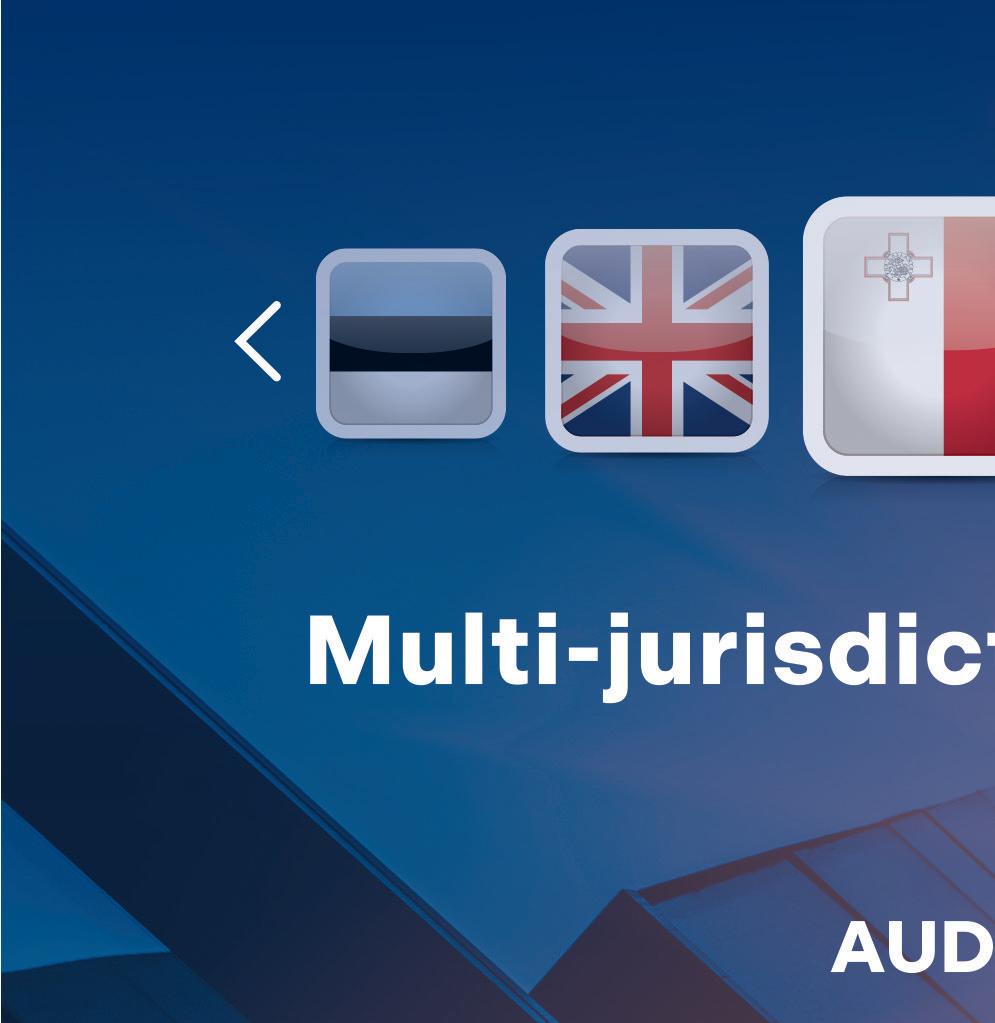




























Paul Sculpher, Director of GRS Recruitment and regular Gambling Insider contributor, and Melanie Ellis of Northridge Law LLP, discuss the prevalence, legality and fairness of account limitations within the modern UK gambling market
THE CASINO VIEW PAUL SCULPHER
These days, there’s a lot of talk about bettors having their accounts limited as to how much they can stake because, in theory, they’re winning too much. The truth is a little more complex, and different people would tell you different things from different sides. Some will say it’s an outrage, an infringement of rights – others will say it’s a necessary evil to keep sportsbooks running. There’s a subset who’ll even talk about the laughably neverexistent days of honest Queensbury rules of combat between gentleman bookmakers and gentleman punters to see who came out on top.
Firstly, what’s actually happening in the UK? Well, for one, it’s clear that it’s not just winning that gets accounts limited, but also what you actually bet on. The best example I’ve heard was a proposed stake, on a brand-new account with – well, an alliteratively named major operator – of £20 ($24.88) on a 150/1 shot. The odds were trimmed to 66/1 pre-accepting the bet,
with a max stake of £4, and that was the last bet the punter was able to get on that account. Oh, and the bet lost.
That’s an extreme example, but you don’t have to show too much knowledge to get chopped. Even I, with betting prowess essentially limited to player props on the New England Patriots NFL team, plus tips from friends, have lost the ability to use my accounts with a number of the main operators.
There’s even a solid market for losers’ accounts to be used second hand, with years of losses likely to mask a change of “owner” and give some runway for profitable betting. However, there are also legal issues at play here. A notable case in Northern Ireland, for example, was one where a student placed £25,000 of bets and bet365 refused to pay out. The operator suspected (or, if you prefer, it was blatantly obvious) that someone else staked the bet, perhaps to get around staking limits on their own account. They refused to pay and the court case from the punter was discontinued. The bookies
won. But what’s fair, and what’s ethical?
Many of the challenges in this debate stem from the explosion of side markets for sports betting. In a world where online bookies offer 200+ bets per NFL game, it’s an old adage that the bookie has to get them all correctly priced, while the sharp punter only needs to spot one wrong price and stake accordingly. That’s certainly true. However, with that in mind, if stakes were unlimited, that would be the end of a lot of operators. Or, at least, a massive contraction in either odds or markets offered. Neither of those outcomes is good for the industry.
Personally, I view the betting market as the same as a market for any other goods or services. What are you buying? Well, essentially, you’re buying the right to win £1 on a sporting event, and the odds just determine the price of that £1 of winnings. A company like Tesco wouldn’t be duty bound to accept an offer for a banana that cost less than they could source that banana for. Therefore, I don’t think it’s









outrageous that bookies should be able to choose their customers. At least, as Alun Bowden of EKG Gaming points out, brands are getting, and will continue to get, more precise on their limiting as tech improves.

This issue has been brought into focus in Great Britain by the Gambling Commission’s CEO, Andrew Rhodes. In a recent briefing

to gambling industry CEOs, he stated that the regulator would shortly be “asking for data on account restrictions and the reasons.” The rationale for this request was a desire to understand “what the actual reality is for accounts being factored, restricted, closed, or put onto zero stakes.”
To avoid panic and assumptions that this data-gathering exercise will form the backdrop to the regulator assessing options for restricting bookmakers’ ability to limit sports bettors, Rhodes was careful to point out that this was not the intention. He indicated that such requirements would need to be introduced through legislation, outside of the Gambling Commission’s powers to impose licence conditions. It should be noted, though, that the Commission has a statutory role to advise the Government on gambling regulation and could recommend areas for legislative intervention. At the moment, the regulator’s concern appears to centre on transparency and ensuring that customers understand what has happened and why. Still, by now we all know to be wary of roads paved with good intentions.
The concept of a ‘right to bet’ or ‘minimum bet law’ is not new. Notably, rules have been introduced in many Australian states. However, rather than being mandated by national legislation, these limits form part of the licence granted to bookmakers by racing authorities. Licence conditions prevent the operator from refusing a bet or taking other action, such as closing the customer’s account, as long as the potential winnings are under a specified amount for that type of race. So far, these limits have only been applied to certain horse and greyhound races, rather than more widely to sports betting.
The Massachusetts Gaming Commission has also opened discussions with operators on this topic. Although the majority declined in attend an initial meeting, a seemingly more productive discussion took place in September. As appears to be the case with the British Gambling Commission, consumer protection was also central to the Massachusetts regulator’s interest. For this regulator, as with the Gambling Commission, collecting operator data on bet limits is the next step.
As Paul points out, the idea of forcing a company to accept someone’s business seems to counter well-established principles of contract law in the UK. By advertising goods at a certain price, a shop is not bound to sell them to anyone who agrees to buy at that price – the shop is merely making an ‘invitation to treat.’ The reasons behind this concept are sound: in the seminal case dating from 1953, Boots displayed certain
products on its shelves that contained regulated poisons, making it necessary for a pharmacist to approve the sale. A sale was not deemed completed until the customer’s offer to buy the goods had been accepted by the pharmacist, who had to be entitled to refuse the sale if the customer did not pass scrutiny.
Likewise, it would not be appropriate for a bookmaker to be deemed to be making a legally binding offer, simply by publishing odds for sporting events. Otherwise, any person walking into a betting shop could accept the offer and form a binding contract, before appropriate age, identity, safer gambling and money laundering checks had been carried out. However, this does not rule out the possibility of mandating acceptance of certain bets in circumstances where the customer has passed this scrutiny, as is the case in the various Australian states.
In addition to concerns relating to consumer protection and transparency, another relevant factor for gambling regulators to consider is that many bettors who have been limited by licensed operators will turn to the black market. Not only does this reduce tax revenues for the Government, it places those customers at risk of losing their deposits or not having winnings paid out. In upcoming conversations with the Gambling Commission, it will be important for operators to demonstrate that customer accounts being limited is the exception rather than the rule, that limits are not being applied arbitrarily, and that they are being transparent with customers about the reasons for these measures.



Former Entain CEO Gavin Isaacs took to the stage as ICE Barcelona 2025’s first keynote speaker on Monday 20 February, where he discussed ‘turbocharging’ businesses and his philosophy for success. We now look back on this as the last public speech of his short Entain tenure...
Introduced by the day’s host on Monday 20 January as a “seasoned leader” with “experience built through previous roles at Games Global, DraftKings, Scientific Games and Bally Technologies” among others, Gavin Isaacs, then CEO of Entain, took to the stage as the first keynote speaker of ICE Barcelona 2025.
Giving us an introduction into his experience, Isaacs launched into a segment regarding Entain, a company in the FTSE 100; or, at least was in the FTSE 100 last time he checked, making a rather tongue-incheek reference to that morning’s Financial Reporting Council (FRC) investigation launched into Entain’s 2022 account audit by KPMG.
Entain was the latest business Isaacs was brought in to following a challenging time in operations – for the industry giant, this has included a fine of £585m ($737.2m) following bribery investigations in November 2023, M&A criticism from shareholders and the exit of former CEO Jette Nygaard-Andersen in December 2023. But what did Isaacs intend to do with Entain? This is where his concept of ‘turbocharging’ the business was supposed to come in, based on his past experiences managing organisations.
“I’m going to come back to what we’re going to do with Entain, because the topic was turbocharging change. So how do you
do that?” he said. “I’ve had the pleasure of working with some great teams. One of the biggest things in common with those teams and companies is that they’ve lost their way. A lot of it had to do with tech. When you don’t invest in your tech and you don’t invest for the right reasons in your tech, you end up losing your way and other people overpass you or you make mistakes. Often, it’s because you try and do the right things for too many people; you don’t focus.”
As CEO, Isaacs believed in starting from the beginning, looking for a clear vision and mission for the business and making it something where everyone can understand








what is trying to be done. He spoke of his strategic pillars, those being customer, product, operational efficiency and innovation. He also spoke of his 10 guiding principles, which were:
1. Always focus on your customer
2. If you say you are going to do something, do it – keep your commitments
3. Always look for better ways to do things
– continuously improve



• Empower your people to make decisions and take accountability
• Breakdown silos and build internal networks
• Laser-focus on tech execution
• Continuous improvement
• Be driven by data


4. We are ONE TEAM – respect each other – discuss different views but unite behind the decision
5. Meetings – participate, have an agenda, start on time and kill the useless meetings
6. Be passionate about what you do –if you are passionate, you will do well
7. Never, never, never lie

8. Set clear goals for yourself and your team, and be accountable

9. Money – be responsible and spend the company’s money as if it was your own 10. Have FUN!
Isaacs walked audience members through his career and examples of previous businesses he has ‘turbo-charged,’ including Aristocrat, which he took from a share price of sub-$2 to $20+, to Bally and Shuffle Master. He also made a particularly poignant comment regarding M&A activity, stating “there’s no such thing as a merger.” If a business pays for a company, it’s their company – and if staff cannot adapt to being a part of a new team, they can choose to leave.
Rounding out the talk were Isaacs’ keys for transformation, focusing on the pillars mentioned earlier. In talent and culture, his keys to transformation were:
• Align the team around unified objectives
• Share in each other’s success
• Set specific goals and measure performance
• Provide teams with the tools they need
• Sweat the small stuff
• Deliver brilliant basics
• Continuously develop and improve your product offer and experience
• Put the customer experience at the heart of all decisions
• Everyone has a customer-focus on delivering for them
• Challenge the status quo
• Provide teams with the tools they need
• Protect the customer at all costs
The panel wrapped with opportunities for audience members to present Isaacs with questions. Gambling Insider Editor Tim Poole was quick to take the mic, asking: “The majority of your experience is B2B. How have you found this – it’s the same industry, but a relatively new world, B2C,” to which Isaacs responded:



• Make every brand experience a positive one
“First of all, loving it. I miss having my direct customers; it’s a great fun part of the B2B role, the fact you have your customers that you interact with and build relationships with. You can see the benefits of what you do in their businesses. But I’m finding that fundamentally the business is a business, and that the same principles apply. They are tech businesses and, in the instances of what we’ve got now, we’ve got some tech issues on some of our platforms. So, from my role, it’s about building teams, giving them guidance, setting goals and





































- Former Entain CEO Gavin Isaacs






“ When you don’t invest in your tech and you don’t invest for the right reasons, you end up losing your way ”

















letting them get on with it. So, in that respect it’s the same, but put it this way; G2E was my first trade show ever that I went to and wasn’t selling something. This is my first ICE show [I’m not selling something] – and I think the first ICE I went to was 1999 at Earl’s Court... There are lots of similarities, but I’m learning a lot more again.”
It is a particular shame for anyone taking inspiration from this panel that Isaacs has since resigned from his role as CEO, on 11 February, “with immediate effect.” However, upon reflection, the panel provided simple and efficient tools that many industry professionals could take on in their career; a 101 to management success, as it were. Taking on these principles, crafted through decades of hands-on experience with some of the industry’s largest players, will certainly not negatively impact one’s career path.


Moderated
Chief Compliance Officer
Chief
Compliance Officer at BetMGM, came together with other panellists for a fireside chat on data protection, usage and more
With the perpetual growth of online gaming, especially in markets like the US, data and data protection are becoming all the more crucial for operators. In a fireside chat on day one of ICE Barcelona 2025, Rush Street Interactive (RSI) Chief Compliance Officer Laura McAllister Cox moderated a panel with Jason Clairmont, Principal Evangelist, Betting & Gaming at Amazon Web Services (AWS), David Rebuck, former Director at the New Jersey Division of Gaming Enforcement (NJDGE), and Rhea Loney, Chief Compliance Officer at BetMGM, to discuss just that. Speakers began by introducing themselves and what they do. Cox is notable for having “been in this industry since 1980,” stating “I’ve been in this industry so long there was no internet and here I am, Chief Compliance Officer of a gaming technology company. It’s been a fun ride.” Loney, meanwhile, has been involved in gaming her whole life, having been involved in horseracing since she “was knee-high.”
Cox continued, contemplating what kept her up at night. Her answer: Data. “In the online world, we have a tremendous amount of it,” she said. “Now we’re required to do a lot with it.” She then asked Loney: “In what ways are you seeing advancements in usage of technology in your operations?”
Data use goes above and beyond regulatory requirements at BetMGM, according to Loney, “particularly in the area of RG.” A lot

“Consumers don’t understand when they go to regulated legal sportsbooks that those are the regulated ones”
- BetMGM Chief Compliance Officer Rhea Loney

of operators have prevention models that utilise data, though BetMGM has introduced a system designed specifically to give players access to assessments and counselors, alongside other safer gambling measures. “We’re probably only scratching the surface of what is going to be available and ultimately what’s going to be used in our industry,” she concluded.
Indeed, in today’s market, every aspect of an operator’s business “comes back to data,” according to Cox. This is not just how it is used, but how it is protected. She asked Clairmont: “What might we be seeing next?”
According to him, AWS brings “the ability to participate in the current data economy you all experience in your personal lives.” That experience, especially in the US, has been limited, so what AWS has done is create an infrastructure that is unique compared to what we traditionally think of as the Cloud.” The system, described as a “purpose-built infrastructure in jurisdictions that require it,” extends Amazon’s Cloud services to locations that may previously have not employed it, like rural Tribal casinos. However, Clairmont also noted that, with big operators like RSI and BetMGM, there are large amounts of data in play. “They’re going to put their data in a cloud environment which, using the technology, the smarts that big tech has developed, we can process that data so cheaply and effectively that you’re able to leverage the data in the way that you want to,” something previously unviable due a lack of cost-effectiveness. “From a big tech perspective, it’s a new muscle for us to flex, to be working with industry,” Clairmont continued. “We talk internally that we’re surprised at how regulated this space is. We say for a fact, and educate our internal stakeholders, that this is more regulated than healthcare, more regulated than government.” Of course, this is for good reason, though it has seemingly required some adjustment from big tech.
Indeed, the gaming industry’s relationship with data has changed drastically, especially in the last decade. Cox explained that, when the New Jersey model led the way in the US in 2013, the concept was hard servers for data at the casinos in Atlantic City. There were limited locations housing the hardware. But,
as she learned, hardware becomes obsolete and data becomes uncontrollable. Risks come from physical data and Cloud hosting provides a solution. From here, Rebuck took the reins.
“10 years is light years in the technology field,” he said. When you’re just starting, you make decisions from assurances that it wouldn’t lead to fraud or unknown problems. At the time, it was just impossible to know. But “the one thing you have to do as a government, when you’re dealing with technology, is trust the B2B companies that are working for you, because you really don’t have the institutional skills and staffing to do the things you need to at a very high level.” Still, even then, the amount of data being worked with was “unbelievable,” according to Rebuck. Being so early to the online gambling market, players could not be anonymous under NJ regulation. The data is kept on player accounts for 10 years, including deposits, outcomes, etc. That’s a lot of data.
As such, the panel went on to discuss AI vs data in the gaming industry, with one key point being that, with so much data already available, just how useful really is AI?
Towards the end of the panel, Cox swung her earlier thought of “what keeps me up at night” to Loney. To her, the issue is expansive, covering not only big tech and the illegal market, but marketing and press too. “Consumers don’t understand when they go to regulated legal sportsbooks that those are the regulated ones versus the ones that are illegal. There’s not enough of a differentiator to say this is your legal lane and this is your illegal lane. I think that’s a real challenge.”
RG across jurisdictions was also noted as a pain point, particularly in the US. Every state has different requirements and while a one-size-fitsall model is not the answer, in Loney’s opinion, a system that can be adjusted to broadly fit local requirements would be ideal. Moreover, states list all those on self-exclusion registers differently, making it challenging to enforce across state lines. “I want it to be easier for the list to be consumed and put back out in all the different jurisdictions,” she said.
Following the panel, we spoke with Loney to gain more insights on her answers in an ICE-exclusive edition of The Huddle. This can be found on the Gambling Insider website.

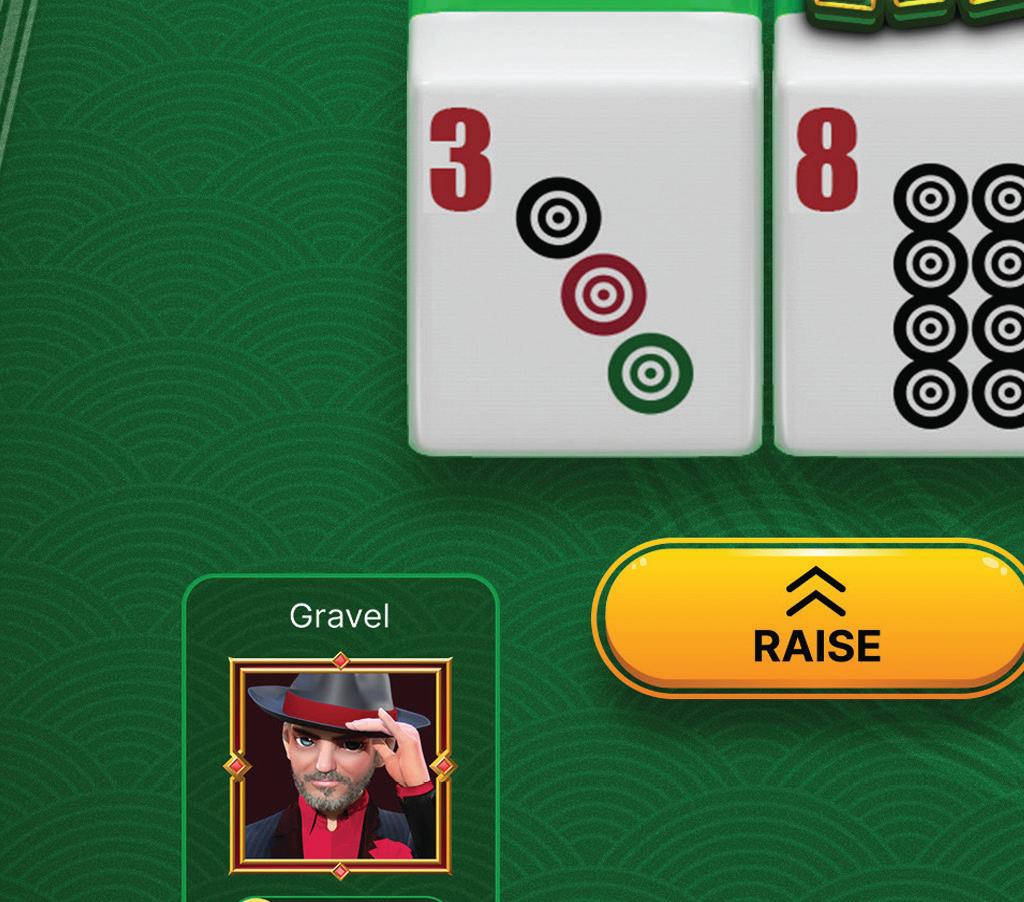






















According to Yield Sec Founder and CEO Ismail Vali, there is no such thing as a black or white online gaming market. Instead, he opts to use an analogy of an iceberg – in his ICE presentation, Vali wrote: ‘There is only one marketplace: the total marketplace. Only Yield Sec knows the total marketplace.’ According to Vali, there are just two segments of that total marketplace; one legal, one illegal. “I get death threats every month,” said Vali, because he points out that operators aren’t grey market and aren’t licensed. In Vali’s eyes, such businesses are thieves: “You do not have the licence to take money from that jurisdiction,” he stated.






Breaking down recent trends in the ‘illegal’ market, he noted how streaming is beginning to eclipse affiliates as a preferred method of getting eyes on illegal gambling sites. According to his statistics, there were 20 million illegal streams of the Jake Paul vs Mike Tyson professional boxing match in November 2024. For those streaming

















illegally, there were an average of 16 ads that viewers needed to close throughout the broadcast – all of them from illegal operators. “What we thought was just an affiliate problem is an industry problem,” he added.

Ismail Vali , Founder and CEO of Yield Sec, pulled no punches on the ICE Barcelona 2025 stage, providing statistics on the illegal gaming market
cross-selling of certain verticals, while illegal operators face no such issue. Finally, a wholly legal and licensed market is a market of bricks.



Further Yield Sec statistics continue to paint a picture of the size and scale of the illegal market’s operations. In 2023, $5.1trn was wagered in illegal online gambling, rising to $5.7trn in 2024 due to growth from the Euros, Olympics and the predictors market, with illegal sports betting, horseracing, casinos, poker and crypto casinos noted as just some of the markets where such illegal play proliferates. Indeed, 73% of gambling is illegal, according to Vali – but why? Simply put: It looks too good to be true, and how can customers tell the difference?







Illegal gambling can advertise without restraints, because they lie, said Vali. After one month, when account monitoring ends, they can begin pushing illegal products. Moreover, as these operators do not pay for regulatory oversight in the form of taxes, they can give ‘better’ deals to players. Plus, by being online, these sites can operate anywhere, providing a global opportunity to generate revenue.







Vali went on to use the analogy of the three little pigs and their homes as metaphors for the different regulatory set-ups and their vulnerability to illegal operations. A nation with no legal market builds its market of straw, with illegal operators able to access players with ease. When some aspects of the market are legal and licensed, but not all, you have a market of sticks. “You’ve taken the legal industry and made it the whipping boy for the illegal sector,” Vali said, noting how such markets punish legal operators by limiting

Vali went on to use a further analogy of a Jenga Tower to describe regulation. He explained that, while regulation is required and necessary, regulation works best in a contained marketplace where crime has been actively identified and removed. Meaning, if you take away legal options, your legal market will collapse.
Towards the end of his panel, Vali made it clear that, to tackle the illegal market, all businesses within the gaming industry must play their part. There is a chain of enforcement escalation that can be implemented to call out illegal players. Failing to deal with illegal gambling because the illegal operator is ‘offshore’ misses the point: “There is no magic bullet to defeat crime,” Vali said. “It’s your marketplace – and you are being stolen from,” he concluded. A big statement to conclude – and one that will likely ruffle a few feathers.






























- Yield Sec Founder and CEO Ismail Vali “ There is no magic bullet to defeat crime. It’s your marketplace – and you are being stolen from ”



















































Vicente Fox, the 62nd President of Mexico, addressed the attentive crowd at ICE Barcelona 2025 to discuss both Mexico and the wider LatAm region within the context of the gaming industry.
“THE SHORTCUT TO HAPPINESS IS DOING THINGS FOR OTHERS, DOING THINGS FOR THE WORLD”



Mexico’s 62nd President Vicente Fox Quesada touched down at ICE Barcelona to highlight the status quo within the Mexican political landscape – and how it could a ect gambling




When Vincente Fox stepped into office at the turn of the millennia, interest rates in Mexico were at 180% and inflation at 100%. These are statistics Fox listed at the beginning of his ICE address as he reflected on the challenge of taking on the 62nd Presidency of Mexico, which broke the one-party dictatorial rule of over 70 years.
During his six-year term, Fox’s primary imperative was poverty – an area in which he experienced success, as he brought 35% of Mexican households out of poverty as President. However, he also endeavoured to update Mexico’s gambling laws for the first time since 1947 – making Mexico one of the first nations worldwide to introduce a legislation that included online gambling measures. Prior to his Presidency, Fox was also President & CEO of Coca-Cola Mexico – so, it would be fair to say he knows a thing or two about business, as well as politics. It is no surprise, then, that his Presidency was business-friendly – and one that was friendly to the gambling business, in particular. Indeed, many of Mexico’s current gaming licences were granted during Fox’s tenure, with then head of the SEGOB Santiago Creel granting a staggering 763 gaming parlour licences all over the country prior to leaving office in 2005.
The action of Fox’s Government to mobilise the gambling industry in Mexico made it one of the first regulated nations in the Latin American landscape. However, despite the head start, the landscape remains –in places – spotty and uncoordinated due to a number of internal and external factors.


For one, the lack of a centralised regulator

– independent of the government – has created mass confusion within the market. As it stands, federal regulation is done inhouse by the Government, which has proved problematic, to say the least. The approval of a slot ban, which was eventually called off after being deemed unconstitutional in court, is perhaps the best example to highlight the state of affairs within Mexico’s regulation. And yet, the market still continues to thrive.
In fact, prior to Brazil’s regulation, it was the largest regulated LatAm market by a mile. Fox highlights a number of areas in which he anticipates gaming growth in the region, citing that he believes the growing middle-class population will attribute to a huge boom in pleasure industries such as gambling. Further, he underscores that Mexico is currently on a 1:1 trading basis with the US & Canada – further shining light on plans to open more gambling arenas, space for additional licences and the potential for utilising Mexican football stadiums as conference venues.




































“Nine crimes per 100,000 tripled to 35 per 100,000 as soon as the army was brought in to tackle the cartels back in 2006”








- Vicente Fox, 62nd President of Mexico




















However, the issue of an increasing cartel presence in the nation, alongside tensions arising from the recent inauguration of Donald Trump, have the potential to hinder economic growth. Fox touches on the issue of cartels utilising casinos to launder money – highlighting that nine crimes per 100,000 tripled to 35 per 100,000 as soon as the army was brought in to tackle the cartels back in 2006. Now, the land-based gaming industry in Mexico is struggling to further progress because of the cartel’s presence triggering stricter restrictions to try and hinder money-laundering operations.

Donald Trump, have the potential to hinder economic growth. Fox touches on the issue















first female President. Within the context of the gaming industry, it is difficult to tell how much of an impact these external factors will have – however, one thing is for sure, in the case of Mexico’s market, the potential is clear, and the growth is evident.




– highlighting that nine crimes per 100,000 army was brought in to tackle the cartels back in 2006. Now, the land-based gaming industry in Mexico is struggling to further progress because of the cartel’s presence hinder money-laundering operations. moving through a period of change, an increasingly aggressive new Mexican leader in Claudia Sheinbaum


















Indeed, the nation is currently moving through a period of change, with its US neighbour adopting an increasingly aggressive stance and the dawn of new Mexican leader in Claudia Sheinbaum Pardo – the nation’s




























Gustaf Hoffstedt, regular Gambling Insider contributor and Secretary General at the Swedish Trade Association for Online Gambling (BOS), highlights the relationship between regulators and licensed suppliers when combatting unlicensed operators

“One more such victory, and we are undone,” King Pyrrhus is said to have remarked after a costly battle against the Romans in 279 BC. It’s a lesson Sweden’s Gambling Authority, Spelinspektionen, might want to consider should it emerge victorious from the legal battle currently unfolding in Swedish courts.
In the defendant’s seat sits a game provider, while the Gambling Authority leads the charge. The accusation? The provider allegedly supplied its software to an unlicensed operator while holding a Swedish B2B licence. It’s a serious charge – ensuring that Swedish consumers participate only in the regulated market is crucial for consumer protection and fair competition. When unlicensed operators gain access to regulated content, it undermines these principles.
One might assume that the entire licensed industry would welcome the Gambling Authority’s crackdown on such violations. After all, unlicensed operators pose a clear threat to industry integrity. However, regulatory enforcement is not always a rational process, and the opportunity to veer off course is seldom missed.
Regulators operate with limited resources and must prioritise enforcement efforts. Yet
the Gambling Authority has chosen to target not providers that actively supply blacklisted operators with playable content, but those whose games are merely visible on such platforms – despite being geo-blocked and therefore unplayable in Sweden.
This enforcement strategy is convenient. It’s far easier to go after licensed providers – serious businesses that respond to emails, answer calls and appear in court – than to chase unlicensed operators hiding in jurisdictions beyond Swedish regulatory reach. Success is more likely when the target is a law-abiding company rather than a rogue entity that actively evades the rules.
But just as Pyrrhus questioned his victory 2,300 years ago, we must ask: What will actually be achieved if the Gambling Authority wins in court?
As a representative of a trade association for licensed operators, I am all too familiar with Sweden’s low market channelisation rate and the unfair competition from unlicensed gambling operators. We have everything to gain from strong enforcement against illegal gambling. But a crackdown on non-playable, geoblocked games? What tangible impact will that have?
We already have a glimpse of the consequences, even before the court has issued its ruling. Two providers were fined for this
alleged violation. One chose to challenge the decision in court. The other? It accepted the fine – and immediately withdrew from the Swedish market, surrendering its B2B licence. As a result, its games are no longer available on Sweden’s regulated platforms, reducing the content offering for licensed operators and players alike.
If more providers face similar penalties –simply because their geo-blocked games appear on unauthorised sites –what will the long-term impact be? Will major suppliers be willing to accept the financial and reputational risk, particularly when such enforcement actions could jeopardise their standing in larger, more commercially significant markets?
The outcome could well be a mass exodus of key suppliers from the regulated market. As major game developers exit, the licensed market will shrink, offering fewer choices for operators and players alike. And players who can no longer find their favourite games on licensed sites won’t simply stop playing –they’ll look elsewhere, driving even more traffic to the very unlicensed sites the Gambling Authority is meant to be combatting.
B2B licensing can be a powerful tool in the fight against unlicensed gambling –if used correctly. But that requires more than just a punitive approach. A B2B licence represents a formal agreement between the regulator and the game provider. It establishes a relationship. And relationships should be built on communication, not just enforcement.
The Gambling Authority should leverage this connection to engage with licensed providers, drawing on their knowledge and good will to strengthen the regulated market. Instead of fixating on technical violations that do not impact consumer protection, the regulator should work collaboratively with the industry to drive unlicensed operators out of Sweden.
A wise regulator would rely less on punitive measures against licensees and more on fostering cooperation. In doing so, it could take inspiration not from Pyrrhus’ costly victories but from the words of the Roman playwright Plautus:
“No man is wise enough by himself.”
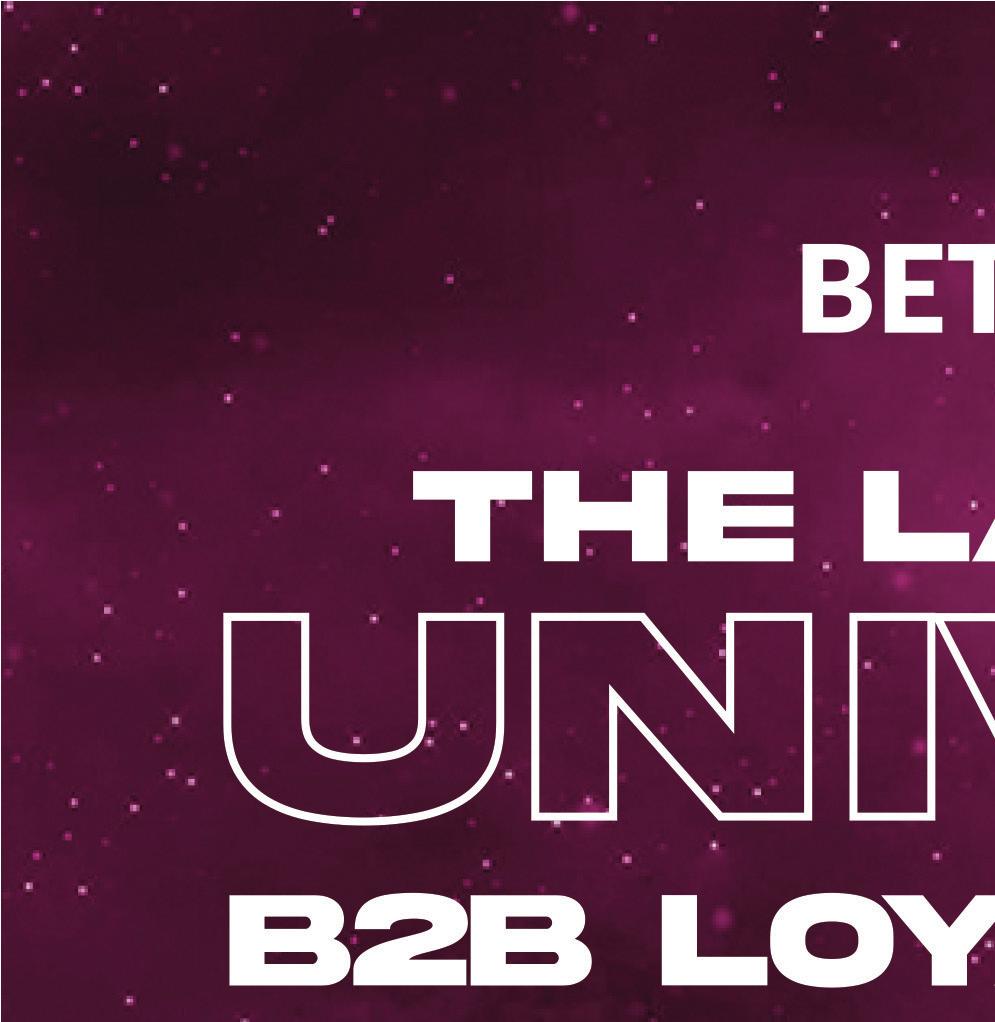


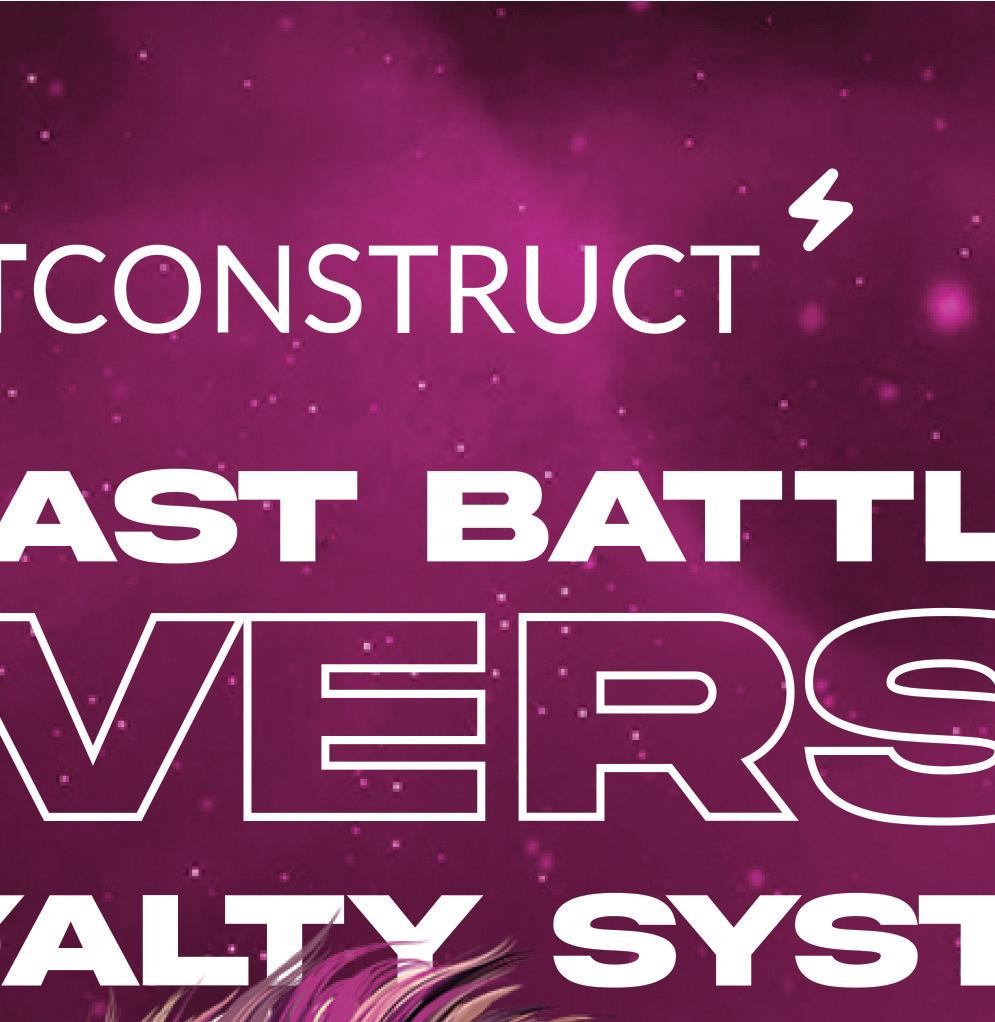





With contributions from Fennica Gaming and Aristocrat Interactive, Gambling Insider
Staff Writer Ciarán McLoughlin delves into the rise in popularity of eInstant games
Each year that goes by, the gaming industry and society in general moves further towards more digitalised experiences, while the appeal for convenience increases alongside it as well. As a result, operators and suppliers alike must do whatever it takes to cater for these demands with new experiences and innovations.
This is where eInstant games come in...
Now, the concept of instant games in the gambling industry isn’t a new idea. Scratchcards are, of course, the original concept for instant games and have been around for over 50 years, with Scientific Games playing a huge role in the vertical’s past and present. It was in 1974 when the supplier launched one of the first secure retail instant game in the world alongside the Massachusetts Lottery, and 40 years later Scientific Games followed this up by introducing one of the first digital instant games in the US in 2014.
Of course, instant games don’t always take on the form of gambling, and have come in many different varieties, appealing to a wide range of people, highlighting the general shift towards games that offer instant gratification. For example, Facebook, via its instant messaging service, Messenger, launched ‘Instant Games’ in 2016 which allowed users to challenge their friends to various types of games, such as Pac-Man and Space Invaders.
But with regards to gambling, instant games have taken many different forms since they went online and are not only represented by the classic scratch-offs that paved the way as far back as 1974. Nowadays, games take on a variety of different formats including incorporating gameplay that is similar to that of mobile games, and even licensed products linked to concepts such as films, TV shows, etc.
Highlighting the general popularity of eInstants, IGT released a feature piece called ‘eInstants 2024 Wrap Up,’ which described some of the supplier’s accomplishments within the space during the year. According to the release, the total number of games in its portfolio was 184, three of which were omnichannel games. In terms of the popularity of the eInstants segment to the company, sales were up 31%,
while transactions rose by 65%, and the average unique daily players grew by 21% during the course of last year.
Likewise, another category of game, similar to traditional scratch-offs, is fast play games. This type of game is near enough the same concept but without the need for scratching, with players being able to see if they have won immediately after it has been printed by the retailer and given to them. These too, in some US states, can be bought online and played in a digital format. According to a release from Scientific Games, in the 2024 fiscal year, fast play games were worth over $1.5bn in sales in the US, with each of the supplier’s fast play lottery customer states achieving year-on-year sales increases.
Instant Win Gaming (IWG) has launched over 250 games, working with more than 25 national and state lotteries around the world, particularly in North America. The supplier is one of the key names in the eInstant game space and in early last year made a significant stride in cementing that status. It was in February 2024 when an agreement between themselves and the operator of the UK’s
National Lottery, Allwyn, was agreed, aimed at using IWG’s expertise to improve Allwyn’s overall gaming portfolio and to help explore new opportunities in the online instant win games sector. Allwyn also agreed to invest in IWG and from that secured a 70% stake in the business. This deal alone underlined how great the interest is within the instant game space, with such a big name within the lottery space taking this step to enhance its operations, while, as mentioned, adding to IWG’s already existing list of partners.
On top of its collaborations, IWG has made real strides in the eInstant game space, being at the forefront of a number of innovations. For example, the company was the first to launch a multi-state eInstant progressive jackpot in the
US, branded as Mega Money Jackpots, and just over a year later it launched the first multiprovincial eInstant progressive jackpot, branded as Turbo Jackpots, in nine Canadian provinces. Additionally, IWG as well as its differing game releases has launched a number of extra features for lotteries to utilise. Some of these include InstantBoost – a means to provide lotteries a set of in-game actions to unlock additional ways to play and win, and Power Hour Mode – which provides lotteries the ability to offer their players additional ways to win based on the time of day.
It’s clear to see eInstant games are a growing trend within the gaming industry and how the idea of instant games in general is making new ground as a vertical. Below, we get insights from Fennica Gaming and Aristocrat Interactive, as the providers delve deeper.
Fennica Gaming, which is a subsidiary of the Finnish National Lottery Veikkaus, has been creating eIstants since 2004, with the games holding a presence across three continents. Its portfolio of eInstant games is split into three categories, namely entertaining (gameplay similar to mobile games), express and classic (incorporating lottery mechanics).
It is clear that eInstant games are a key segment of business for Fennica Gaming, especially when you consider the locations in which its games have been launched, such as the US, across Europe and, particularly significant, in Brazil, where through a partnership with LottoCap it became the first company to launch casualgaming-like eInstants in the Brazilian market.
In speaking to Fennica Gaming’s SVP, Portfolio and Product Development, Kirsi Lagus, we get a clear idea of how these games are being made to complement the modern player, who is “seeking more engaging content and entertaining
online game options.” Lagus goes on to emphasise that players don’t want to wait around for game results, for example, and are more enthralled when they can play a game at their own convenience, i.e. “something you can do every day and many times a day instead of a typical draw game, for example, in the lotteries.”
Regarding lotteries, eInstants are a serious consideration for many of them, offering a different segment to their traditional offerings, with Lagus telling Gambling Insider that, “while jackpot games serve well for the players dreaming of life-changing wins, instant games offer much quicker and more immediate entertainment for the players,” and that “they can offer an entirely new kind of player experience with, for example, a background story that is attached to the game.” This highlights the need for adaptation by lotteries to provide players with extra options based on what modern preferences are more accustomed to, which includes entertainment, engagement and instant fulfilment; something eInstants, it would appear, do very well.
According to Lagus, it was in Finland where the eInstant category was invented, by Fennica Gaming’s parent company Veikkaus around 20 years ago, and so a lot of the history of the segment is situated there. However, it has stretched beyond Finland’s borders to many different areas of the globe, with North America being seen by Lagus as a key area for its adoption, as “there are many lotteries offering a diverse range of digital instants,” pointing to the likes of Michigan and Virginia. But she does also point further afield to areas such as Europe, ultimately explaining that “there are many markets where digitalisation is further, and they are experiencing growth in the eInstants.”
Looking to its own offerings, Fennica Gaming’s SVP, Portfolio and Product Development says “our eInstants are quite different from many of the others on the market,” going on to explain that: “Whether you win or lose, you receive something worth the money spent. Basically, when they play our eInstants, players are purchasing a gaming experience with the added possibility of winning money.” This again indicates what is needed for games in any form to be successful: giving the player something back when they play without it being just a one off. “Instead of simply pushing one button, the players actively participate in the game by making moves and selections to progress.” It is clear that eInstants are filling the gap that other segments aren’t, especially when it comes to pushing the industry forward and giving the modern player what they want.
NeoGames Studio, which is part of Aristocrat Interactive, is a studio situated within the eInstant industry, working with several lottery customers globally, alongside some big-name partners, and is said to deliver around 120
new eInstant titles every year. Aristocrat Interactive’s studio has been working within the digital games market since 2005, beginning in European markets and expanding into the US in 2014, where the NeoGames platform helped launch one of the first US iLottery programs with the Michigan Lottery; developing a range of games, which according to its website include “diverse innovations and industry-firsts.”
Chris Shaban, Managing Director, iLottery at Aristocrat Interactive, described 2024 as Aristocrat iLottery’s “best year ever,” delivering a record total of 180 games over the course of the year, detailing plans for the launch of Network Progressive Jackpot games in the US and Canada at some point in 2025.
Looking into eInstants themselves, Shaban underlined “player convenience, diversifying gaming options and a larger societal trend that is seeing our world go digital” as the main reasons behind the recent rise of the segment; pointing to the lottery industry doing more to accept the need for a digital experience. The relationship between eInstants and lotteries was detailed as a growing trend, with the convenience of 24/7 access on a mobile platform and “the importance and impact of reimagining the business around the omni-channel model and adding the digital component.” Shaban explains that, while “retail has been the backbone of the broader lottery business for decades and in some countries for centuries,” the digital world will ultimately have to be adopted as it continues to grow, with eInstants offering a “complement to retail.”
Shaban goes on to say, “By combining different components of traditional retail lottery games with modernised online gaming mechanics, eInstant games can attract existing lottery players looking for new experiences and a fresh, techsavvy demographic that is new to the industry.”
In turn, he also makes reference to the fact that the digital experience allows companies to gain insights into players, while retail remains largely anonymous. He tells Gambling Insider that this helps to understand their preferences and in turn means a more personalised experience can be offered. This not only keeps players entertained, but also “helps introduce lottery to a new demographic of players.”
Finally, Shaban illustrates that “eInstants are still in the very early stages of growth within the North American market,” but that most of those jurisdictions offering it are “experiencing strong incremental growth.” The Managing Director states that the supplier’s content has been gaining attention from lotteries in countries across the globe, conveying the growing interest in the eInstant segment. Ultimately, eInstants are paving the way for the modern player experience and can be a means to take traditional lottery into the future, while at the same time setting itself on its way to becoming a big-name vertical in gaming. Here in an instant; but here to stay.

The SPGA defends its corner against the AGA as part of an ongoing battle, following comments from the Association that cast a shadow over the sweepstakes industry
Despite being discussed to near-exhaustion over the past 12 months within gaming, the sweepstakes industry retains a youthful exuberance for contention. As time goes on – the potential of the sector feels increasingly akin to a dormant volcano that is well overdue an explosion.
Regardless of which side of the fence you fall, the potential of the sweepstakes market is one that simply cannot be ignored and – although still in its fledgling phase – the sector has continued to crash into the gaming industry all guns blazing in recent months.
Sweepstakes is, of course, polarising. Indeed, that polarisation is perhaps most clearly evidenced by the differing regulatory approaches that have been taken up across the US so far. Recent news in January that the Mississippi Senate motioned to outlaw sweepstakes as part of its SB 2510 bill was immediately followed by developments in New Jersey which indicate that the Garden State had gone the other way entirely – and could become the first regulated sweepstakes market. A few weeks later, Maryland released a bill that motioned to ban sweepstakes outright in the state.
Proponents on both sides, then, were there to witness the American Gaming Association (AGA) take a swing at the sweepstakes sector as part of its annual State of the Industry webinar in February. However, the Social Sweepstakes Gaming Alliance (SPGA) showed no fear in the face of the industry goliath and came swinging right back. Gambling Insider walks you through round by round...
Indeed, February saw not only the AGA report the US’ highest-ever annual commercial gaming revenue – but also take a jab at the sweepstakes sector, raising concerns around the impact of sweepstakes casinos and stating that they undermine the regulated market by contributing to illegal gambling activity.
Overall, it was estimated by the AGA that, during 2024, illegal and unregulated operators took $109bn in bets in 2024, costing the US $17.3bn in lost revenue. Following on from this, the AGA stated that some sweepstakes operators “exploit legal loopholes” to continue operations within state markets – labelling these businesses as part of the broader illegal landscape.
Factually, sweepstakes is not currently regulated anywhere in the US. That being said, some states do yield stricter laws and regulations around the practice, with other states being more relaxed. Regardless, as the sweepstakes sector continues to grow, so does the grey area within which it exists. This is an issue which has been, quite rightly, pointed out by the AGA in this instance.
In the face of an institution such as the AGA, the SPGA has shown no signs of intimidation, however, and has instead opted for the approach of going straight on the offensive. It – immediately –outright rejected the AGA’s claims and argued that social sweepstakes gaming is legally distinct from offshore gambling.
Further, the SPGA has clarified that most sweepstakes sites do, in fact, contribute some form of tax to the Government, as well as stating that “properly operated sweepstakes are legal in most states.”
Continuing, the Association stated: “SPGA members operate within well-established legal frameworks that contrast starkly with blackmarket offshore sportsbooks and casinos. The AGA knows that social sweepstakes sites don’t directly compete with traditional real-money online casinos, a fact supported by research from both Eilers & Krejcik Gaming and Macquarie.”
The SPGA is only a few months old but, despite being formed in December 2024, the body has clearly wasted no time in forming a strong identity and will to fight its industry’s corner. Closing out with a final blow that addressed the AGA’s assertion that sweepstakes sites operate irresponsibly, the group argues that its members use the same AML, age verification and general protection measures as AGA-regulated casinos, also pointing out that sweepstakes cannot be hindering the iGaming sector; as it has just experienced exponential growth in 2024.
It is true that there are no winners, nor losers, in this scuffle yet – simply two bodies advocating for their vision of the industry moving forward. The AGA has now clarified that it wishes to continue working with regulators to tackle unlicensed gambling, while the SPGA has again called for enhanced recognition of sweepstakes as a legitimate entity. Game on?





















Gambling Insider Sta Writer Ciarán McLoughlin speaks to Harris Hagan Partner John Hagan about the latest developments within UK gambling legislation, including the statutory levy, advertising and more
What is the current progress of the Gambling Act Review White Paper?
Well, I think the headline is that it’s slow, but there has been a substantial amount of work by all of the relevant stakeholders. The White Paper itself had more than 60 proposals to be introduced through primary and secondary legislation, via changing commission licence conditions and through voluntary industry commitments. But I think overall, two years on from publication of the White Paper in April 2023, it’s fair to say all of the main stakeholders would have expected more implementation by now and the main reason for the delay was the early calling of the General Election by Rishi Sunak. That seems such a long time ago now and, with the change of power, there’s been a period in which the new Labour Government has understandably wished to think things over and decide upon its policy in relation to gambling.
Could you provide some details regarding the Gambling Act Review evaluation plan that the Gambling Commission and DCMS are currently leading, and how it’s actually going to work?
DCMS announced in December that they’re going to be working with the Gambling Commission to deliver a programme of work to evaluate the impact of the policy measures implemented following the Gambling Act Review. Now the Government recognises, as do I, the difficulty of attributing observed changes to any one policy measure in this complex piece of work, because all of these policy measures all have different time frames, different implementation processes, and evaluating the
impact of individual and collective measures is going to be extremely difficult.
The National Centre for Social Research will be undertaking the evaluation. It will be looking at various policy measures and asking what the intended and unintended outcomes and impacts were, what was the contribution of DCMS and the Commission, how did the proposals contribute to reducing gambling harm, how and why did the proposals contribute to regulating the online and landbased industries more equitably? There’s a long list of questions, a long list of things they’re going to evaluate. They’re going to be helped in the process by a lived experience panel, which will work alongside the Gambling Commission’s lived experience advisory panel. There will be an evaluation advisory group, which is experts, researchers, evaluators, academics, to provide independent assurance for the key evaluations. I think that will get underway quite soon if it hasn’t already; you can expect the report in 2026.
And what I would say is it’s hard to disagree that it’s important to evaluate the impact of the policy measures implemented following the review, but it’s going to be incredibly complex. be clear and actionable findings that can be used to inform future gambling reform. I hope they get it right and get the implementation right the first time around.
How important will the statutory levy and online slot stake limits be in tackling gambling harm?
The statutory levy is going to be very important in tackling gambling harm. I mean, how can it not be? It will take effect from 6 April. It will raise £100m ($126m) every year for


the research, prevention and treatment of gambling-related harm. It will deliver certainty of funding to reduce gambling harm, which is critical to delivering results over a long period. We know that 50% is going to go towards NHS-led treatment, 30% to harm, prevention and 20% to research.
I ask: how can it not have an important effect? I think there are some caveats; it’s important that we see truly independent, expert and authoritative commissioning when it comes to distributing funds, that we see an effective and joined up master plan for the reduction of gambling harm, and that’s far from being fleshed out. We want to see the money spent wisely, with efficiency and not lost in bureaucracy; we don’t want to see money disappearing to elsewhere in the NHS when it’s intended for gambling-related harm. Importantly, I know the industry can be seen as a pariah by those involved in research and prevention, even treatment, but I’d also like to see a willingness on the part of those commissioning the work to engage with the industry, which has such a detailed understanding of the products that it provides and has so much data available to help researchers. I hope they engage with the industry with a view to delivering the best outcomes.
Staking limits: I hope they will reduce gambling harm, but I cannot help but feel they are a blunt instrument when it comes to preventing gambling harm and that it’s better to take a holistic view of individual customers, their personal circumstances and their spending. The limit on staking limits seems, to me, to be more of a political decision





to bring online staking limits in line with those in the land-based sector. But I don’t see how it can be a bad thing. I’m just concerned that it may not have the positive effects that are hoped for. Perhaps this is one of those areas where the Commission and Government’s evaluation will be helpful.
Gambling advertising regulation has been a big topic around the world, including recently in Ireland after the passing of the Gambling Regulation Bill. How do you think this could change in the UK, especially regarding sports sponsorship and the effect it may have on the horseracing industry?
Gambling advertising has increased substantially since the Gambling Act came into force. There’s no doubt about that. And it has led to concerns about the impact of advertising on children, young people and the vulnerable. I’ve no doubt that it does have a disproportionate impact upon those that are experiencing problems with their gambling. If you’re trying to give up gambling and you’re confronted by a lot of gambling ads on TV, it’s going to make your journey more challenging; many people also find the advertising annoying and intrusive. But it’s important to remember gambling advertising is highly regulated in the UK through the CAP and BCAP codes; the Commission has licensing conditions, there are voluntary industry codes, we’ve got the whistle-to-whistle ban, safer gambling messaging – and from the end of next season, football shirt sponsorship by gambling companies will be prohibited by the Premier League.
But the ability to advertise legal, highly regulated products, enjoyed responsibly by many millions of customers, goes hand in hand with that: a high level of regulation enabling licensed operators to distinguish themselves from the illegal market and mitigate the risk of consumers finding their way to unscrupulous operators where they will not enjoy the protections available in
the regulated market. Now, this is a debate that plays out in every jurisdiction, whether it’s Ireland or the US – legalising and regulating online gambling. The proliferation of the advertising heightens the visibility of gambling to those who may not otherwise frequent gambling premises or have any experience of it, but it doesn’t equate to a proliferation of gambling harm. We haven’t seen an escalation of gambling participation or problem gambling rates in the UK and the fact that gambling advertising may be ‘annoying’ to some is not a reason to prohibit it. So, any further restrictions on gambling advertising should be evidence-based. The White Paper did propose certain sensible gambling advertising reforms, for example, relating to bonuses and direct marketing. Now, all that said, the consensus of opponents of gambling is that the White Paper reforms relating to gambling advertising didn’t go far enough, and it may be that the Labour Government feels stronger measures are required. Some people would like to see gambling advertising banned altogether. Gambling advertising may get caught up in wider restrictions in other sectors, for example, relating to unhealthy foods; it’s all very difficult to predict. Personally, I would say that this area is already fundamentally well regulated and the Government has other priorities. In terms of horseracing, gambling and horseracing are inextricably interlinked and, as we saw from the Racing Post campaign relating to affordability, horseracing recognises that their fortunes are also inextricably intertwined. If the industry is restricted in its advertising, and if it’s restricted in its ability to sponsor sport, there is going to be less money flowing into the sport.
Do you believe we will see much change in terms of policy and regulation of the gambling industry under the Labour Government compared with the previous administration?
The White Paper was the product of many years of consultation and hard work by government. It was well received when it was published by all key stakeholders and had cross-party support. Everything I’ve heard since Labour came into power suggests they’re intent on implementing the White Paper reforms more or less as they are. Indeed, if it has any sense, it will. It has other priorities, things to be doing in government. I expect they will implement the reforms more or less as envisaged in the White Paper; but there may be some changes around the edges. They may want to do a little bit more on advertising.
The UK Budget announced in October showed no rise on gambling duties within betting and gaming. Can you see this changing in the future? There may not have been a rise on gambling
duties, but there was an increase in national insurance contributions. From those in the industry that I spoke to, this was every bit as serious as any rise in gambling duties. A rise in national insurance contributions hits gambling businesses as hard as businesses in other sectors.
We then got the statutory levy, which is a tax by another name, so any idea that the industry got off lightly in the Budget or in recent times from this Government is not true. That said, there is nothing more certain than tax. There will be rises in the future, but this is likely to be determined by macroeconomic factors. As we all know from bitter experience, gambling is always considered a soft target if the Government decides it needs more money.
Overall, what changes and developments do you envisage taking place over the next few months within UK gambling regulation?
I would envisage a major focus on the illegal market in the coming months, by both the regulator and industry, in a concerted effort to mitigate the risks posed to UK consumers relative to the licensing objectives. Those being prevention of crime, protection of the young and the vulnerable, and fairness to the consumer. I expect this topic to dominate the regulatory landscape, and the industry will be awaiting the outcome of the Gambling Commission review of supplier Evolution with great interest.
I think the introduction of the levy will be seismic, particularly in terms of research and prevention, given that free and effective treatment is already readily available. Thirdly, I very much hope the modest but critical modernisation measures for the land-based sector will be implemented and will give a much-needed fill up to a sector that has been experiencing challenging times in recent years, yet still makes a sizable contribution to the UK economy in terms of jobs, taxes and investment.

Technology leaders from The Hippodrome Casino, Playtech and more came together on 13 February 2025 in London for a session titled ‘Responsibility in gaming and gambling technology.’ They focused on balancing innovation and compliance...
Hosted by London Tech Leaders in February 2025, Aviation House, opposite Holborn Station in London, played host to an event titled ‘Responsibility in gaming and gambling technology.’ Part of the event included a panel, moderated by former Camelot CTO David Crawford, with its participants being: Florian Diederichsen, CTO at OpenBet; Kirsty Caldwell, Founder and CEO at Betsmart Consulting; Leon Sucharov, CTIO at Playtech; and Sam Douglas, Director of Safer Gambling at The Hippodrome Casino. Here are some of the highlights...
What actionable steps can leaders take to ensure their companies stay ahead of evolving regulations, but also societal expectations in gaming?
Caldwell: One that is really important and is often overlooked is engaging in the consultation process. So, when the regulator is looking to change regulation, they will go to the industry and ask for their thoughts. They ask quite specific questions and these can give a really good indication of what might be coming down the line. Compliance should be having the resources and time to be engaging those responses, but they should also be engaging the rest of the business, including management, to ensure everybody is implementing and trying to drive how that regulation might look going forward.
Similarly, engaging with trade bodies, working groups that form to build industry codes of conduct often preempt regulation or guide regulation. Similarly, the regulator uses pilots with various different operators. There’s a data-sharing pilot going on at the moment with six or seven medium-sized operators (GamProtect). Those operators have an advantage, to see what is potentially coming down the line.
Do regulators need to go and ask people questions?
Sucharov: I think, very often, regulators don’t know what is going to work or what the impact is going to be, especially from a quantifiable perspective. That is one way we can help. For example, Playtech runs in 30 or more regulated markets with different rules, different behaviour and we’ve got a lot of data about how players actually behave. We can provide quantitative feedback in general and in response to questions from regulators where they otherwise would have to try and figure out on their own what might be the best approach.
From our perspective, because we see more and more regulation in different places, and as technology providers, we don’t want to provide 30 different bits of technology. We provide one platform that can be configured to support regulation, which is very complex to do. But, it does mean we can deliver individual solutions quite easily. What it also means is that, when new regulation comes along, we find it important to follow the spirit of the regulation, not the letter, and look at it from the player’s perspective. The reason is, yes, it’s the ethical and good thing to do, but from a pragmatic business perspective, that regulation will probably change in six months or a year. It will probably become tighter, and if there’s a reason to change it for the players’ benefit, that change will probably happen. It’s much easier to engineer something right the first time than to return and change it years later.
We’ve heard about all of the challenges, some of the benefits, but in your experience, what tech is available? Are there systems available? Is this still early days? Douglas: These systems are evolving all the time. There are a lot of systems to identify. But we’re working in a land-based environment, so the best system
we have is face-to-face conversations. We can utilise tech systems to support us, to provide assurance to the board, the regulators, but that has to be supplemented by humans making the correct decisions. It’s all about the faceto-face judgments of people, to give us that information.
Caldwell: In my perspective, there are a multitude of systems available to help operators with management. A lot of the problem for operators is working out which is the best system for them. To do that, you need empowered compliance teams with the right amount of resources, quality teams and supporters at senior management level to make sure they are accessing the correct systems. Secondly, many operators invest a lot of money into our system and then don’t use the system to the best of its ability because they don’t have the supporting processes. They don’t have the configuration set up. There’s probably a lot of money invested into software which ends up as dead money for operators.
We’ve established that regulation is something that is maybe a necessarily evil or maybe a force of good, but it’s going to stay the same. We’re all going to look at how we deliver responsible games, but not stifle innovation. Leon, you have innovation in your job title.
Sucharov: It’s tough for individual licensing. Technology is expensive. The difference, particularly in this area with very sensitive data, is that it’s hard work. Looking in terms that you can understand, marks of harm and how to classify different user types, and then trying to understand what to do. Even if you’ve identified a person, what do you do about it? How do you engage with them?
With technical responsible gaming tools, you have to enable and configure them. We spend lots of time doing that and we spend time working with researchers and have a machine-learning model, we’ve got a product, and that’s quite innovative in and of itself... The other side I would say is innovation in policies.
When we’re designing a new casino feature or platform feature, from our perspective, it helps to bring in compliance. What we don’t want to do is spend a lot of time developing a product, put it out, only for somebody to think, is this a game or a game category that people are going to consider to be high-risk? We don’t want to put something out and then have knee-jerk regulation that is going to either require us to remove it or change it so

significantly that it’s a shadow of its former self. We bring the compliance team in early to try and make sure we don’t put games or content out there that’s going to be particularly difficult.
But that does sound like you’re accommodating it rather than fostering and living under it.
Sam, what’s your view on this? Is it foster or stifle innovation?
Douglas: If it’s stifling innovation, it’s potentially stifling innovation that shouldn’t happen. If there’s exploitative games or high-risk games, maybe they shouldn’t be in the industry. In many ways you can see that encouraged. We talk a lot about food, enjoyment and entertainment today. We’re all about the



experience, about coming in and enjoying yourself, and through that, that should help them play in a positive way.
We talk about positive play, about people monitoring their own behaviour. That can happen whether that is online or land-based. You can build in features in a game that help people monitor their play, that encourages people to take a break, encourages enjoyment in storytelling without them being exploitative and without them being high-risk.
I would always argue that we should encourage innovation. Innovation should be about working within the bounds of what is acceptable, the bounds of what is right, and to do that effectively with a group of people enjoying themselves.
























Industry experts provide Gambling Insider with their insights and predictions for the live casino market, including Playtech Live, SA Gaming, Imagine Live and Iconic21
KEVIN KILMINSTER Chief Product Innovation Officer
Playtech Live





With 17 years of experience in gaming, including over nine at Playtech, Kevin Kilminster has played a key role in advancing live casino innovations. As the Chief Product Innovation Officer at Playtech Live, he drives growth and innovation within the live casino segment. Leading the bespoke product division and overseeing the live casino roadmap, he collaborates closely with partners and stakeholders to deliver unique market products and groundbreaking gaming experiences.



EMILY ASAVA Business Development Manager SA Gaming
HAKOB MANUKYAN CEO
Imagine Live Armenia



With years of experience in the industry, Emily Asava has made great progress for the expansion of the African market with SA Gaming and SimplePlay. By raising brand awareness, Emily has helped SA Gaming gain popularity across Africa with more leading industry stakeholders integrating its games. Asava is also active in supporting women in the industry.

















Hakob Manukyan is the CEO of Imagine Live Armenia. He has over 12 years in senior leadership positions in financial services, banking, fintech and development of new products and services.









EDVARDAS SADOVSKIS CPO Iconic21
With over 10 years of experience in iGaming, Edvardas Sadovskis is a results-driven professional with a deep understanding of the industry. As Chief Product Officer (CPO) at Iconic21, he drives the strategic vision, development and management of the product portfolio while also leading the marketing team to enhance brand presence and growth. Collaborating closely with Sales, IT, Operations and Studio, he ensures products align with market demands and business goals. Committed to innovation and continuous improvement, Sadovskis thrives on delivering impactful results in the evolving iGaming landscape.







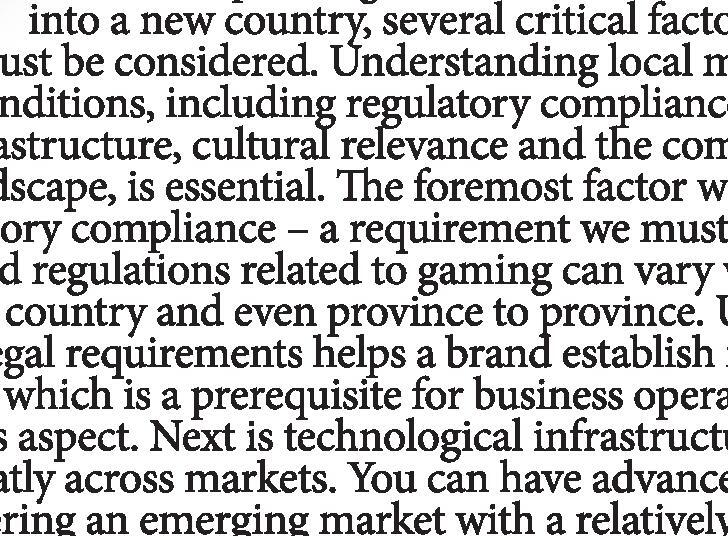












WHEN IT COMES TO TAKING A LIVE CASINO BRAND TO A NEW COUNTRY, WHAT ARE THE BIGGEST FACTORS TO CONSIDER






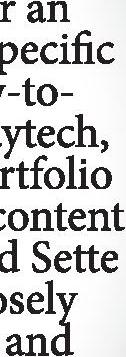














































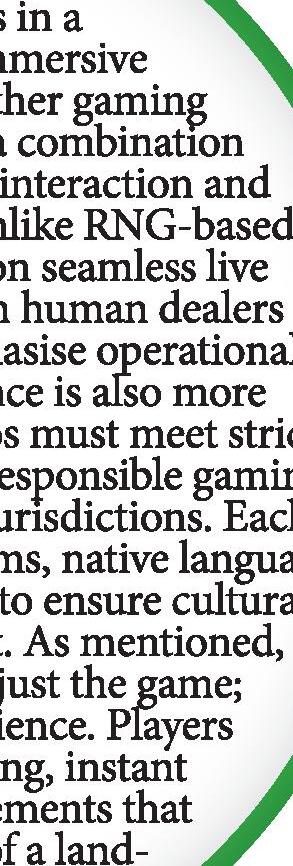














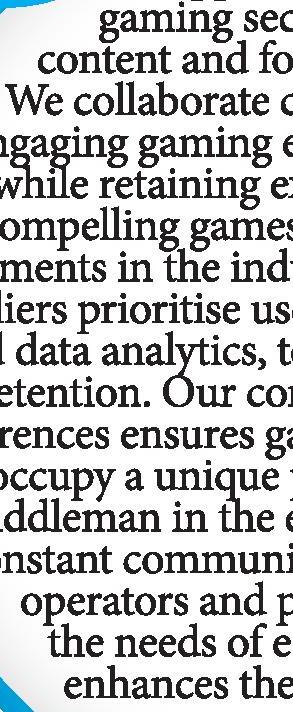






HOW DO LIVE CASINO SUPPLIERS NAVIGATE THE VERTICAL DIFFERENTLY TO OTHER GAMING SEGMENTS AND WHY








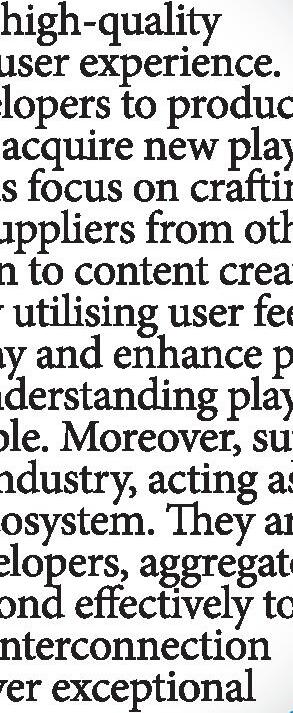

















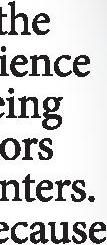














































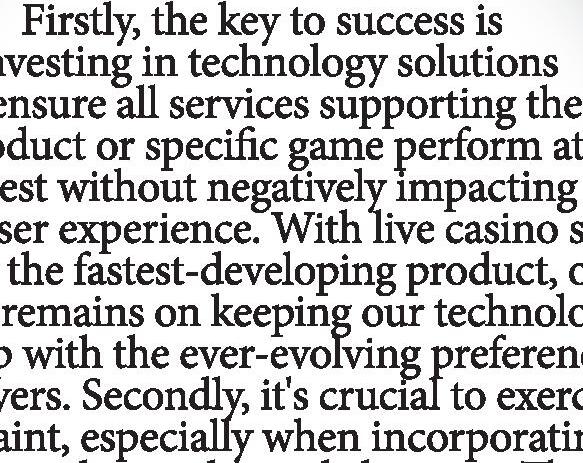



















HOW CAN LIVE CASINOS BALANCE KEEPING STREAMS LOW LATENCY WHILE ALSO INCORPORATING GREEN SCREENS AND VISUAL EFFECTS




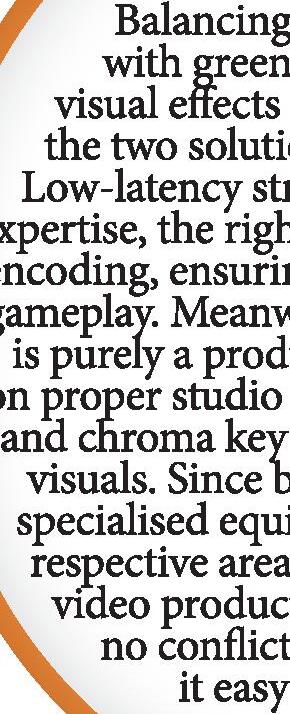













































In every issue, Gambling Insider commissions guest columns and interviews with people at the heart of the gaming industry – to discover more about the challenges its leaders, pioneers and innovators face. These contributors form The Insiders




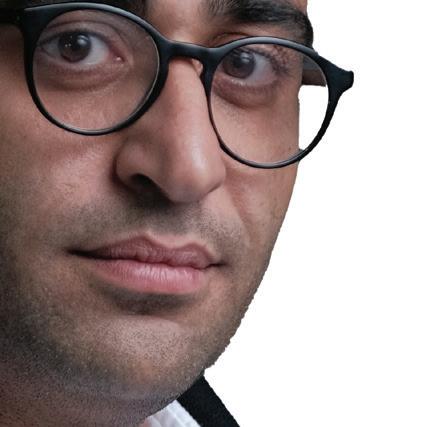


























































Lynon CMO Edgar Davtyan speaks with Gambling Insider about the future of SaaS in gambling, a fusion of B2B & B2C strategies and the importance of fl exibility in the modern market





marketing budgets, we adapt fees, conditions for a lot of essential tools and overall set-up fees to work with them.






We want to help our clients figure out what toolkits they actually need according to their business and technical objectives. Further, we have developed a system of retro bonuses that helps partners both in the short and long term. Overall, our partners' initial success is a signal for us to dedicate our expertise and resources –which is something we can do via our Lynon Prime offering.
What, in your opinion, is the future of SaaS with regard to its role in the gambling industry?

Regarding Lynon’s commercial offers, why do you believe that flexibility is important in setting your products apart from your competitors?
Of course, many players in our industry obviously have interesting commercial offers –and it’s not that we have offers that others do not have. However, we do try to ensure everything we offer is flexible in its approach. Our marketing and sales philosophy is centred around helping partners who are new in the industry face a minimum amount of friction or difficulties navigating the landscape. For instance, depending on a given business’ behaviour and
As a key solution that solves a range of problems for partners, there is now a shifting culture toward SaaS-driven models. We are living in an era of individuality and self-service. Every industry we operate and conduct business in is becoming increasingly sophisticated, while also making it easier for individuals to handle tasks independently. Whether in B2C or B2B, direct interaction with product specialists and creators is no longer a necessity to achieve success with a given product.
Whenever a client requires any modification –whether minor or major – they often find themselves in a continuous cycle of communication with development teams and other service provider specialists. Our philosophy says; “to 'lean on' is not 'to depend on,' and this is a cycle that can be broken through SaaS and related-solutions, to ensure our partners avoid any unnecessary overdependence on our specialists.
In short, SaaS makes business operations faster and more efficient. This allows partners to focus entirely on business growth and strategy rather
"In short, SaaS makes business operations faster and more efficient. This allows partners to focus entirely on business growth and strategy rather than operational obstacles"
than operational obstacles, dedicating their time and energy to expansion instead of procedural complexities. Moreover, when you go for institutional SaaS-related solutions, the resources of development teams are used better and smarter, as they are not stuck on maintaining the existing product. Thus, the SaaS environment appears to be beneficial for B2B providers, operators and end users.
Many of your marketing strategies appear to be drawn up on a B2C basis; however, you do have B2B iGaming offerings. Tell us about how this strategy works from the business’ perspective?
Our overall strategy with regard to this is based around the idea that, in the iGaming industry, every partner – be it a game provider, payment provider, an iGaming platform or B2C operator – directs its service towards the end user. This means that, even in a B2B model, the care should be as attentive as it would in B2C.
Building on this, we think that when all developed iGaming products are marketed with the advantages of B2C (packaging, messaging, offline and online campaigns, etc) the commercial and technical message is better conveyed. Such an approach helps the buyer decide faster and more easily whether it is the right fit for a certain customer.
As for 2025 and beyond, what new product developments can we expect to see from Lynon?
Our product roadmap is guided by both gamification and AI-driven personalisation. As the iGaming industry evolves, the standard toolkits and functionalities once considered competitive advantages have now become the norm.
Currently, most core iGaming products and functionalities – such as CRM, affiliates, sportsbook and payment gateway – are widely available and expected as standard offerings. Previously, having a separately built functionality was a competitive edge but, today, these are considered essential components in basic iGaming packages. One of the few segments still in high demand and offering unique value is gamification.
By revisiting a B2C-driven approach, we are prioritising the development of easily integrable gamification tools.
Ashley Lang , Pragmatic Solutions CEO, places his focus very firmly on Brazil. And why wouldn't he, given the market's newly regulated status?
Pragmatic Solutions went live in Brazil in January with EstrelaBet. What are the unique elements of the Brazilian market that make it such a lucrative opportunity?
Brazil’s iGaming market is a high-growth opportunity driven by a large, passionate player base, evolving regulations and strong mobile adoption. With over 200 million people, deeprooted football culture and rising interest in casino games and esports betting, engagement is surging. Having transitioned to a regulated market, licensed operators stand to benefit from stability and long-term growth. We are proud to have been chosen by such an outstanding operator as EstrelaBet. The company is one of the leading locally licensed operators, with a growth-focused business vision.
Due to the volume of their business, marketing expertise and expected growth, EstrelaBet requires a Brazilian market-compliant platform that can handle sudden load increases from successful marketing campaigns and a technology partner that can drive continuous innovation. Pragmatic Solutions’ ability to provide scalable, customised, compliant solutions and robust client management puts us in a unique position to service enterprise-level operators like EstrelaBet in a rich-yet-complex and competitive market such as Brazil.
How have you personalised your offering to the needs of players in Brazil?
Pragmatic Solutions’ Player Account Management (PAM) platform provides a compliant, secure and highly flexible technology stack tailored for success in Brazil’s newly regulated market. It has been tested and certified by Gaming Laboratories International (GLI) and accredited as fully compliant with Brazil’s new iGaming regulations, which came into force on 1 January 2025.
Our platform equips operators with tools to manage and customise multiple brands, delivering seamless player experiences while ensuring regulatory compliance, customer protection and fraud prevention. Its API-driven modular architecture facilitates effortless third-party integration, enabling operators to adapt to market demands and introduce new features without compromising performance or compliance. Our expanding client base in Brazil and Latin America reflects the trust operators
place in our technology. Compliance has been central to our success, providing operators with confidence in navigating local regulations while optimising performance and driving growth.
Many, many operators and suppliers are entering the Brazilian market. How can one stand out in a sea of so much competition?
To stand out in Brazil’s competitive iGaming market, operators must focus on localisation –with localised content, popular local payment methods and region-specific promotions. Football is immensely popular in Brazil, with the Serie A league drawing millions of passionate fans. Online bonuses that tap into this cultural connection are likely to resonate strongly and attract widespread interest. Ensuring a seamless user experience and fostering brand loyalty through community engagement will help differentiate from competitors. Adapting quickly to market trends and personalising promotional offerings is essential for long-term success.
To achieve all this, operators need to make sure they can implement all integrations, marketing campaigns and regulatory requirements in a fast and seamless way – without downtime or scalability issues. A flexible-yet-robust iGaming platform is therefore fundamental. The technological principles on which our PAM platform has been built, and the expertise of our team to quickly adapt the platform to meet market and regulatory requirements, provide the basis for success for operators in the region.
In the US, we saw lots of brands enter the sports betting market when it was legalised, but leave after the market settled. How has Pragmatic Solutions prepared to maintain its position in the Brazilian market in the long term?
Pragmatic Solutions has positioned itself for long-term success in Brazil by ensuring regulatory compliance, forming strong local partnerships with operators and key providers, and offering the appropriate scalable, robust and flexible technology the market requires. Our platform has the architecture – designed and built for purpose by experienced professionals –














to support continuous development at high speed and quality.
Our modular platform allows operators to quickly adapt to market shifts, giving operators the confidence that their platform can handle rapid change while maintaining stability and scalability. Meeting local needs and maintaining high performance will position these operators to thrive as Brazil’s iGaming market matures. In addition, the expertise of our team plays a crucial role in long-term success. Ensuring the best and most experienced people are driving platform innovation is key to achieving our goals.
Are there any other markets Pragmatic Solutions is looking into entering?
We continue to expand into new markets, prioritising licences in regulated jurisdictions. In response to client requests, we are currently extending our regulated market coverage to include Belgium, Greece, Bulgaria, Denmark and Sweden. This expansion will build upon our existing presence in key regulated markets such as the UK, Spain, Germany, Romania, Ontario and Brazil. Driven by client demand, Pragmatic Solutions remains committed to continuously broadening its global regulatory footprint.
Champion CEO Anton Chumel unpicks the supplier's latest strategies amid a fast-developing technological landscape – offering his take on AI, crypto and more...



To start off, Champion has just released a gaming title. What can you tell us about its development, how the launch is going and your hopes for the game’s campaign?
The development of Hero’s Quest was an exciting and ambitious project that pushed our team to explore new ways of combining classic gaming nostalgia with modern gambling mechanics. Inspired by our previous title, Minesweeper, we wanted to create a game that offered more than chance-based outcomes.
The launch has been very promising. Early player feedback has been overwhelmingly positive and operators have also shown great enthusiasm, so we are definitely pleased so far. As for our marketing campaign, we are mostly focusing on multiple channels to maximise visibility. Collaborative efforts with streamers, gaming influencers and affiliate partners, along with targeted social media campaigns and exclusive promotions with our operator partners – have been key for us.
How does using a single API enable organisations such as yourself to offer a more diverse range of products in the modern industry?
Overall, utilising a single API allows suppliers to distribute games across multiple operators and platforms without long and complex integration processes. This means new games can be launched faster and with fewer technical challenges. The advantages from the operator’s side are equally significant, as instead of integrating each game individually – which can be time-consuming and resource-intensive – operators can gain instant access to a given portfolio. This allows them to quickly expand their game selection, keeping players engaged with a constantly evolving library. Beyond efficiency, a single API helps to more easily implement updates, security enhancements and new features without requiring major technical overhauls from operators.
How has the fast integration of the crypto world with gambling affected Champion’s marketing strategy in the last 12-18 months?
One of the biggest impacts has been the expansion of our audience. Crypto-friendly casinos attract a different demographic –players who value anonymity, decentralisation and fast transactions. To reach this audience, we have adjusted our marketing strategy slightly by targeting crypto communities, blockchain forums and social media platforms where these players are most active.
Another significant change is how we position our games. Many crypto users are more tech-savvy and prefer games that offer transparency and fairness. While Champion primarily focuses on RNG-based (Random number generator) games, we are now beginning to explore the integration of provably fair mechanics.
From a partnership perspective, we are working closely with crypto casinos, DeFi platforms and NFT-based gaming projects to expand distribution channels – and we’ve also integrated support for multiple cryptocurrencies to ensure our games.
When it comes to online game development, how has the increasing integration of AI technologies changed the way consumers interact with your offerings?
For us and many others, one of the most important AI applications is personalised gaming experiences. By analysing player behaviour, preferences and betting patterns, AI allows us to recommend games, adjust difficulty levels and provide a generally more tailored offering.
Further, AI helps us fine-tune difficulty scaling, payout structures and engagement loops. Another lesser mentioned but vital use of AI is for RG, as it helps us identify early signs of problem gambling, allowing us to implement preventive measures. Additionally, AI-driven fraud detection helps us identify suspicious activities. Looking forward, I believe AI will continue to drive even deeper levels of immersion, with adaptive storytelling, smart NPCs (non-player characters) and dynamically changing environments that react to player decisions in real time. The future of AI in iGaming is incredibly exciting.
What do you anticipate will be Champion’s key challenges of 2025 and how do you plan to tackle them?
2025 will be a pivotal year for the iGaming industry, bringing both opportunities and challenges. Firstly, increased market saturation and competition means the number of game providers is growing rapidly, making it harder to stand out. However, we hope to tackle this through continuous innovation. We will focus on unique game mechanics, immersive storytelling and cutting-edge features that set us apart from generic slots.
Elsewhere, regulatory changes and compliance across the global gambling industry are constantly evolving, so we are strengthening our legal and compliance teams; to ensure smooth entry into new regulated markets while maintaining full compliance with all existing jurisdictions.
David Natroshvili, Spribe CEO, says markets like Mexico, Colombia and Peru are just as exciting as Brazil. But operators must offer localised content if they are to engage players
Latin America is one of the hottest regions for online gambling right now, with the heat being turned up in Brazil as a result of the country opening its doors to regulated and licensed online gambling from 1 January 2025. It’s easy to see why Brazil is causing so much excitement. This is a large market with a population that skews younger than others, and where Millennials and Gen Z make up the largest addressable audience for sportsbook and casino operators.
This difference in audience needs to be reflected in the experience operators offer; this means stocking their books and lobbies with fast betting products, and combining that with social interaction and a thriving community around the brand. Remember: this is a market of influencers, esports fanatics and crash game players. Operators must understand these cultural quirks and deeply localise their offerings to meet player expectations. If they don’t, players simply won’t engage.
The operators that can do this stand the best chance of finding success in Brazil, a market that promises to be fiercely competitive – I’d go so far as to say, in the early days, it will be the most competitive market we’ve ever seen as operators and suppliers fight for market share.
But success in Brazil provides operators with a blueprint for launching into other LatAm markets – the region is more than just Brazil, of course. While LatAm markets
"In each of these Latin American markets, localisation is an absolute must"
differ – as they do in other regions such as Europe and North America – the fundamentals are pretty much the same. So, which markets can operators look to expand into beyond Brazil?
Mexico is a bit of a sleeper market right now. Both online sports betting and casino are regulated, with the market expected to be worth around $3bn per year by 2029. This is supported by operators in the market reporting significant revenue increases, especially online.
The online gambling market in Colombia is also riding a nice upward growth trajectory – in the second quarter of the year, revenues hit $2.5bn, with the industry proving to be a key contributor to the country’s wider economic growth. Interestingly, online sports betting contributed the most to the total, accounting for around 47%, with localised bingo and casino games, including crash, accounting for 33%.
Argentina is more of a long-term play, especially when you consider the situation in Buenos Aires where the regulator has suspended new operator licence applications. This is over concerns that regulations are not sufficiently protecting players. These issues will likely be addressed and the licence processing resumed. But, in the meantime, current licence holders can continue to offer online gambling to their players.
Other provinces that have regulated online gambling include Santa Fe, Misiones, San Luis, Entre Rios, Neuquen, Rio Negro, Chaco, Córdoba and Tucuman, with the total market estimated to be worth around $2.4bn per year.
Peru passed a law to regulate online gambling back in February, with more than 145 licence









applications submitted by operators wanting to enter the market. The recent introduction of a 1% excise tax has caused some concern, but this remains a solid market for operators to explore.
In each of these markets, localisation is an absolute must. This covers everything from currency and payments to bonuses and, of course, content. Crash games are hugely popular in Latin America and are a must-have for operators in any LatAm market. This is because they deliver the fast action players are seeking, are multiplayer and offer plenty of social interaction. Mobile is also the dominant channel of play across the region.
Indeed, we believe crash games are proving to be a powerful acquisition tool for operators in Latin America, while also allowing them to build a loyal and engaged community around their brands. In such a competitive market, stocking a powerful and effective crash game can be the difference between success and failure.
Vigen Safaryan, Galaxsys Chief Product Officer, speaks with Gambling Insider about what makes an engaging game in 2025, future iGaming market trends and more











What, in the opinion of Galaxsys, makes a good online gaming offering in today's market?
For us, a strong online gaming presence is built on three essential pillars: engaging storytelling, high-quality visuals and compelling game mechanics. A great game goes beyond the simple concepts of winning and losing; it evokes emotions and creates an experience that keeps players returning. Whether it’s an exciting crash game, a skill-based challenge or an innovative slot, the narrative must capture players’ attention and draw them into the game’s world.
“A great game goes beyond the simple concepts of winning and losing”
Of course, ensuring visual excellence is also very important. With so much content available, great animations, a smooth user interface and engaging themes help the games to stand out. Last but not least, compelling game mechanics are another crucial component for driving engagement. Features like dynamic multipliers, strategic decision-making and interactive elements add excitement and enhance replay value.
Do you think the rapid development of omnichannel can, in part, be attributed to a growing interest in iGaming interactivity?
Absolutely. The rapid evolution of omnichannel gaming is a powerful response to players’ desires for increased interactivity, smooth transitions between platforms and deeply immersive gaming experiences. In today’s dynamic iGaming industry, players don’t just settle for one format – they expect immediate access across mobile, desktop and retail channels, all while enjoying uninterrupted gameplay and shared wallets.
At Galaxsys, we have recognised that this shift is particularly evident in crash, turbo-type and slot games, where interactivity is crucial for drawing players in. Players want real-time decision making, social features and gamified elements that engage them actively, enabling them to feel like integral participants in the experience.
By adopting omnichannel solutions, operators can create a smooth, interactive experience that keeps gameplay consistent, engaging and easy to access. As interactivity becomes more important in the iGaming world, seamless omnichannel integration will be key to keeping players engaged and ensuring long-term growth.
Aside from this, what key market trends do you anticipate will dominate the discourse during 2025?
We foresee socialisation and communitydriven experiences leading the iGaming industry. Players now look for more than just gameplay – they want real-time interaction and a sense of belonging. Features like live leaderboards, multiplayer modes, and in-game chat encourage competition and connection. Using social engagement tools such as tournaments and interactive rewards can increase
session times and strengthen player loyalty.
Customisable gaming environments are key, allowing operators to adapt social features and promotions to their audiences. Brands that fully welcome community-driven gaming and create immersive experiences will capture the next generation of iGaming players.
Globally, which markets will be key to Galaxsys’ strategy in the next 12 months?
Galaxsys is planning to strategically target regulated, high-growth markets in Europe, Latin America and Africa, where we believe tremendous opportunities await for crash, turbo and slot games.
In Europe, well-established markets like Italy, Spain and the UK continue to seek out highquality and engaging content. Additionally, emerging jurisdictions are opening new pathways for expansion. We are committed to providing compliance-ready and innovative gaming experiences that resonate with the diverse tastes of European players.
Latin America is experiencing rapid expansion, especially in Brazil, Peru and Colombia. With evolving regulations, operators are seeking fast-paced, mobile-friendly games that are seamlessly integrated. The growing smartphone adoption and improved digital infrastructure in Africa make markets like Nigeria, Kenya and South Africa key opportunities for expansion. With rising demand for lowbandwidth, mobile-optimised content, Galaxsys is well-positioned to provide tailored gaming experiences that meet the needs of these emerging markets.
How do you hope this year will be different to 2024 for Galaxsys? What can you tell us about your plans for the year ahead?
We had a great start to the year at ICE, where we launched our Figoal game, created in partnership with Luís Figo, and introduced our first slot games. Throughout 2025, our main focus will be on expanding and strengthening our slot portfolio. Beyond slots, we will continue developing other types of games, adding new and innovative titles to our portfolio. Our overall goal is to push even further and keep delivering high-quality games.









Need to know the latest products on the market?
Gambling Insider has you covered...
ALFASTREET’S VISION: A VERSATILE GAMING SOLUTION
Alfastreet’s latest innovation, the Vision single-player cabinet, is an outstanding blend of style, comfort and advanced technology. This compact yet striking terminal is the perfect solution for optimising space in smaller venues, while its impressive connectivity ensures seamless integration into larger casino installations.
A CUSTOMISABLE GAMING EXPERIENCE
wheels or dice tumblers, create a dynamic and engaging gaming environment.
PLAYER COMFORT, OPERATOR EFFICIENCY
design, made-to-measure features and player-centric approach, Vision is poised to become a cornerstone of modern gaming venues of all sizes.


Vision’s flexibility is further enhanced by its compatibility with customisable Game Pods. These captivating add-ons, featuring illuminated signage, game-specific graphics and additional gaming elements like roulette





















Create your vision of the perfect standalone terminal. Let Alfastreet help you realise it. design and intuitive user interface. Operators flexible software and hardware options, s






D esigned with both player comfort and operator efficiency in mind, Visio high-resolution 27-inch display, ergonomic design and intuitive user interface. Operators benefit from easy maintenance, as well as flexible software and hardware options, allowing them to tailor the terminal to their specific needs and preferences.














THE FUTURE OF SINGLEPLAYER GAMING






























Alfastreet’s Vision redefines the possibilities of a single-player terminal. With its versatile
Vision boasts a of a single-player terminal. With its versatile and additional gaming elements like roulette






















































































































































































































a - p a c ific
LEAD PARTNER










































































3 June Manila



EVENT SPONSORS



POWERED































NOVOMATIC: DIAMOND X 1.55J QUATTRO
Novomatic showcased an unforgettable performance of innovation at ICE 2025 in Barcelona.
As the largest exhibitor at ICE 2025, Novomatic set new standards with an unprecedented product variety, an outstanding booth design and a unique visitor experience that was unmatched at the show.
Novomatic’s sophisticated product portfolio has been expanded with the groundbreaking launch of the Diamond X 1.55J Quattro. This latest edition of the internationally popular Diamond X 1.55J Quattro impresses with exceptional features, taking the gaming experience to an entirely new level. A sleek cabinet design, an innovative glass touch deck, and a cutting-edge soundbar deliver a unique player experience and maximum immersion. The new Diamond X 1.55J Quattro was unveiled with an outstanding sign solution that created a sensation at the Novomatic booth.
Offered in attractive packages with four or six cabinets featuring the latest gaming content, the monumental signs delivered an audio-visual spectacle that thrilled visitors and operators alike. With this offering, Novomatic once again reinforced its position as the “Diamond of the Industry.”
Novomatic also captivated audiences with remarkable gaming content, premiering several new Linked Progressives and Multiple Feature Games. A standout highlight was the Multiple Feature Game Xtension Link Evolution, debuting two enticing new titles – Mighty Squad and Fu Flow. Volumes 3 and 4 of the popular Xtension Link were also introduced, each featuring 12 thrilling titles packed with engaging features such as Expanding Reels, Golden Spins, and the Xpress Feature.
On the Novo Line platform, the new Multiple Feature Game Rising Treasures made its grand debut, offering five compelling titles packed with features such as Free Games, Xtra Spins and Prize Upgrades. The Impera ProLink enthralled with four new titles, including the legendary Book of Ra ProL ink, delivering cutting-edge gameplay with features like Mega Spins, Double Reels and Chain Reaction.


POPOK GAMING’S MIXEDGAME SOLUTION
PopOK Gaming expands into land-based casino solutions introducing its first-ever slot machines. PopOK Gaming, a well-known name in online casino entertainment, is making a big move into land-based gaming with its very first slot machines. This marks an exciting new chapter for the company, bringing fresh innovation to the casino floor.
Designed for maximum fun and performance, these cutting-edge machines blend advanced technology with immersive gameplay to take the traditional slot experience to the next level. Leading the charge is PopOK Gaming’s Mixed-

Game Solution – a revolutionary feature that combines classic slot play with the excitement of crash games.
Here’s how it works: Instead of just using the usual Win Double gamble feature, players now have a new option. They can switch to a crash game, where timing is everything – cash out before the multiplier crashes and walk away with bigger winnings! This firstof-its-kind feature adds a layer of strategy and excitement, putting more control in players’ hands.
But that’s not all – PopOK Gaming’s slot machines also deliver:
• Sleek, modern design with customisable LED lighting
"Built for flexibility and performance, these cabinets fit seamlessly into any casino environment"

• User-friendly touch screen button deck for smooth gameplay
• Premium sound quality for an immersive experience
• A diverse lineup of 20+ visually stunning games – with new releases every month!
Built for flexibility and performance, these cabinets fit seamlessly into any casino environment, helping operators boost player engagement and retention. By blending classic slot mechanics with interactive, skill-based gameplay, PopOK Gaming is redefining what’s possible in land-based casinos – turning every spin into an adventure!









Edmond Ghulyan , Relum CEO, discusses his recent appointment, intentions for 2025 and emerging markets Relum has its eyes on

You were appointed as the new Relum CEO in December. Under your leadership, what will the company's aims be? I am thrilled to lead Relum into the next pivotal phase of our growth journey. As a B2B provider of advanced casino game aggregation solutions, we are unwavering in our commitment to continuous innovation and delivering state-of-the-art technology that empowers operators to maximise player engagement and drive business performance. Under my leadership, Relum is laser-focused on the key objectives of expansion and market growth. We are expanding our footprint in regulated markets with determination, forging new partnerships and solidifying existing relationships to ensure our solutions reach a wider audience.
On the tech side, we will enhance our game aggregation platform with a relentless drive for seamless integration, advanced personalisation and AI-driven insights that enable operators to optimise their casino offerings effectively. We shall work closely with operators to understand their unique needs and challenges, delivering tailored solutions that boost profitability and secure long-term success. We shall continue to roll out powerful promotional tools, insightful analytics and robust player retention solutions that provide operators with a competitive advantage.
What were Relum’s biggest learning experiences in 2024 and how do you intend to apply what you learnt in 2025? In 2024, Relum experienced significant growth and learning, highlighting that technology alone isn’t enough; trust, a strong reputation and long-term partnerships are vital for success. We’ve learned that, while advanced technology and AI tools are important, our partners seek a trusted, collaborative provider
who understands their business needs and market challenges.
We are focused on strengthening trust and relationships, and on deepening partner collaboration, acting as an extension of their teams to help scale and innovate. Our approach is shifting toward hyper-personalisation in both gaming experiences and partner support, offering flexible solutions, deeper insights and proactive strategies.
We will continue to improve our aggregation capabilities and tools, but we recognise that long-term success relies on trust, service and reliability. As we head into 2025, our mission is to be a leading technology provider and a true partner to our clients, combining world-class technology with transparency and integrity to set new standards in game aggregation and casino solutions.
What technologies or trends do you feel defined the online gaming market in 2024?
The online gaming industry experienced significant changes driven by technology and evolving player expectations last year. AI played a crucial role by providing personalised game recommendations and enhancing player engagement through predictive analytics. At Relum, we’ve utilised AI to improve our game aggregation platform, ensuring operators deliver tailored content effectively.
The demand for seamless API integrations has grown, with operators seeking scalable

solutions that simplify operations while maintaining access to thousands of games, stability, speed and regulatory compliance. As the industry enters new regulated markets, compliance and localised content have become essential, prompting operators to seek flexible solutions to meet local preferences and regulations.
Aside from Brazil, which markets do you feel could provide unique opportunities for online gaming firms in 2025?
Beyond Brazil, several markets offer unique iGaming opportunities in 2025. Relum, as a technology-driven company, aims to build trust and long-term partnerships in highvalue markets. Latin America shows strong growth potential, with Mexico, Argentina, Colombia and Chile as emerging hubs. Mexico has a large, mobile-first audience, while Colombia boasts a stable regulatory environment. Operators in these regions need localised game content, effective promotional tools.
Africa is another fast-growing iGaming market, with rising smartphone use and a young, tech-savvy demographic. Countries like Nigeria, Kenya, South Africa and Ghana are rapidly developing their regulatory frameworks, making them attractive for expansion. Relum’s API-driven aggregation platform is designed to provide lightweight, mobile-optimised gaming experiences tailored to these markets.

